- Current students
- New students
- Returning students
- Support for current students
- Semester and term dates
- Policies and regulations
- Online learning tools
- Your feedback
- Studying off campus
- Results and graduation
- Student Portal
- Student handbook
- Student news
- Undergraduate

International Tourism Management BSc (Hons)
- Course detail & modules
Entry requirements
- Study & career progression
Why study at UWL?
- In the top 30% of universities nationwide - The Guardian University Guide 2024
- University of the Year for Social Inclusion - Daily Mail University Guide 2024
- Best university for Student Experience and Teaching Quality in the UK - The Times and Sunday Times Good University Guide 2024
- Number 1 London university (non-specialist) - National Student Survey 2023**
Would you like a job where no two days are the same? Our degree in International Tourism Management opens the door to a career in this growing and diverse, global industry. You will gain key business skills and industry knowledge relevant to an exciting range of careers within the sector.
London is one of the world’s leading tourist destinations and home to some of the leading international tourism companies. UWL’s strong links with employers allow us to offer you unique insights and study opportunities . These include lectures, workshops, and assessments with leading travel and tourism professionals.
For aspiring and ambitious students willing to work hard, this course provides a solid foundation for your move into management within the tourism sector.
Our courses offer opportunities to discuss current issues and examine solutions from a sector perspective. Our course content is developed with support from a wide network of sector professionals to include changes in the industry.

Select your desired study option, then pick a start date to see relevant course information:
Start date:
If your desired start date is not available, try selecting a different study option.
Why study International Tourism Management with us?

What our students say…
The skills and knowledge I developed on the course helped me secure a management position. It also provided a foundation for life-long learning and a desire to continually learn new things and develop my skills.

Course detail & modules
A successful manager knows their industry well and has a well-rounded set of skills that enables them to deal with daily challenges.
This course will support you to develop your operational, management and communication skills to deliver an excellent customer experience.
The focus of the course is on understanding the travel and tourism industry as a business.
You will learn about:
- the structure and organisation of the tourism industry
- how the industry is changing and why
- the needs of customers
- the development of new tourism products and services
- how new products and services are brought to the market.
Examples and case studies are taken from a range of different companies and organisations in the public and private sectors from all regions of the world.
The diverse module options and the final year project will give you the opportunity to explore a particular area of tourism interest, which can help you identify and work towards your career goals.
You can choose to take this course with a work placement of 40 weeks (1400 hours) after Level 5. This can be in any sector of the travel and tourism industry, either in the UK or abroad. It will allow you to expand your network, gain paid experience and enhance your professional skills. Once our placement is over, you will return for your final year of studies.
*As we are in unprecedented and unpredictable times, there is no guarantee that you will be successful in securing a placement in the UK in the future.
If you choose a course with a placement/internship route we would like to advise you that if a placement/internship opportunity does not arise when you are expected to undertake the placement then the University will automatically transfer you to the non-internship route. This is to ensure you are still successful in being awarded a degree.
The placement route for this course is open to UK students only.
Compulsory modules
Introduction to travel and tourism.
This module aims to provide students with understanding of concepts concerned with travel and tourism. It familiarises students with the operating characteristics of the tourism industry and the business relationships between its sectors. The module adopts a multidisciplinary approach, thus developing a wide range of competencies.
Professional Skills for Tourism Management
The module is divided into two main areas: students’ academic development and employability. The first part of the module provides students with some of the skills needed to study at the UKHE level; such as essay and report writing, academic referencing and presentation skills. This aspect of the module seeks to provide students with a firm foundation for later, more detailed academic and research work at Level 5 and 6.
In terms of professional employability, the module is designed to equip students with knowledge and understanding pertinent to employment and with skills to assist them to enhance their employment prospects.
Travel and Tourism Finance and Planning
This module will provide the knowledge related to the underlying concepts of profitability in financial and economic terms – the principles of supply and demand, costs and revenues – and the relentless desire amongst many tourism organisations to reduce costs and grow ancillary revenues. The module will also analyse the concepts and principles as to how tourism organisations attempt to obtain the capital they require in order to operate and grow.
Worldwide Tourist Destinations
This module aims to introduce students to the role of physical, human, political and economic geography in the travel and tourism industry. It develops your understanding of the complexities of global travel and the key geographic determinants of tourism destinations. This module develops academic knowledge and practical skills relevant in the tourism industry.
Tourism Service Operations
This module seeks to represent a contextualization of the principles of tourism service operations. This will be achieved through the application of ideas concepts and theories applied to the travel, tourism and transportation industry. Here the use of examples and case studies will be central to the delivery of the module.
Tourism Culture and Society
This module aims to engender an understanding of the role played by culture upon representations of people, populations and pasts in the tourism marketplace. The purpose of this module is to explore the embodiment of culture in contemporary international tourism movements. Adopting an interdisciplinary approach this module will require students to inspect the relationship between tourism and culture in society in different destination areas.
Talent Management and Leadership
This module explores talent management, which has become an area of significant importance in international HR practice, as retaining excellent employees plays an important role in the strategic competitiveness of an organisation. This is never so important than in today's ever-changing work environment, where businesses operate in an environment of not only risk but also volatile, uncertain, complex and ambiguous (VUCA).
The module will develop your understanding of the requirements for entrepreneurial leadership, which is essential in enabling the dynamic capabilities of the organisation. This module aims to develop your understanding of the requirements for successful leadership and talent management in an ever-changing world.
Applied Research Methods
The module aims to provide you with broad knowledge and understanding of the theory and practice of research. It focuses on the use of a range of different research methods and approaches. The module encompasses the understanding and application of appropriate research methodologies, research approaches, research designs, forms of data collection, research statistics and report writing and presentation.
Managing Sustainable Tourism
This module focuses on the importance and evolution of the concept of sustainable development and how it applies to the context of tourism. The module identifies the core principles of sustainable development and looks at the implementation challenges faced by policymakers and destination managers in making all forms of tourism more sustainable.
Travel Technology and Innovation
The module examines how technology influences and changes tourism products, operations, processes and tourist behaviour in modern society. A review of global technological trends will also be undertaken to determine the cultural significance of technology to specific tourism societies and tourism businesses. The emphasis throughout is upon how we might more effectively address the challenge of creating and sustaining competitiveness in tourism organisations through the mechanisms of technology and innovation.
Digital Marketing and Consumer Behaviour
In this module, you will be introduced to the dynamic and changing world of digital marketing and communications. The importance of creating and sustaining internal and external digital communications as well as delivering the online customer experience are explored. The module also aims to offer you an overall perspective of the aspects of consumer behaviour in a digital age.
Leadership and Talent Management with Placement (Placement students only)
This module explores talent management, which has become an area of significant importance in internationally HR practice, as retaining excellent employees plays an important role in the strategic competitiveness of an organisation. This is never so important than in today's ever-changing work environment, where businesses operate in an environment of not only risk but also volatile, uncertain, complex and ambiguous (VUCA). The module will develop your understanding of the requirements for entrepreneurial leadership, which is essential in enabling the dynamic capabilities of the organisation.
Optional modules
Tourism fieldwork (overseas fieldwork).
An overseas field trip during which students will research cultural and heritage tourism through observing current challenges such as visitor management, tourist and local interaction and diversification of the tourism offer.
Note that the cost of this module is not included in the tuition fees for the course.
Global Contemporary Issues in Travel and Tourism
This module presents a dynamic overview of global contemporary trends and issues in the travel and tourism industry. It therefore aims to identify and analyse some of the key current issues that are pertinent to the travel and tourism sector worldwide. It also aims to equip students with a deeper understanding of the background, nature and implications of the identified issues.
Strategic Management and Analytics
In this module, students will develop core analytical and evaluation skills in recognising and interpreting how organisations maintain and develop competitive advantage through the use of analytics and strategic management tools. The application of analytics is a key part of this, including the concept of data, together with the application of analytical skills to select data to inform the organisation’s strategic decision making processes. Students will also be able to interpret relevant data and its implications for the organisation, together with evaluating how the organisation can use the data to support strategic management decisions.
Revenue and Distribution Management
This module aims to provide students with a systematic understanding in the theory and practice of revenue management and its impact on hospitality and hotel businesses as well as their customers. It seeks to provide the students with knowledge and skills to enable them to critically analyse and evaluate market condition, pricing strategies, inventory control tactics and customer value assessment in order to make appropriate management decisions that enable hospitality organisations to achieve sustainable financial success.
Dissertation
The aim of the dissertation module is to provide students with the opportunity to critically review, analyse and evaluate a topic of their choice related to the subject area of the course that they are studying. This is best done by conducting research in that topic and presenting the outcomes in a thesis. The module builds on knowledge and understanding that students may have achieved as part of an introductory research methods module. However, this is a self-contained module and it is not a pre-requisite to have been previously studied an introductory research module.
Tourism Risk and Opportunities
Tourism destinations and tourism businesses are becoming increasingly exposed to various risks and prone to disasters due to global environmental changes and security challenges. This module provides a strategic approach to understanding the nature of tourism risks, and learning how organisations could plan for and manage such risks in order to minimise, or even turn them into opportunities.
Niche Tourism
This module covers the current debates in one of the key areas affecting the tourism industry – its fragmentation into a number of specific markets and the development of niche products. It, therefore, aims to develop a knowledge and understanding of the niche tourism provision globally.
In doing so, the module will discuss a range of macro and micro socio-economic and environmental influences pertaining to the growth and development of niche tourism. It will also examine the influence of national and transnational tourism development policy relevant to niche tourism and consider the implications of this for tourists, the host communities and the wider tourism industry.
Tourism and Events in the Global Context (TEGC)
This module will take an explicit international approach. Tourism and Events will combine theory and practise which will address challenges and opportunities globally. You’ll examine the impacts and benefits globalization has on the tourism and events industry.
Tourism and Digital Futures
The module focuses on the digital futures of tourism. The module will examine the reasons for digital transformation within the tourism industry, which are related to innovation, the creation of new structures, and the implementation of a new culture, processes and technology. The module will also look at the premise that travellers have changed and how tourism businesses can develop new opportunities to meet their expectations and enrich their tourism experiences.
- Requirements: UK
- Requirements: International
These can include:
- A Levels at grade B, B and C, or above
- BTEC Extended Diploma with Distinction, Merit, Merit
- Access to HE Diploma
You also need GCSE English and Maths (grade 9 – 4 / A* - C) or Level 2 equivalents.
Looking for BSc (Hons) International Tourism Management with Foundation Year?
Mature applicants (aged 21+): If you do not hold the qualifications listed but have relevant work experience, you are welcome to apply. Your application will be considered on an individual basis.
Level 5 (year 2) entry To directly enter the second year of this course you will need to show appropriate knowledge and experience. For example, you are an ideal candidate if you have 120 undergraduate credits at Level 4 or a CertHE in a related subject area.
Level 6 (year 3) entry To directly enter the third year of this course you need to show appropriate knowledge and experience. For example, you are an ideal candidate if you have 240 undergraduate credits (at Levels 4 and 5), a DipHE, Foundation Degree or HND in a related subject area.
You need to meet our English language requirement - a minimum of IELTS 5.5 for each of the 4 individual components (Reading, Writing, Speaking and Listening). Visit our English language requirements page for information on other English language tests we accept.
You also need academic qualifications at the same level as UK applicants. In some countries where teaching is in English, we may accept local qualifications. Check for local equivalents .
We offer pre-sessional English language courses if you do not meet these requirements.
Find out more about our English Language courses .
Teaching staff

Dr Peter Smith
Peter Smith is the Course Leader for BSc (Hons) International Tourism Management programme at the London Geller College of Hospitality and Tourism. Peter has over 12 years’ experience teaching and leading tourism programmes at University level.
Peter’s research is interdisciplinary, focusing on the sociology of tourism. He is the co-author (with Jim Butcher) of Volunteer Tourism: The lifestyle politics of international development (Routledge, 2015).
Peter worked in the independent travel sector for many years. Immediately prior to embarking on an academic career, Peter was the UK Customer Relations Manager for STA Travel, the UKs leading student/youth travel company, where he was responsible for leading and implementing the company’s national customer relations strategy. Peter draws on his industry experience to inform his teaching, modules and wider curriculum development.
Peter regularly appears in the media and at public events discussing travel, tourism and mobility related issues. He has been interviewed for Radio 4 The World Tonight, Radio 5 live Nicky Campbell and presented an opinion piece on BBC London television news.
He has given guest lectures at a number of HE institutions including, Kings College London, University of Brighton, London Metropolitan University and Canterbury Christ Church University. Outside academia Peter has spoken at and participated in public debates for a range of organisations including: the Royal Institute of British Architects, Royal Anthropological Institute /Development Studies Association, The Cheltenham Science Festival, Clarke Mulder Purdie, and the Battle of Ideas annual festival in London.
Dr Gergina Pavlova

Dr Cristina Maxim

Dr Faithfull Gonzo

Francesco Ragni

Study & career progression

This course prepares you to lead effectively in an ever-evolving sector, with the skills and confidence needed to tackle the issues the sector is facing today and into the future.
Once you graduate you could go on to work in:
- tour operating
- hotel and resort management
- retail travel
- cruise shipping
- attractions management
- the transport industry
- public sector tourism agencies.
Alternatively, you could advance your studies with a postgraduate course at the London Geller College of Hospitality and Tourism. Popular postgraduate travel and tourism courses at UWL include:
- MA International Tourism and Aviation Management
- MA Luxury Hospitality Management
How to apply
- How to apply: UK
- How to apply: International

Head to the UCAS website where you can apply using:
- our institution code - W05
- the UCAS course code (below)
Want to ask us a question first? We would love to hear from you. Contact us free on:
- 0800 036 8888
- [email protected]
Apply for this course
Next steps after making your application.
We aim to make a decision on your application as quickly as we can. If we need any more information about your qualifications, we will be in touch.
In the meantime, come and visit us and find out more about what studying at UWL is like. Sign up for an open day or join a campus tour .
- Applying for an undergraduate course
- Applying for a postgraduate course
- Our Admissions Policy
Visit us and see for yourself
Talk to our tutors and find out about our courses and facilities at our next open day or join a campus tour.
Our prospectus
All of our courses in one place - download now or order a hard copy.
We're here to help
Any questions about a course or studying at UWL? We're here to help - call us on 0800 036 8888 (option 2, Monday – Friday 10am-4pm) or email us on [email protected].

You can apply online at any time by following the link below.
Our application form will ask you for some information about what you want to study, your previous qualifications or experience, and how we can contact you.

You can apply to us in two ways:
- on the UCAS website you will need our institution code (W05) and the UCAS course code (at the top of this page)
- directly on our website – follow the ‘apply now’ link below
Want to ask us a question first? Our dedicated international students’ team would love to hear from you.
- Ask the International Recruitment Team a question
- learn more about international student applications
- find out more about why you should study in London at the Career University.
Related courses
Ba (hons) event management.

BSc (Hons) International Tourism Management with Foundation Year

Search for courses
Events and opportunities.

World Travel Market
Our International Tourism Management students attended World Travel Market in London’s ExCell Centre.
As well as the opportunity to network with industry professionals, they attended round table discussions and speeches about challenges facing the global tourism industry, sustainability and graduate job opportunities.
Course Leader, Dr Peter Smith explained, “The World Travel Market is an annual event held in London and is an invaluable opportunity for our students to meet representatives from all over the world showcasing their destinations. Students can meet and chat with industry professionals in a relaxed yet informative environment.”

Madrid Field Trip
Our International Tourism Management students recently completed a 4-day field trip to Madrid, as part of the Level 5 (Year 2) Tourism Fieldwork module.
Students researched cultural and heritage tourism in the Spanish capital, visiting sites including old town, the Plaza Mayor, Palacio Real, Thyssen-Bornemisza Museum, and Catedral de la Almudena.
Course leader, Dr Peter Smith said, “Madrid is a fantastic city for students to observe and research current tourism management challenges such as visitor management, tourist and local interaction and diversification of the tourism offer, in a European context.
Dr Cristina Maxim author of World Tourism Cities A Systematic Approach to Urban Tourism , accompanied the group and worked with students on their observations and research projects.
Student life at UWL

- Seven reasons to study with us
- Accommodation
- Student support
- Our campus and sites
Important notes for applicants
* Modern universities - defined as higher education institutions that were granted university status in, and subsequent to, 1992.
** The National Student Survey 2022 and 2023 - Based on an average of all 27 questions. Excludes specialist institutions.
Testimonials - our students or former students provided all of our testimonials - often a student from the course but sometimes another student. For example, the testimonial often comes from another UWL student when the course is new.
Optional modules - where optional modules are offered they will run subject to staff availability and viable student numbers opting to take the module.
Videos - all videos on our course pages were accurate at the time of filming. In some cases a new Course Leader has joined the University since the video was filmed.
Availability of placements - if you choose a course with placement/internship route we would like to advise you that if a placement/internship opportunity does not arise when you are expected to undertake the placement then the University will automatically transfer you to the non-internship route, this is to ensure you are still successful in being awarded a degree.

Best Travel and Tourism colleges in the U.S.
Best travel and tourism colleges in the u.s. for 2024.
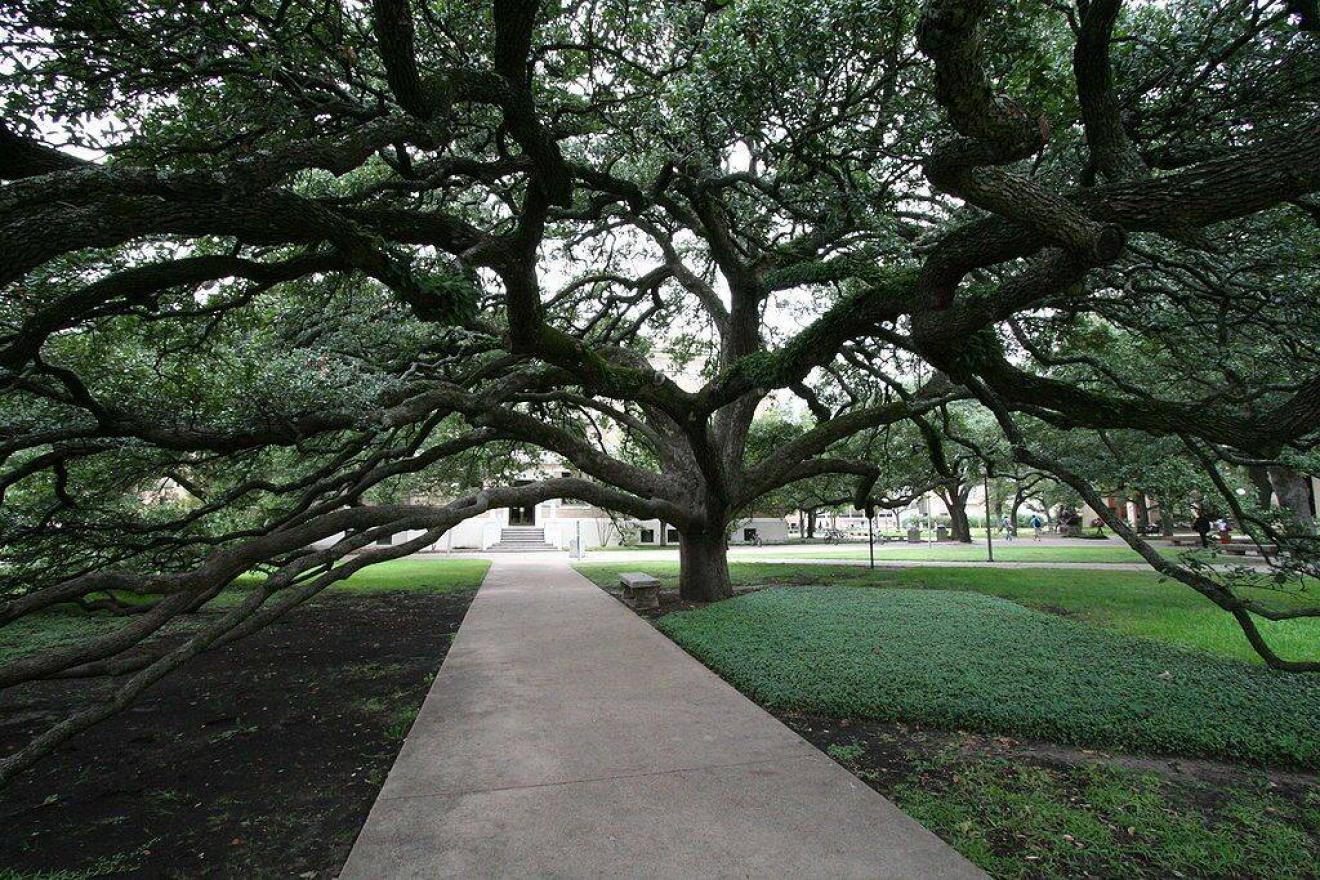
Texas A & M University-College Station offers 7 Travel and Tourism degree programs. It's a very large, public, four-year university in a midsize city. In 2022, 293 Travel and Tourism students graduated with students earning 151 Certificates, 122 Bachelor's degrees, 14 Master's degrees, and 6 Doctoral degrees.
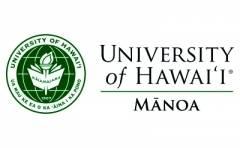
University of Hawaii at Manoa offers 2 Travel and Tourism degree programs. It's a large, public, four-year university in a large city. In 2022, 83 Travel and Tourism students graduated with students earning 78 Bachelor's degrees, and 5 Master's degrees.

Indiana University-Purdue University-Indianapolis offers 2 Travel and Tourism degree programs. It's a very large, public, four-year university in a large city. In 2022, 136 Travel and Tourism students graduated with students earning 113 Bachelor's degrees, and 23 Certificates.

University of Southern Maine offers 3 Travel and Tourism degree programs. It's a medium sized, public, four-year university in a small city. In 2022, 8 Travel and Tourism students graduated with students earning 7 Bachelor's degrees, and 1 Certificate.
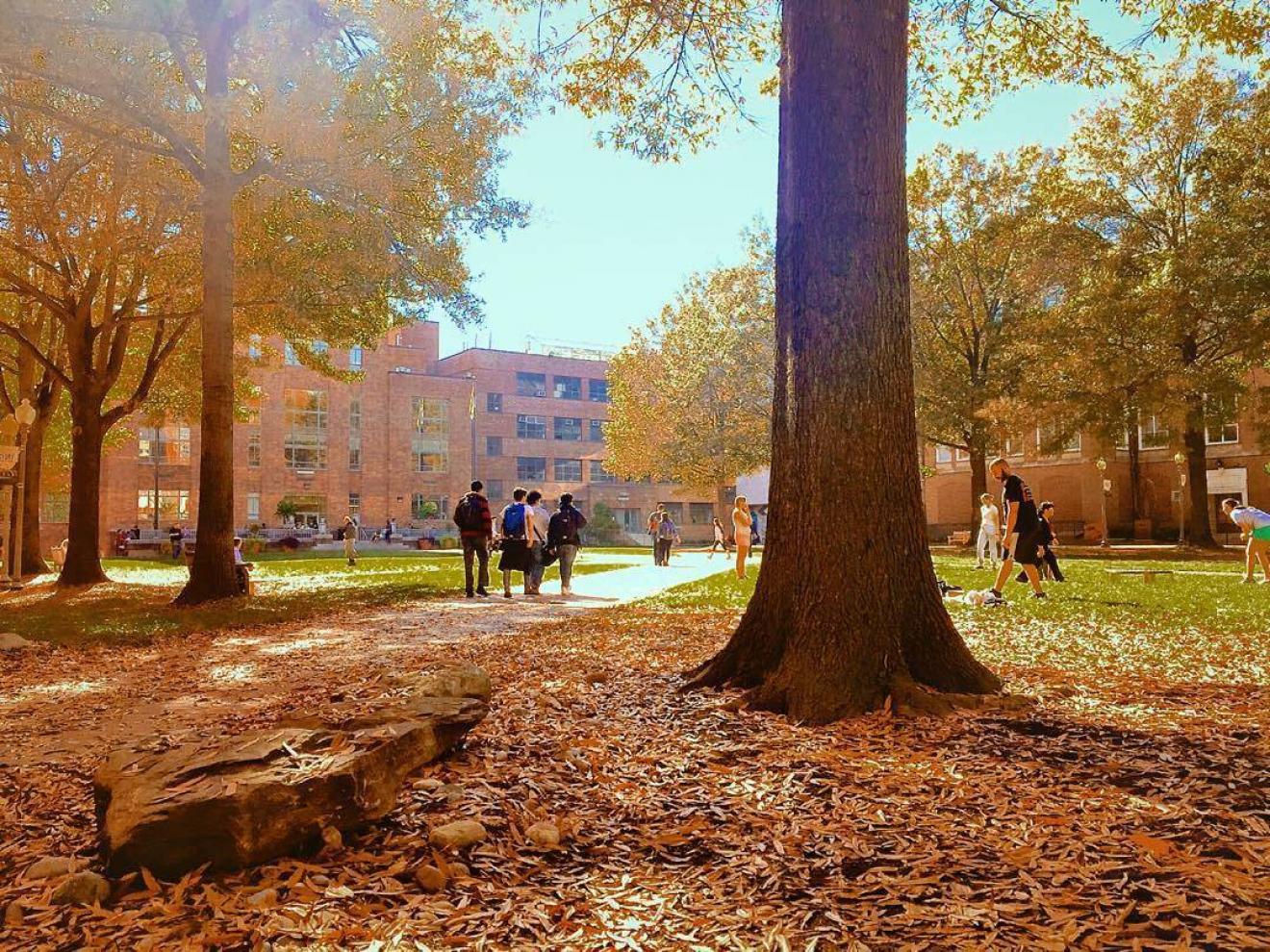
George Washington University offers 4 Travel and Tourism degree programs. It's a very large, private not-for-profit, four-year university in a large city. In 2022, 33 Travel and Tourism students graduated with students earning 30 Master's degrees, and 3 Certificates.
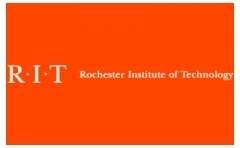
Rochester Institute of Technology offers 2 Travel and Tourism degree programs. It's a large, private not-for-profit, four-year university in a large suburb.
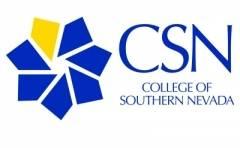
College of Southern Nevada offers 2 Travel and Tourism degree programs. It's a very large, public, four-year university in a large city. In 2022, 27 Travel and Tourism students graduated with students earning 26 Associate's degrees, and 1 Certificate.
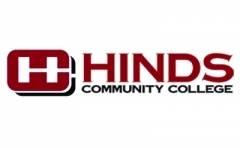
Hinds Community College offers 2 Travel and Tourism degree programs. It's a medium sized, public, two-year college in a outlying town. In 2022, 14 Travel and Tourism students graduated with students earning 10 Certificates, and 4 Associate's degrees.
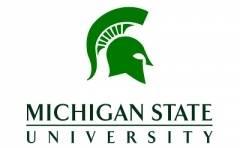
Michigan State University offers 2 Travel and Tourism degree programs. It's a very large, public, four-year university in a small city. In 2022, 3 Travel and Tourism students graduated with students earning 3 Doctoral degrees.
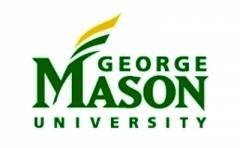
George Mason University offers 1 Travel and Tourism degree programs. It's a very large, public, four-year university in a large suburb. In 2022, 46 Travel and Tourism students graduated with students earning 46 Bachelor's degrees.
Top schools offering Travel and Tourism degrees in the U.S.
Travel and tourism.
- Tourism and Travel Services Management Schools
- Tourism and Travel Services Marketing Operations Schools
- Natural Resource Recreation and Tourism Schools
- Tourism Promotion Operations Schools
List of all Travel and Tourism colleges in the U.S.
- Masters Degrees
- Bachelors Degrees
- Associate Degrees
- Career Pathways Bridge Program
- Online Degree Programs: Bachelor’s, Master’s & Associate’s
- Global Offerings
- Faculty Spotlight
- Faculty Directory
- Open Faculty Positions
- Policies and Documents
- Professional Studies
- Continuing Education
- Executive Education for Industry Leaders
- High School Academy
- Areas of study
- Divisions & Departments
- Professional Pathways
- Degree Directory
- Graduate Admissions Criteria
- Graduate Application Requirements and Deadlines
- Graduate Financial Aid
- Summer Publishing Institute
- Undergraduate
- Undergraduate Admissions Criteria
- Undergraduate Application Requirements and Deadlines
- Undergraduate Financial Aid
- Transfer Students
- Adult Learning
- Your Community
- New Students
- DAUS: Military Veterans
- Global Perspective
- Graduate Events
- Undergraduate Events
- Frequently Asked Questions
- Student Success
- Academic Advising
- Student Life
- Resources and Services
- University Life
- Arts, Culture, and Entertainment
- Health and Wellness
- Studying in New York City
- Travel and Transportation
- Policies and Procedures
- NYU SPS Wasserman Center
- Career Success
- Industry Engagement
- Hire NYU Talent
- Faculty Engagement
- STUDENTS & ALUMNI: GET STARTED
- Events Central
- Office of Events
- Meet the Team
- SPS Conference Room and Event Spaces
- Event Request Form
- Event Guidelines
- Conferences
- Hospitality Conference
- Capital Markets in Real Estate
- Women in Real Estate
- REIT Symposium
- NYU Coaching and Technology Summit
- Future Workforce Global Summit
- NYU SPS Events
- Undergraduate Convocation
- Graduate Convocation
- Student Events
- Capstone Fair
- Alumni Advantage
- Alumni Stories
- Current Alumni
- Give to NYU SPS
- Parents Council
- SPS Reunion
- NYU SPS Home
- MS in Travel and Tourism Management

Master's in Travel and Tourism Management
100% online, on-site, and hybrid study options.
One of the largest industries in the world, travel and tourism management has rapidly expanded in recent years. Post-pandemic travel will create a whole new range of opportunities and will require nuanced skill sets to meet pent-up consumer demand and changing industry standards. Beginning in Fall 2021, the Jonathan M. Tisch Center of Hospitality will offer the NEW MS in Travel and Tourism Management , designed to provide students with a deep understanding of this fast-growing industry, while equipping them to adapt to emerging trends including sustainable tourism, cultural heritage tourism, and bleisure travel. This innovative degree will afford the benefits and resources of studying at NYU , while immersing you in New York City—the world’s premier destination for international travel.
Degree Advantage
- 36-credit program of study
- Prepares you for a range of travel and tourism jobs
- Core curriculum and electives focus on trends in travel and tourism, tourism planning, digital marketing, visitor management, travel technology, and destination branding
- Internships at leading hotels, resorts, media companies, and travel agencies
- Study abroad opportunities and industry site visits
- Full- or part-time study options
- 100% online, on-site, and hybrid degree options available
- New Hospitality Innovation Hub for students, start ups, and industry partners
- Tisch Center Scholarships
VIEW FULL CURRICULUM AND DEGREE REQUIREMENTS >
Explore graduate opportunities at nyu sps.
Join an upcoming online session to learn more about our graduate degree programs including the MS in Travel and Tourism Management. As an attendee of an Explore Graduate Opportunities at NYU SPS session, you will meet members of our team and have the opportunity to ask questions about the program and application process.
6:00 PM until 7:30 PM EDT
Graduate Instant Decision Day
Ready to complete and submit your application? During the event, you will have the opportunity to meet with Admissions Officers to discuss your complete application and receive a decision.
6:00 PM - 7:00 PM EDT
Participants must submit a complete application by May 16 to receive a decision during the event.
Who Should Earn the MS in Travel and Tourism Management?
Whether you just earned your undergraduate degree, are working in another field and are thinking about career change or are already working in the travel and tourism industry, earning this degree will challenge you to discover new ways of thinking about destinations and how technology can support them. It will equip you with the skills needed to attract and retain visitor markets and manage tourism effectively and sustainably.
ALUMNI SUCCESS STORY
Maria tuttocuore ‘02.
Maria Tuttocuore was already working in the travel industry when she decided to pursue a master's degree. She sensed that earning a degree in the field of travel and tourism would better position her for success by providing her with hands-on experience in the field and the opportunity to network. During her time at the Jonathan M. Tisch Center of Hospitality, she completed two internships—one at Leading Hotels of the World and the other at the New York State Division of Tourism . She credits these two experiences with opening the doors to a job at the Monaco Government Tourist Office , where she was promoted to a senior executive sales & marketing position. Her experience in luxury travel and extensive knowledge in destination marketing and leisure trade led her into launching her own travel destination marketing and management company UNICA Journeys LLC based in New York City. Today she represents and consults a varied portfolio of international luxury travel companies.
Learn From Travel and Tourism Faculty Experts
Faculty members are respected experts in areas such as cultural tourism, sustainable tourism, corporate travel management, among other specialities. From working at tourist bureaus, to developing destination marketing campaigns, to managing attractions, their expertise is invaluable in providing insights into the latest travel and tourism trends. Their support and deep dedication is what makes earning a degree from the Tisch Center transformational.
Expand Your Horizons Through Study Abroad
A major advantage of the MS in Travel and Tourism is the opportunity to participate in Global Field Intensives (GFIs). These travel experiences provide international business perspective and attune students to changes in the industry, including the rise of sustainable tourism, which focuses on developing stellar travel and tourism experiences, while monitoring impacts on the environment and local residents. Recent GFIs include trips to: Abu Dhabi, Dubai, Prague, and Berlin.
Connect Through Invaluable Networking Opportunities
The MS in Travel and Tourism Management provides unsurpassed networking opportunities through the annual NYU International Hospitality Industry Investment Conference ; the Grossinger-Bergman Distinguished Lecturer Series, fireside chats with the likes of Roger Dow , president and CEO of the US Travel Association; and industry site visits. These enlightening opportunities make earning a Tisch Center degree a game-changing education and professional experience.
Internships and Job Opportunities
Through the Tisch Center of Hospitality and the NYU Wasserman Center for Career Development at NYU SPS , MS in Travel and Tourism Management students have the opportunity to complete internships that provide the hands-on experience needed to accelerate their careers. Many of these internships evolve into permanent jobs. Our graduates go on to careers at tourism bureaus, destination marketing firms, online travel agencies, and attractions, as well as other travel and tourism organizations including the following:
• Arena Destination Marketing • Dubai Tourism Authority • Myriad Travel Marketing • NYC & Company
• Skylark • Tourico Holidays • Visit Britain
FREQUENTLY ASKED QUESTIONS
What is travel and tourism management.
Travel and tourism management involves the coordination, planning, marketing, and delivery of travel services. Examples of travel and tourism organizations and entities include destinations, attractions, airlines, cruise lines, museums, cultural institutions, and travel and tourism related booking services. The tourism sector includes both leisure travel and business travel.
How does this degree differ from other travel and tourism degrees?
The MS in Travel and Tourism Management differs from other travel and tourism degrees due to its focus on business, technology, and entrepreneurship. The degree’s curriculum is delivered by academic scholars and business professionals. You will be able to immediately apply what you learn in the field of travel and tourism in New York City, the world’s top travel and tourism destination.
What can you do with a travel and tourism degree?
Earning a travel and tourism degree will allow you to begin or advance your career in the global tourism industry. It will prepare you for travel and tourism jobs and leadership roles in the public, private, and voluntary sector, including those with destination management organizations, online travel agents, tour operators, attractions, and transportation companies.
What types of travel and tourism jobs are available?
There are a multitude of travel and tourism jobs and career opportunities available, because the sector is so large and varied. Examples of travel and tourism employers include national and regional tourist offices, travel intermediaries, airlines, cruise lines, theme parks, travel technology companies, and nature tourism providers.
What are the advantages of earning a master's of travel and tourism management in NYC?
The advantage of earning your master’s degree in travel and tourism management in New York City is that you will be studying in one of the world’s leading travel and tourism destinations. New York City is a transportation hub, and is home to world-famous tourist attractions including the Empire State Building, the Statue of Liberty, the 911 Memorial & Museum, the High Line, and Broadway, among so many others. The City becomes your professional base for establishing your career in a destination that attracts millions of tourists each year.
We use cookies to help our site work, to understand how it is used, and to tailor ads that are more relevant to you and your interests.
By accepting, you agree to cookies being stored on your device. You can view details and manage settings at any time on our cookies policy page.
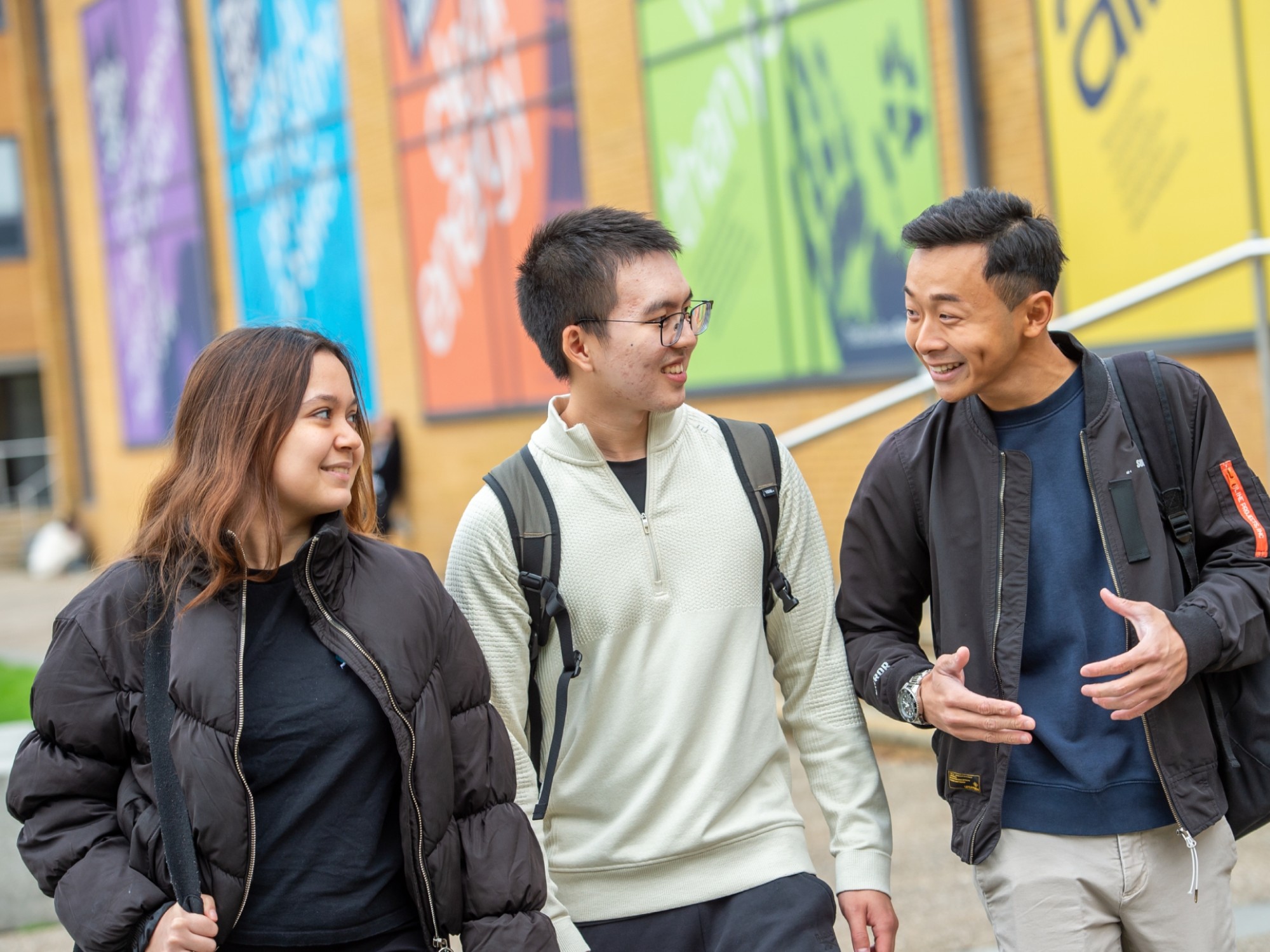
BSc (Hons) — 2025 entry International Tourism Management
Our International Tourism Management degree course will allow you to specialise in key areas of tourism and travel management, focusing on your interests and career aspirations.
Key course information
- BSc (Hons) with placement
BSc (Hons) with foundation year
Bsc (hons) with foundation year and placement, why choose this course.
- Our BSc (Hons) International Tourism Management course draws on a wealth of experience, helping you develop an understanding of tourism alongside a detailed study of core management and business principles.
- Surrey is the UK’s top university for tourism, transport, travel and heritage studies, with our School of Hospitality and Tourism Management having an outstanding global reputation.
- You’ll have the option to take one of our award-winning Professional Training placements that will prepare you for work in industry.
1st in the UK
For tourism, transport, travel and heritage studies in the Complete University Guide 2024
World-leading
1st in the UK and 2nd in the world for hospitality and tourism management in the Shanghai Global Ranking of Academic Subjects 2023
And 15th in the world for hospitality and leisure management in the QS World University Rankings by Subject 2024

Five reasons to study a course within the School of Hospitality and Tourism Management at Surrey
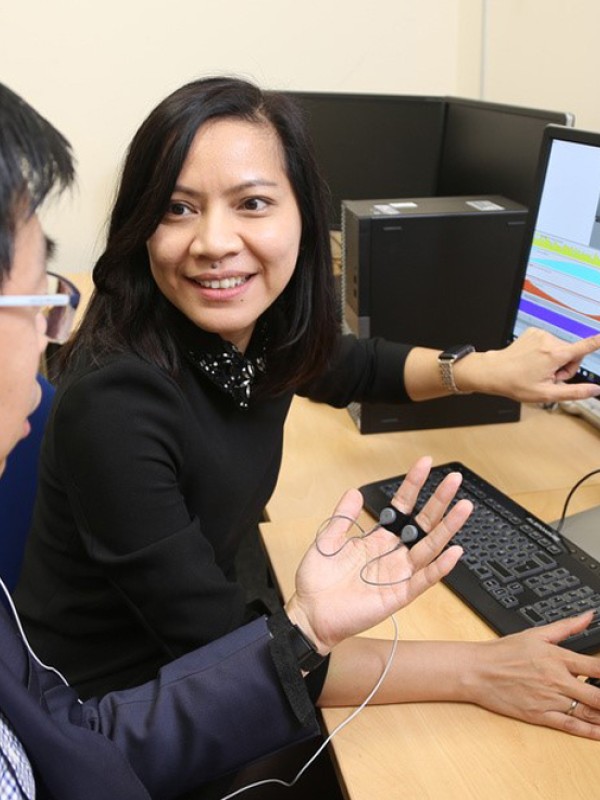
Introducing the School of Hospitality and Tourism Management
Course details open, what you will study.
Reflecting the variety of the tourism industry, you’ll choose optional modules to study alongside compulsory core topics, allowing you to specialise and develop your skills in the areas that are most relevant to your interests and aspirations.
You’ll be taught by experienced and knowledgeable staff, who are all respected in their research and industry fields.
Academic lectures are combined with field trips, site visits and guest lectures from industry professionals, providing you with the most up-to-date and relevant education possible.
Due to our exceptional industry connections, and the relevance of our courses to current challenges in the tourism sector, our graduates are equipped to become responsible managers and strategic leaders of the industry and are consequently highly attractive to employers.
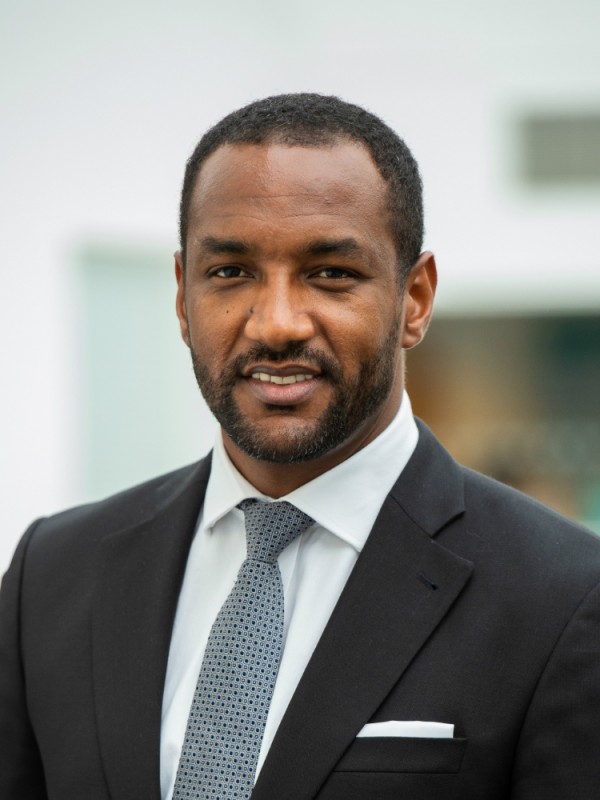
Dr Alector Ribeiro
Programme leader
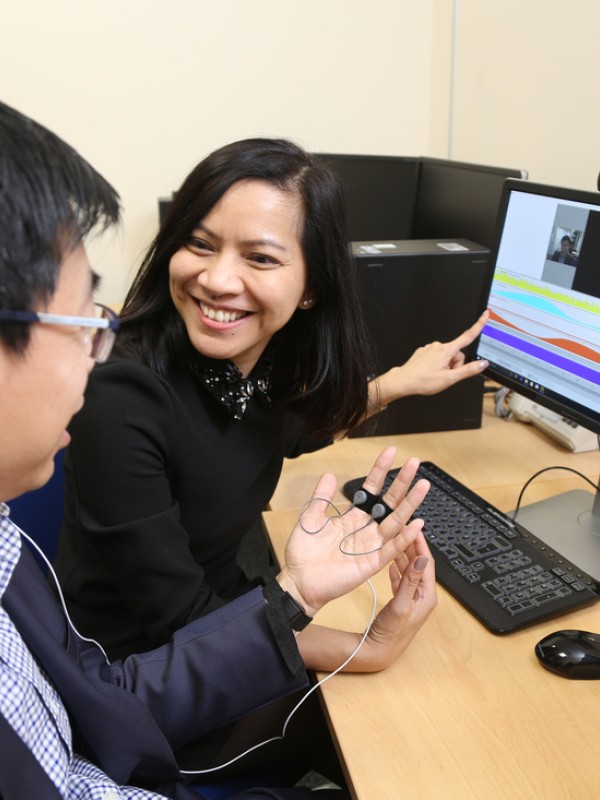
School of Hospitality and Tourism Management
This course is taught by academic staff from the School of Hospitality and Tourism Management.
Course structure Open
The academic year is divided into two semesters of 15 weeks each. Each semester consists of a period of teaching, revision/directed learning and assessment.
The structure of our programmes follow clear educational aims that are tailored to each programme. These are all outlined in the programme specifications which include further details such as the learning outcomes.
- International Tourism Management BSc (Hons)
- International Tourism Management BSc (Hons) with placement
- International Tourism Management BSc (Hons) with foundation year
- International Tourism Management BSc (Hons) with foundation year and placement
Please note: The full module listing for the optional Professional Training placement part of your course is available in the relevant programme specification.
Modules listed are indicative, reflecting the information available at the time of publication. Modules are subject to teaching availability, student demand and/or class size caps.
The University operates a credit framework for all taught programmes based on a 15-credit tariff.
Course options
Year 1 - bsc (hons), business environment.
Businesses do not exist in isolation. They must operate within a complex and sometimes turbulent environment. The key forces facing businesses are economic, political, technological, demographic, social-cultural, ethical as well as ecological environments. This module examines the influences of various external environments at local, national and international levels on business organisations.
TOURISM AND SOCIETY
This module develops students’ understanding of the roles tourism plays within and for societies, thereby widening students’ global and cultural capabilities. The module gives students an introductory overview of the history and origins of tourism, its contemporary nature, the inequalities that characterise it and the possibilities for social justice and social sustainability through maximising tourism’s positive societal outcomes. On the basis of theoretical concepts drawn from sociology, anthropology, leisure and tourism studies, the module provides students with a more critical awareness of the relationships between tourism and society, supported by international case study examples and opportunities for critical debate.
FUNDAMENTALS OF SERVICE DELIVERY
All managers in service industries need to be able to understand, analyse and improve the processes for which they are responsible. In order to be able to do this effectively they need to understand the nature and purpose of the service concept and the fundamental ways processes and people deliver this.
THE TRAVEL AND TOURISM INDUSTRY
The travel and tourism industry comprises several main sectors, e.g., accommodation, visitor attractions, travel distribution, and sub-sectors of transportation including aviation, cruise, land-based transport and transport infrastructure. This module focuses on the economic and operational characteristics of each sector and sub-sector, and the ways in which they interact in the production of travel and tourism products and services.
TOURISM MANAGEMENT
During the 20th century tourism has developed into one of the major activities and industries in the world and it looks set to continue its global importance in the new century. Against this background there is a need to consider the context to this development and to appreciate the current position and influences on the demand for tourism. With this background, students will be able to understand the nature of the industry and its management issues.
FINANCIAL ACCOUNTING IN SERVICE INDUSTRIES
This module is intended to provide an introduction to financial accounting. It is aimed at students who are not majoring in accounting or finance but who are studying an introductory level of accounting and finance as part of their programme in management and is particularly focused on students specialising in the Hospitality, Tourism and Events sectors.
SERVICES MARKETING
Services industries are a driving force of value creation. Nowadays nearly every product has a service component and as such service businesses are increasingly dominant forces in the global economy. Services are intangible, consumed at the time of their production, cannot be stored, and standardization is a challenge. This module is designed to provide students with an understanding of the challenges service organizations face due to service characteristics, consumer behaviour, and a dynamic and increasingly challenging global environment. This module introduces the core principles of services marketing and consumer behaviour considering service characteristics. In doing so students will be dealing with a variety of marketing topics allowing them to appreciate the complexity of the topic as well as relevant theories and models service providers can take advantage of in terms of managing the service experience for their customers. To emphasize the applicability of service and consumer behaviour theories to various fields this module is divided into two parts: First, general principles of services marketing and consumer behaviour are covered. Second, industry (i.e., tourism, events, or hospitality) specific theory and applications are introduced. In an increasingly customer centered environment this module will provide an understanding about theories, approaches and techniques concerning how to attract and retain customers while dealing with challenges due to services characteristics and changing consumer behaviour. The module also creates an opportunity to facilitate 'real life' decision-making and enhances a wide range of study skills, such as independent research, analytical skills as well as critical thinking. As such the goal is to contribute to resourcefulness and resilience and to develop digital capabilities linked to the topics covered. Consequently, students develop skills relevant for employability.
SUSTAINABLE TOURISM AND TRANSPORT
The module will follow the process of a sustainability management system to show students the process that organisations need to follow to identify and address the sustainability impacts that their organisation is responsible for. In doing so, we will review the impacts that the tourism and transport industries are causing directly or indirectly, and the opportunities for organisational change to acknowledge and address such impacts.
Year 2 - BSc (Hons)
Managing organisations and human resources.
The module introduces students to the principles of organisational behaviour and human resource management. It encourages them to identify the relevance of these principles for practice in different sectors. In particular, it will focus on the ways in which an understanding of human behaviour can help in the management of others and self. It will examine fundamental individual and group processes and the ways in which these inform the policies and practices of people management.
TOURISM POLICY AND DEVELOPMENT
The successful development of tourism depends on the relationship between the public and private sectors. A key element in this is the development of policies for tourism that can meet the needs of the stakeholders and establish planning goals and instruments. This module explores these policies, considers their formulation and their role in tourism development.
APPLIED FINANCIAL MANAGEMENT IN SERVICES
The prime motivator is to equip students with a good and meaningful understanding of hospitality/tourism/events finance and accounting. The objective is to develop accounting and finance skills needed by competent young professionals to achieve sustainable profits for various stakeholders. This module will covers management accounting that includes costing, budgeting and the fundamental principles of corporate finance and investment.
AIR TRANSPORT MANAGEMENT
This module delivers a very comprehensive overview of the Air Transport industry which is ever changing and evolving. It covers a large spectrum of different airline business models that include full service airlines, low cost carriers, long-haul low-cost carriers, hybrid carriers, charter airlines and regional carriers. Other entities that shape the global airline industry will also be covered such as air cargo, alliances, IT and ancillary revenues. The wider value chain of airports is also encapsulated into the module exploring the Aeronautical and Non-aeronautical commercial aspects of the business. The module gives an exciting and illuminating insight into the global air transport industry.
INTERCULTURAL MANAGEMENT IN HOSPITALITY & TOURISM
This module is designed to provide students with an understanding of the way hospitality and tourism operations necessitate the adoption of a cultural approach to management. Understanding different theories, approached and proven practices will allow students to analyse situations where the business environment have been compromised by deficient cultural approaches. Mastering the managerial skills required for efficient cultural diversity, with a broad understanding of how it applies to business objectives, is of paramount importance within this module. The outcomes ensure that students have a clear idea of the inherent considerations involved with managerial decision-making, and their cultural consequences.
UNDERSTANDING HOTEL REVENUE MANAGEMENT
This module is designed to develop an understanding of revenue management (RM) in the international hotel industry. This has become a major strategic tool in the successful operation of these businesses. The module provides an overview of the RM, looking all aspects of this activity from a variety of perspectives – strategic, marketing, operations and human resources.
DIGITAL MARKETING IN TOURISM, HOSPITALITY AND EVENTS
This module introduces students to the key issues, strategies and practices of marketing in the digital environment of tourism, hospitality and events. With the rapid rise in the use of the Internet and new media technologies, there are a number of digital tools and technologies available to marketing managers. This module provides students with an understanding of the importance and the application of digital marketing in general and social media in particular. It is vital for tourism, hospitality and event enterprises to acknowledge that consumers are now co-marketers, co-designers, and co-producers of travel experiences and that it is essential to take advantage of consumers as a source of knowledge for innovations and experience design in order to be able to compete in an increasingly competitive and transparent environment. The module therefore deals with how firms can utilize digital marketing and related channels and communication modes to enhance networking, collaboration, and travelers' engagement with services provided by tourism, hospitality or event organizations.
DIGITAL INNOVATION AND DATA ANALYTICS
Digital innovation and data analytics are regarded as key for the development of enterprises, destinations and the services sector including hospitality, tourism, transport and events. Being aware of available technologies and being able to use data to extract patterns and generate insights to support strategic decision making are important for enterprises to be able to create innovative solutions to business problems and compete in an increasingly competitive and transparent environment. As such, awareness about digital innovation and data analytics as well as the ability to judge the quality of interfaces are vital to succeed in the social and economic business environment within the services sector, including hospitality, tourism, transport, and events. This module provides students with an understanding of the importance of digital innovation and data analytics in the services sector. It involves a critical reflection on contemporary strategies, concepts and ideas that currently shape hospitality, tourism, transport and event practices. It also aims to equip students with the fundamental concepts and tools needed to understand the emerging role of business analytics in service organisations and shows students how to apply business analytics tools and to communicate with industry professionals to effectively use and interpret analytic models and results for making better business decisions. The module deals with the importance of consumers' perception of the design of technological interfaces for business success and covers how to critically examine user interfaces and how to make sense of user-based interface evaluation data.
CRISIS MANAGEMENT IN TOURISM AND TRANSPORT
This module provides an integrated and strategic approach to understanding tourism crisis and disaster planning and management in various geographical and socio-cultural contexts. It provides an integrated approach in two main ways. First, it synthesises literature from a wide range of theoretical perspectives including natural hazards, geography, transport accidents and disasters, crisis public relations, communication and knowledge management theory. It aims to integrate these often-disparate fields to build understanding and the future development of knowledge in the tourism and transport field to enable our students to understand this complex area, enhance their digital capabilities and resourcefulness and resilience, and apply their learning in future employment towards a more resilient and sustainable tourism and transport industry.
CRUISE INDUSTRY AND SEA TRANSPORT
The cruise industry is a dynamic and evolving form of tourism. The market for cruises is complex and cruise companies have been inventive in designing products to attract different market segments. This module will examine the growing demand for cruise holidays and explore the supply-side of the market, which is characterised by the innovative development of a myriad of cruise ship designs. This module will also investigate other forms of sea transport, such as ferries, hydrofoils and catamarans, to enable students to gain a deep knowledge and understanding of the passenger elements of the international maritime industry.
OPERATIONS ANALYSIS
An important part of the manager’s job is to be able to identify and respond to problems that occur in hospitality operations and to take corrective action to return the operation to an appropriate position. This module builds on the student’s understanding of key concepts and allows them to apply that understanding to a realistic and constantly changing scenario.
TOURISM FIELDTRIP
The module is centred on an international field trip with the objective to provide the opportunity for students to experience first hand the complex practices and processes involved in tourist destination marketing, management, planning and development.
Year 3 - BSc (Hons)
Strategic management.
The module is intended to provide an opportunity to review current trends and strategic issues in the international THE (Tourism, Hospitality, Events) industry and their impact on managing international organisations. It will consider the influence of current and future global issues on strategic management of businesses including geo-dynamics, technological advances, new customer dynamics, sustainability concerns and resilience of key stakeholders through socio cultural and economic challenges. The content of the module will therefore review several theoretical concepts and case studies from THE industries delivered by industry experts and lectures/tutors to develop students¿ strategic thinking and management skills.
BUSINESS RESEARCH METHODS
The Business Research Methods module aims to provide students with the necessary skills and knowledge to determine the information necessary to address the identified basic or applied research problem and, using these skills and knowledge, develop an actionable research proposal. Students will gain an understanding of relevant approaches, elements, and stages of undertaking a research enquiry to provide insights to solving a relevant business problem. Students will develop core competence required to carry out a research enquiry, including identifying and formulating research problems, setting appropriate research objectives, selecting and applying appropriate research approaches, secondary and primary data collection and instruments, sampling and analysis methods, as well as the importance of ethical conduct in business research. This module discusses different methods and techniques essential to the execution of effective, coherent, and rigorous research for informed business decisions and practices.
The module will provide students an insight of a wide range of leadership practices in the extant literature in the context of tourism, hospitality and events. The module will cover from the fundamental notions of leadership frameworks/concepts to contemporary views of leadership practices. It offers a range of theoretical approaches and practices and their application within tourism, hospitality and events context. This will allow students to understand how leadership styles can impact individual wellbeing as well as organisational performance.
DIGITAL EVENTS MANAGEMENT
Digital Events Management aims to increase student knowledge and understanding of Digital Event Operations, through the project management of an event.¿ The module will focus on key project management tools and digital resources, and a range of possible interventions will be discussed.¿
LAND TRANSPORT SYSTEMS
The Land Transport Systems module aims at helping students to develop an understanding of various transport systems on land, which are crucial about travel and tourism. This will offer essential background and analytical skills to understand and evaluate passenger transport demand and system requirements when developing and evaluating travel and tourism services. We aim at offering students in-depth knowledge about motorised and non-motorised transport modes and enable them to develop relevant conceptualisation and evaluation skills required to design such travel and tourism services. These skills will be culminated through the diverse class activities offered through this module and will evolve while students prepare for the module assessment during the Semester. This module builds on previous modules including a transport component e.g. MAN1107, MAN2148, MAN2155 and offers a more in-depth exploration of relevant models, challenges and frameworks. Based on knowledge acquired through this module and guest lecture input, students will be asked to outline a travel or tourism experience of their choice based on the so called “new mobility services” and then evaluate it using established frameworks, which they have familiarised with previously in their studies. Additional impacts will be taken into account, for example financial investment and environmental ones. The module covers a wide range of transport modes which will be discussed using case studies and examples from diverse disciplines and countries. By covering fundamental principles of transport planning and its application in the travel and tourism industry, will offer students key skills enabling them to develop expertise in designing unique travel and tourism experiences in the future.
ECONOMICS OF LEISURE AND TOURISM
This module attempts to critically apply the principles of economics in the business of leisure and tourism. The module provides students with opportunities to develop their understanding of key aspects of economics and quantitative economic analysis skills applicable to the leisure and tourism industry.
VISITOR ATTRACTION MANAGEMENT
Visitor attractions are a key element of the tourist experience and a major element of a tourist destination. This module explores types of visitor attractions, identifying key attributes of each type and the management of visitor attractions worldwide using extensive real-world case studies, application of technology and innovation in visitor attraction management for example, Virtual Reality (VR), Augmented Reality (AR) and Artificial Intelligent (AI). This module also investigates the functional management of visitor attractions, managing impacts of visitor attraction management on local environment, society and economy and taking into consideration ethical issues in visitor attraction management and risk management.
TOURISM STRATEGY AND INNOVATION
This module aims to develop students' ability to explore and evaluate concepts and applications of strategy and innovation in tourism management and operations. It aims to explore strategic innovation as a dimension of the overall strategic management of a firm/destination where innovation is embedded in comprehensive attempts to maintain competitiveness. It is designed to explore real world case studies of innovation as a strategic approach applied by organisations and policymakers at global, national and destination levels and at different managerial and strategic climates. The module will equip students with the critical skills to evaluate the successful/unsuccessful implementation of tourism strategy and innovation.
DISSERTATION
The Dissertation module involves students in an original research project. It provides students an opportunity for a directed individual study focusing on topics of interest related to their programme of study. Using one or a variety of methods, students will collect data and contribute to problem solving in relevant management contexts. Emphasis will be placed on the process of scientific research. Students will develop skills on how to plan, carry out, and communicate research work as well as knowledge of theoretical and practical specialisation within relevant subject areas.
BUSINESS PLAN
Students will have the opportunity to learn about the different approaches that aim to answer the question: how do I plan, assess, and implement a new business venture? Business plans are essential not just for the successful implementation of start-up ventures, but also for continued business growth, including strategic competitiveness. A good business plan underpins business success on all levels and becomes a major guideline to sound management practices. All students will find much value in the business principles inherent to the planning process, which will lead to an enhanced commercial understanding. This module’s content and outcomes build solidly upon undergraduate business-related courses from level 4 and 5, as well as any accumulated business experience. It doesn’t just reiterate much of the theory previously learnt, but also applies it in a create and innovate way to emphasise creative business development, profitability, growth, and sustainability. It holistically addresses preferred business outcomes and brings all its components together.
MENTORING AND PROFESSIONAL DEVELOPMENT
This module provides the final stage in the employability and professional development thread of the SHTM UG programmes. This module focuses on developing a mentoring relationship between students and industry professionals representing a range of career opportunities and positions within tourism and hospitality. The formal mentor relationship will give the students exposure to industry and a dedicated mentor. The mentor will assign the student an industry based project to complete with the objective to provide the opportunity for the students to experience first-hand how business operates. The mentor will guide the student through the process and aid with their skill development.
HOSPITALITY, TOURISM AND EVENTS CONSULTANCY
This a practical module that provides the opportunity for students to collaboratively undertake a real consultancy project on behalf of an external industry client. Students will use project management, interpersonal and analytical skills in order to deliver a consultancy project that meets the needs of a client and supports businesses and organisations towards a successful and sustainable future. This module will enable students to draw upon the knowledge that they have acquired throughout their programme, and will strengthen students’ creative, digital and innovation skills, builds students’ resilience and resourcefulness, cross-cultural competencies, and provides a pathway into employability through the skills developed and direct industry interaction.
STRATEGIC BRAND MANAGEMENT IN EVENT, HOSPITALITY AND TOURISM
Hospitality, tourism and events businesses and organizations operate in a complex marketing environment. Whilst the future of brands and branding are the subject of intense debate in an age of accelerating disruption and digital revolution, the branding of hospitality, tourism and events products, places and services remains a crucial 'promise of an experience'. This module requires the student to adopt a consultant’s mind-set and develop a strategy for an event, hospitality, or tourism brand. The module aims to develop students’ abilities to critically explore and evaluate the key principles and characteristics of brand management. It aims to discuss the essential components of brand management, including market analysis, brand auditing, and brand evaluation. Students are provided with the opportunity to apply brand management theories to practice as the development of a feasible and credible brand strategy represents a key component of this module.
INTERNATIONAL TRANSPORT PLANNING AND POLICY
The International Transport Planning & Policy module aims at helping students to develop an understanding of the transport planning and policy making processes in relation to tourism. Skills gained will include transport plan and policy evaluation, as well as the development of strategic interventions towards innovative and sustainable solutions. We hope to offer students in-depth knowledge about motorised and non-motorised transport modes and enable them to develop relevant conceptualisation and evaluation skills required to design such travel and tourism services. These skills will be culminated through the diverse class activities offered through this module and will evolve while students prepare for the module assessment during the Semester. Based on module contents and guest lecture input, students will be asked to issue a policy brief about a contemporary transport issue of international interest applying the knowledge acquired e.g. about incorporating cultural awareness in policy making. Additionally, students will be asked to work in groups and develop a presentation bidding for funding for their selected plan or policy. These assessment tasks will enhance the digital capabilities and employability skills of students. Building on knowledge, concepts, theories and frameworks which students became familiar within previous modules e.g. MAN3165, this module covers a wide range of transport policies and plans covering various transport modes globally. The critical thinking of students will evolve through engagement with topics about contemporary policy and planning priorities such as innovation, digital transport, resilience, sustainability, equity and justice among others. By covering fundamental principles of transport planning and policy by policy makers and practitioners, students will develop key capabilities to review, evaluate and develop future-proof transport plans and policies shaping the tourism industry.
DESTINATION MANAGEMENT
Destination management organizations (DMOs) and convention bureaux operate in a complex environment. They need to act as change agents and embrace social responsibility, sustainability, and stewardship. Destination management must be understood as building and sustaining partnerships between society, businesses, and governments, which makes destination management a highly complex area of study. This module aims to develop students¿ ability to critically explore and evaluate the key principles and characteristics of destination management. It aims to explore the essential components of destination management, including stakeholders and partnerships, governance structures, leadership, event strategies, sense of place, and performance evaluation. Students are provided with the opportunity to apply destination management theories to practice as the incorporation of real-world national and international cases represents a key component of this module.
Year 1 - BSc (Hons) with placement
Year 2 - bsc (hons) with placement, year 3 - bsc (hons) with placement, semester 1 & 2, professional training year module (full-year work).
This module supports students’ development of personal and professional attitudes and abilities appropriate to a Professional Training placement. It supports and facilitates self-reflection and transfer of learning from their Professional Training placement experiences to their final year of study and their future employment. The PTY module is concerned with Personal and Professional Development towards holistic academic and non-academic learning, and is a process that involves self-reflection, documented via the creation of a personal record, planning and monitoring progress towards the achievement of personal objectives. Development and learning may occur before and during the placement, and this is reflected in the assessment model as a progressive process. However, the graded assessment takes place primarily towards the end of the placement. Additionally, the module aims to enable students to evidence and evaluate their placement experiences and transfer that learning to other situations through written and presentation skills.
PROFESSIONAL TRAINING YEAR MODULE (WORK-STUDY 50/50)
This module supports students¿ development of personal and professional attitudes and abilities appropriate to a Professional Training placement. It supports and facilitates self-reflection and transfer of learning from their Professional Training placement experiences to their final year of study and their future employment. The PTY module is concerned with Personal and Professional Development towards holistic academic and non-academic learning, and is a process that involves self-reflection, documented via the creation of a personal record, planning and monitoring progress towards the achievement of personal objectives. Development and learning may occur before and during the placement, and this is reflected in the assessment model as a progressive process. However, the graded assessment takes place primarily towards the end of the placement. Additionally, the module aims to enable students to evidence and evaluate their placement experiences and transfer that learning to other situations through written skills.
CONTEMPORARY ISSUES IN BUSINESS, MANAGEMENT AND ECONOMICS
This is a core module where students can identify, explore, and analyse contemporary issues in the business, management, and economic environments of the 21st century. The overall focus of the module is on: to encourage students to identify and analyse key issues such as inflation and its impact on cost of living from international, national, industry and firm perspectives. To evaluate the impact of these contemporary issues and suggest critical solutions. Teaching inputs introduces students to key concepts and theories of business, management, and economics. Contemporary issues are then identified and discussed, encouraging student to utilise key concepts in analysing these issues. Student through seminars and guided activities are encouraged to carry out research using library resources and reputable internet sources. This develops their research skills by exposing them to a wide range of literature and encourages critical analysis of different perspectives on a topic or issue. This approach guides students through the learning cycle of knowledge, application, and analysis of issues, concepts, and theories. This builds the students confidence and learning skills essential for the degree programmes and professional careers. Throughout the semester students have additional opportunities to book individual/group sessions to clarify /address any learning issues.
INTRODUCTION TO DECISION MAKING
Introduction to Decision Making is designed to empower students with the knowledge and skills necessary to make informed and effective decisions in the world of business. Content is intended to complement rather than repeat any previous study of business or economics and assumes no previous formal study in these areas. The module places students at the centre of their learning, fostering critical thinking, problem-solving, and decision-making abilities that are crucial for success in a dynamic and complex business environment. Through a combination of theoretical concepts, case studies, and practical exercises, students will develop the competencies needed to analyse, evaluate, and communicate business decisions that align with organisational objectives and ethical considerations. Students will study basic behavioural and management principles and undertake evaluative exercises to assess the desirability of outcomes. Financial and data-driven decision making will be explored. Underlying ethical themes such as sustainability and equality and diversity will be examined alongside drivers such as profitability and innovation. Assessments are designed to build digital capabilities and enhance employability skills and resourcefulness.
GLOBAL BUSINESS CONTEXTS
Global Business Contexts is designed to empower students with the knowledge and skills necessary to excel in the global marketplace. The module places students at the centre of their learning, fostering an understanding of international business environments, strategies, and challenges. Students will explore the dynamics of international trade, cross-cultural communication, global market entry strategies, and the impact of globalisation and de-globalisation on businesses. By actively engaging with the material and applying it to real-world scenarios, students will be better prepared to navigate the complexities of international business. The characteristics of different economies will be explored and compared, along with the operations of multinational businesses. The strategic issues which face organisations in a global context will also be examined. The module will build awareness of political, cultural and socio-economic dynamics in and between market economies. There will be an opportunity to develop some of the ethical considerations which have been explored previously in the Introduction to Decision Making (MAN0002) module. The module will build on the knowledge and skills gained in Semester 1. Data analysis will be a significant factor in order to support students to develop their numerical skills in anticipation of their degree-level study.
RESEARCH PROJECT
This is a guided research module where students identify and explore in detail a topic of their choice within the fields of Business, Economics or Hospitality and Tourism Management, then write a 3000-word literature review on their chosen subject. The overall focus of the module is on: learning to research independently, making best use of the digital resources available through the university library drawing appropriate conclusions from analysis and investigation of text and data Teaching inputs guide students in their choice of topic and approach, and provide them with extended opportunities to develop resourceful approaches and relevant skills. Engaging with in-class activities and online tasks in research, reading and academic writing throughout the semester will prepare students well for discipline specific writing and research challenges at higher levels of degree study and in the workplace.
'CREATE' (CREATIVITY, RESOURCEFULNESS, ENTERPRISE AND TASK EVALUATION)
The purpose of this module is to build leadership, independent learning and transferable skills which have a practical value for progression, whether that be to undergraduate study or employment. As the module acronym suggests, students will focus on Creativity, Resourcefulness, Enterprise and Task Evaluation. This will be done through experiential, real-world learning tasks and assessments. The module contains a strong focus on Employability. Could you answer the question: “what will make you more employable than other graduates with the same degree as you?”. CREATE will address this very question and begin the process of you developing a strong personal brand. Through a range of carefully designed tasks, you will develop resilience, digital capabilities and explore a range of theoretical concepts that will be invaluable for your future studies and careers The module is designed so that, as you progress through the year, you will increasingly be able to build on and apply your learning from other modules on the programme, allowing you to further develop as a well-rounded and high-performing individual.
Teaching and learning
Each 15-credit module involves 150 hours of student work. This time will be spent in lectures, computer laboratories and tutorials, and includes private study on your own or in small study groups. You will also write essays and assignments, complete group work projects, consultancy work and podcasts, as well as business-type reports that draw on your understanding of a particular area.
Our staff members are innovative in providing engaging learning sessions that bring together theory and practice for your intellectual and professional development.
Many of our academics are well-connected within the hospitality and tourism industries. This brings a wealth of classroom-based experiences to your studies but also a lot of guided support towards future employability, career-coaching and CV support. Dedicated modules will develop your skills further, as well as employability masterclasses.
You will also complete business reports, podcasts, team presentations, consultancy work as well as essays and exams which are all set to draw on your understanding of the subject area.
- Independent study
- Project work
- Practical sessions
We assess modules individually and award credits for the successful completion of each one. Assessment takes place through a combination of examination and/or coursework, practical examinations and reports.
Check individual module information to see full details at a module level.
General course information
Contact hours.
Contact hours can vary across our modules. Full details of the contact hours for each module are available from the University of Surrey's module catalogue . See the modules section for more information.
New students will receive their personalised timetable in Welcome Week. In later semesters, two weeks before the start of semester.
Scheduled teaching can take place on any day of the week (Monday – Friday), with part-time classes normally scheduled on one or two days. Wednesday afternoons tend to be for sports and cultural activities.
View our code of practice for the scheduling of teaching and assessment (PDF) for more information.
Stag Hill is the University's main campus and where the majority of our courses are taught.
Career opportunities Open
We offer careers information, advice and guidance to all students whilst studying with us, which is extended to our alumni for three years after leaving the University.
There is great demand for our BSc (Hons) International Tourism Management graduates in all related service sector industries. Graduates of our courses have proven to be highly employable across a range of organisations, not just within tourism. In the survey, Graduate Outcomes 2023, HESA, results show that 94 per cent of our undergraduate School of Hospitality and Tourism Management students go on to employment or further study.
Some of our graduates choose to go into operational management roles, developing and managing companies and resorts around the world. Others specialise in marketing, human resources, IT and other head office positions in large tourism corporations. Many find excellent career opportunities in tourism consultancy businesses.
Recent tourism graduates have entered employment in roles such as:
- Graduate Management Trainee, Hilton Worldwide
- Product and Commercial Executive, Monarch Travel Group
- Voyage Management Trainee, Grosvenor House JW Marriott Hotel
- HR Coordinator, Sofitel London Heathrow
- Front Desk Management Trainee, Hilton Hotels
- Vita Futura Graduate Management Programme, Marriott International
- Graduate Trainee, Lexington Catering.
Hear from our students Open
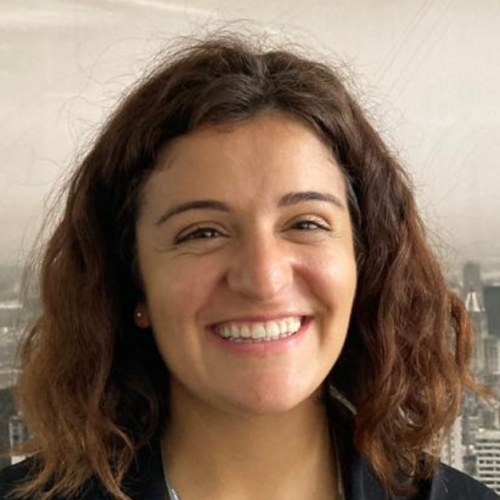
Alessia Trabucco
Student - International Tourism Management BSc (Hons)
"My time at Surrey has made me open to new opportunities, new cultures and new ways of living. I’ve grown so much and become a person I am truly proud of."
Entry requirements Open
Learn more about the qualifications we typically accept to study this course at Surrey.
Select your country
If you are studying for Australian qualifications, you will need a suitable equivalent grade to apply for our undergraduate courses. The table below shows grade equivalencies for Australia.
Subject requirements
For courses that have specific-subject requirements at A-level:
Minimum standard in English and mathematics
If you are applying for an undergraduate course at Surrey, you must meet our minimum standards for English and mathematics.
- English : Year 10 Certificate, English C.
- Mathematics : Year 10 Certificate, Mathematics C.
Some courses may require higher grades in English and mathematics and/or additional subjects, so please check the requirements provided on individual course pages.
If you are studying for Austrian qualifications, you will need a suitable equivalent grade to apply for our undergraduate courses. The table below shows grade equivalencies for Austria.
For courses that have specific subject requirements at A-level:
English : Matura (Reifeprüfung), English 2 (gut).
Mathematics :
We do not accept school leaving qualifications from Azerbaijan.
If you are studying for a Bangladeshi Higher Secondary Certificate qualification, you must obtain a GPA of 5 out of 5 or 80% to apply for our undergraduate courses.
English : IELTS Academic required.
Mathematics : Higher Secondary Certificate/Intermediate Certificate, Mathematics 60-69.
If you are studying for Belgian qualifications, you will need a suitable equivalent grade to apply for our undergraduate courses. The table below shows grade equivalencies for Belgium.
We do not accept school leaving qualifications from Botswana.
The Certificado de Conclusão de Ensino Médio/Certificado de Conclusão de Segundo Grau is considered for entry onto our Foundation Years at Surrey. On the course page on our website, please check to see if there is an option for a Foundation Year before making a UCAS application.
- Cambridge O-levels Accepted with the same requirements as UK GCSEs.
- Cambridge A-levels Accepted with the same requirements as UK A-levels.
If you are studying for Bulgarian qualifications, you will need a suitable equivalent grade to apply for our undergraduate courses. The table below shows grade equivalencies for Bulgaria.
If you are studying for Canadian qualifications, you will need a suitable equivalent grade to apply for our undergraduate courses. The table below shows grade equivalencies for Canada. Please contact the admissions team if you are studying in Quebec, or an institution delivering the Quebec curriculum.
When a specific subject is required, that subject should be taken in grade 12 of the High School Diploma.
Minimum standard in English and Mathematics
If you are applying for an undergraduate course at Surrey, you must meet our minimum standards for English and Mathematics.
English : Applicants who have completed Grade 12 Canadian High School/Secondary School qualifications should achieve grade B or 75% in a grade 12 English module. Applicants who were not required to take grade 12 English, or did not reach the required grade, will be required to take a recognised English language test.
Mathematics : Grade 11 Secondary School Diploma, Mathematics Pass.
Some courses may require higher grades in English and Mathematics and/or additional subjects, so please check the requirements provided on individual course pages.
We accept the Chinese National University Entrance Examination (Gaokao) for direct entry to Year 1 UG programmes. Please see the table below for our grade equivalencies:
Where there is a subject-specific requirement, students should achieve the same % in that subject (e.g. if Maths is a requirement of a BBB subject, the student should achieve 74% in Maths). Senior Secondary School Graduation Certificate and IELTS required.
For further information on these entry requirements, please explore our dedicated China site (中文网站).
If you are studying for Croatian qualifications, you will need a suitable equivalent grade to apply for our undergraduate courses. The table below shows grade equivalencies for Croatia.
If you are studying for Cypriot qualifications, you will need a suitable equivalent grade to apply for our undergraduate courses. The table below shows grade equivalencies for Cyprus.
Please note: If you are studying in Northern Cyprus and are looking for our Lise Diplomasi equivalents please visit our Turkey page.
If you are studying for Czech qualifications, you will need a suitable equivalent grade to apply for our undergraduate courses. The table below shows grade equivalencies for Czech Republic.
Mathematics:
If you are studying for Danish qualifications, you will need a suitable equivalent grade to apply for our undergraduate courses. The table below shows grade equivalencies for Denmark.
- English : Hojere Forberedelseseksamen (HF) / Hojere Handelseksamen (HHX) / Hojere Teknisk Eksamen (HTX) / Studentereksamen (STX) - 7. If you have taken the Folkeskolens 10 Klasseprove then we will require IELTs.
We do not accept school leaving qualifications from Egypt.
If you are studying for Estonian qualifications, you will need a suitable equivalent grade to apply for our undergraduate courses. The table below shows grade equivalencies for Estonia.
*If maths is required A-Level subject then the student must have studied "Extensive mathematics" (not Narrow Mathematics)*
- IELTS Academic required.
If you are studying for Finnish qualifications, you will need a suitable equivalent grade to apply for our undergraduate courses. The table below shows grade equivalencies for Finland.
Ylioppilastukintotodistus / Studentexamensbetyg - M / 5
If you are studying for French qualifications, you will need a suitable equivalent grade to apply for our undergraduate courses. The table below shows grade equivalencies for France.
Where Mathematics is a required A-level subject, we expect you to study Spécialité Maths (Advanced Maths) in Terminale; however, where Mathematics is required as a second Science subject, we will accept Maths Complémentaires (General Maths) in Terminale. For Engineering courses that ask for Physics as a required subject, we will accept Engineering Sciences.
- Baccalauréat, English, 12.
- OIB, English, 10.
Alternatively, where Mathematics is not studied as part of the Baccalauréat, we will accept Mathematics studies until the end of Seconde, where evidence can be provided of 10/20 in school assessments.
If you are studying for German qualifications, you will need a suitable equivalent grade to apply for our undergraduate courses. The table below shows grade equivalencies for Germany.
We do not accept the Ghanaian Senior Secondary School Certificate.
If you are studying for Greek qualifications, you will need a suitable equivalent grade to apply for our undergraduate courses. The table below shows grade equivalencies for Greece.
We welcome applicants with Pan-Hellenic qualifications, although these will not form part of any offer made.
If you are studying for a qualification in Hong Kong, you will need a suitable equivalent grade to apply for our undergraduate courses. The table below shows grade equivalencies for Hong Kong.
Associate degrees
If you have an associate degree, you can apply for first or second year entry.
For 1st year entrants:
- You must meet the subject requirements, either through the secondary or post-secondary studies
For 2nd year entrants:
- You must have covered the modules and content included in the first year of the Surrey degree course (as assessed by the appropriate admissions tutor). Your secondary qualifications (e.g. HKDSE) will also be taken into account during your application.
We do not include Liberal Studies in our offers.
If you do not meet the entry requirements, you can apply to study for an International Foundation Year at our International Study Centre , which will prepare you for a full undergraduate degree course.
When A-level Maths is a required subject, the extended part of HKDSE Maths is required.
English : Hong Kong Diploma of Secondary Education (HKDSE), English 4.
Mathematics : Hong Kong Diploma of Secondary Education (HKDSE), Mathematics 3.
If you are studying for a Hungarian qualification, you will need a suitable equivalent grade to apply for our undergraduate courses. The table below shows grade equivalencies for Hungary.
If you are studying for an Indian qualification, you will need a suitable equivalent grade to apply for our undergraduate courses. The table below shows grade equivalencies for India.
UK requirement (A-level) to Standard XII equivalent:
- Higher Secondary Certificate (HSC) / Standard XII , English 70% from CBSE or ISC exam boards
- Higher Secondary Certificate (HSC) / Standard XII, English 80% from the majority of Indian state boards (excluding Haryana, Andhra Pradesh/Telangana/U.P./Bihar/Gujrat/Punjab).
40% in either of the following All India Standard X qualifications:
- All India Secondary School Examination (Exam board = Central Board of Secondary Education)
- Indian Certificate of Secondary Education Examination (Exam board = Council for the Indian School Certificate Examinations, New Delhi)
Alternatively, 50% in Standard X from a state board.
We do not accept school leaving qualifications from Indonesia.
If you are studying for an Iranian qualification, you will need a suitable equivalent grade to apply for our undergraduate courses. The table below shows grade equivalencies for Iran.
Award of the High School Diploma (Theoretical Stream, post-2019) studied between 4-5 years, with an overall grade of 14*. The Technical and Vocational stream and Work and Knowledge stream will not be acceptable for direct entry.
*dependent on subject requirements
We do not accept school leaving qualifications from Iraq.
If you are studying for an Irish qualification, you will need a suitable equivalent grade to apply for our undergraduate courses. The table below shows grade equivalencies for Ireland.
We will look at the QQI Level 5 Certificate on a case by case basis depending on module relevance to chosen degree programme. Please contact Admissions for more information.
English and mathematics :
If you are studying for an Italian qualification, you will need a suitable equivalent grade to apply for our undergraduate courses. The table below shows grade equivalencies for Italy.
We do not accept the Upper Secondary School Certificate.
We do not accept school leaving qualifications from Jordan.
We do not accept school leaving qualifications from Kazakhstan.
Accepted qualifications
- Kenyan Certificate of Secondary Education (KCSE) Accepted with the same requirements as UK GCSEs.
- Cambridge Overseas Higher School Certificate (COHSC)
- East African Advanced Certificate of Education (EAACE)
- Kenya Advanced Certificate of Education (KACE) Accepted with the same requirements as UK A-levels.
We do not accept school leaving qualifications from Kuwait.
If you are studying for a Latvian qualification, you will need a suitable equivalent grade to apply for our undergraduate courses. The table below shows grade equivalencies for Latvia.
We do not accept the General Secondary Education Certificate.
If you are studying for a Lithuanian qualification, you will need a suitable equivalent grade to apply for our undergraduate courses. The table below shows grade equivalencies for Lithuania.
If you are studying for qualifications from Luxembourg, you will need a suitable equivalent grade to apply for our undergraduate courses. The table below shows grade equivalencies for Luxembourg.
Mathematics : *Certificat de Fin d'études Moyennes*, Maths 40-47.
If you are studying for a Malaysian qualification, you will need a suitable equivalent grade to apply for our undergraduate courses.
Suitably qualified applicants can be considered for Year 2 entry. Please refer enquiries to [email protected] .
The table below shows grade equivalencies for Malaysia.
- Economic growth Boosting skills and increasing prosperity
- Transforming health Improving healthcare and developing talent
- Undergraduate open days
Order a prospectus
- Subject areas
- Why study at Manchester Met?
- Chat to our current students
How to apply
- Schools and colleges
- Parents and guardians
- Mature students
- Online learning
- Admissions policies and procedures
- Virtual tour
- Postgraduate open days
- Join us in January 2024
- Find a postgraduate course
- Professional development
- Research study
- Information for employers
- Funding and the levy
- Employer case studies
- Apprenticeship information for students
- Student case studies
- Apprenticeship Research Unit
- How to apply for accommodation
- Living in halls
- Your contract
- Rent a private property
- Course enquiries Ask us a question
- Find your country
- Before you apply
- When you have an offer
- Apply for your visa
- Exchange to Manchester Metropolitan
Study abroad
- Becoming a partner
- Innovation Work with world-leading academics
- Leadership and growth Get training and support from specialists
- Talent, recruitment and development Connect with our students. Develop your people
- Conferences and events Hire our spaces, technology and facilities
- Championing creative excellence
- Driving economic growth
- Leading sustainability
- Tackling inequalities
- Transforming health
- Case studies
- Research Excellence Framework
- Engaging the public with our research
- Equality, Diversity and Inclusion
- Our commitment to researchers
- Why study a doctoral degree
- Choose Manchester Met
- PhDs and Doctoral Degrees
- Research degree subjects
- Postgraduate research fees
- Scholarships
- Doctoral College
- News and events
- Academic partnerships
- Ethics and Governance
- Responsible metrics
- Internationalisation
- Board of Governors
- Vice-Chancellor
- University Executive Group
- Faculty of Arts and Humanities
- Faculty of Business and Law
- Faculty of Health and Education
- Faculty of Science and Engineering
- Institute for Children's Futures
- Institute of Sport
- Professional Services
- Honorary graduates
- Environment
- Equity, Diversity and Inclusion
- Close Search mmu.ac.uk Search
- Economic growth
- Undergraduate
- Postgraduate
- Apprenticeships
- Become a degree apprentice
- Accommodation
- Course enquiries
- International
- Study at Manchester Met
- International partnerships
- Business and employers
- Leadership and growth
- Talent, recruitment and development
- Conferences and events
- Our research
- Research Integrity
- Our strategy
- Current students
- BA (Hons) International Tourism Management
International Tourism Management
Kick-start a career in international tourism with a degree which will give you the management skills and knowledge to work anywhere in the world.
Course overview
With input from leading organisations like The Institute of Travel and Tourism, Marriott, Visit Manchester and Expedia we’ve developed a range of modules directly relevant to a career in the tourism industry. You’ll explore key questions like what makes an attractive destination? How can marketing be applied in different markets? Which management strategies get the best out of employees? And you’ll put your ideas into practice, working on real world briefs for real organisations.
Develop skills for life Tourism is big business. To succeed in this competitive market, organisations need managers not only with strong business acumen and creative flair, but also an awareness of ethics and responsibility. Here at Manchester Met, we’ll help you develop these skills....
What you need to know
- When does the course start? September 2024 September 2025
3 years full-time 4 years with placement 4 years with overseas study 4 years with foundation
- How many UCAS points do I need? 104-112
- Where will I study this course? Manchester
Features and benefits
Course information.
With input from leading organisations, we designed the core units on this course to give you a thorough introduction to managing a tourism business. You can also choose to learn a new language such as Spanish, Modern Arabic or Japanese.
As well as taught classes, you’ll learn by working on projects and doing your own research. Your final year research project is a chance to explore an area in more detail based on your studies or work experience.
You can choose to spend a year studying abroad or working on placement. We have links with universities around the world, and organisations like Disney, Expedia and Premier Inn. You can find out more about your options and decide after you’ve started the course.
Foundation Year
This course has a foundation year available. For more information visit the Foundation Year page .
Accreditations, Awards and Endorsements
Accreditation.
Association to Advance Collegiate Schools of Business Our business school is accredited by The Association to Advance Collegiate Schools of Business. This means we are internationally recognised for meeting global standards of excellence in business and management education.
endorsement
Business School Impact System (BSIS) The BSIS scheme is designed to determine the extent and nature of a business school’s impact upon its local environment. BSIS has given us the tools to capture the enormous added value and impact that our business school brings to businesses and communities.
EFMD Quality Improvement System Our business school holds the EQUIS accreditation – a leading international system of quality assessment, improvement and accreditation of higher education institutions in management and business administration. By attending an EQUIS accredited institution, students can be confident they are part of a high quality institution.
Institute of Travel and Tourism Our business school is recognised as a Centre of Excellence by the Institute of Travel and Tourism (ITT). This gives our students access to industry professionals, networking and mentorship opportunities throughout their course.
Teaching Excellence Framework 2023-2027 We have received an overall gold status in the Teaching Excellence Framework (TEF), meaning we're rated as an outstanding university for our student experience.
Please note that the following list of units is indicative and may be subject to change.
* you will have the choice to study Tourist Behaviour II OR Uniwide Language
Tourist Behaviour I
The behaviour of tourists is a fundamental aspect in understanding the nature of tourism as a whole. Attention is given to the evolution of different types of tourists as well as different types of behaviour.
Tourism Academic and Digital Skills
Academic and digital skills are developed to foster students’ engagement with their own personal and professional development. This unit will support students as they make the step up to degree-level study.
Tourism Operations Management
The management of tourism operations for competitive advantage within the global tourism industry requires knowledge and application of key operational management theories and models.
Destination Manchester
Destination Manchester: England's second largest city tourist destination and the living-laboratory for your studies. Explore what makes a successful international tourist destination and help to solve a real-world problem for a tourism company.
Financial Management for Managers
Understanding financial management is a vital skill for all managers of profitable companies. Learn how to analyse financial statements, plan budgets and use financial data to inform decision making.
Marketing for Tourism
Students will develop marketing skills for tourism, learning how to recognise the importance of marketing as a role and function; as well as apply the marketing mix to illustrate different tourist markets and needs.
Option units
Tourist behaviour ii.
An understanding of the development of current and future trends is an important aspect of tourist behaviour and will be explored with the help of a variety of reports.
Uniwide Language
You can add a foreign language to your portfolio of skills. Enhance your employability by learning French, Japanese, Mandarin Chinese, Modern Standard Arabic or Spanish alongside your main degree. Whatever your language knowledge, from beginners to advanced, these classes will take you to the next level of proficiency. Visit UNIWIDE for more information.
Study and assessment breakdown
Study
- Year 1 scheduled 25%; independent 75%
- Year 2 scheduled 25%; independent 75%
- Year 3 scheduled 20%; independent 80%
- Year 1 coursework 90%; examination 10%
- Year 2 coursework 85%; examination 15%
- Year 3 coursework 100%
Placement options
Our BA (Hons) International Tourism Management degree offers the chance to spend a year getting a taste of professional life. Opportunities are available worldwide with a wide range of companies, from boutique hotels to five-star deluxe properties, gastro pubs to Michelin star restaurants, and cruise liners to theme parks.
A year out not only gives you the opportunity to develop your core skills and learn about how a business really operates in your industry, but also shows employers that you’re ready to get to work.
To find out more about what a placement can do for you, visit our placements page.
Instead of a placement, you’ll have the opportunity to spend up to a year overseas, studying with one of our partner institutions across Europe, or beyond. Go abroad in the third year of your degree, and you’ll not only learn about other cultures, improve your language skills and discover more about yourself – you’ll also boost your career prospects.
Having first-hand knowledge of another country’s cultures and traditions can take you far in a range of careers. And, by going abroad you’ll also demonstrate the kind of independent spirit and adaptability that many employers want.
Working abroad
Gaining work experience with an international flavour offers a double benefit. While you’ll learn valuable professional skills in a real-world workplace, you’ll also experience different cultures, ways of working and new perspectives. Whether it’s a summer exchange, holiday internship or year-long international placement, global experience can make a world of difference to your career prospects.
A city of opportunities
Greater Manchester boasts one of the country’s leading creative clusters outside of London, with a diverse community of over 8,500 creative organisations.
Manchester is also England’s second most visited city by international tourists, drawn to the area by the vibrant calendar of attractions and events occurring all-year-round. These include over 75 museums and galleries, high-profile music, art and cultural festivals, and sporting tournaments hosted in the largest concentration of sporting venues in Europe.
With all this activity on our doorstep, it puts us in the perfect place to offer an education rooted in the real world – with relevant skills, useful experience and valuable connections to support your ambitions in events, tourism or hospitality management. It puts you in a city with a wide range of employers who are looking for ambitious graduates.
During this year you will study six 15 credit units. Please note that the following list of units is indicative and may be subject to change.
Researching Tourism
Understanding how to appraise and apply research methods is a critical skill for undergraduates and this knowledge will be developed through this unit.
Industry Active
This unit will identify the variety of job roles within the tourism sector. It will enable students to develop their knowledge and understanding of the essential skills required to complete the application process for employment.
International Tourist Experience Design
Tourist experiences are designed and managed by tourism businesses, yet experiences become meaningful when personalised by tourists. Students will explore how new business approaches centring on the tourist have been devised.
People Management and Development
Students will develop knowledge and understanding of the theories, strategies, policies and practices that underpin the management and development of human resources in organisations particularly in the tourism industry.
Tourism Destination Fieldwork
Students will conduct fieldwork at a destination to assess local challenges.
The Business of Tour Operators
Students will examine the role of tour operators in the tourism supply and distribution chain. A focus will be on their partnerships with key stakeholders so ensuring a sustainable and ethical approach to business.
During this year you will study four 15 credit units and a 30 credit unit. Please note that the following list of units is indicative and may be subject to change.
Global Tourism Development
A global view of tourism as a tool to achieve the broader sustainable development goals in varying economies is provided. Different tourism development paths and their challenges, limitations and benefits will be critiqued.
The Tourism Graduate
With graduation on the horizon, you’ll focus on harnessing your personal and professional skills, as well as behaviours. You’ll have opportunity to engage in a range of activities, which might include mentoring with an employer in a tourism management role or a cutting-edge mock assessment centre experience, helping you become a sought-after and career-ready graduate.
Tourism Crisis and Risk Management
Within the global tourism industry, crisis and risk management is an increasingly important area for consideration. Students will be exposed to the interrelationships and stakeholder roles during a critical incident.
Strategic Tourism Management
Students will explore the nature of strategy and strategic thinking, as well as the complexity of managing the strategic challenges found within the contemporary international tourism business environment.
Research Project (30 credits)
Students undertake a substantial project based on work experience or academic research.
Whether you’ve already made your decision about what you want to study, or you’re just considering your options, there are lots of ways you can meet us and find out more about student life at Manchester Met.
- a virtual experience campus tour
- chats with current students
Taught by Experts
Your studies are supported by a department of committed and enthusiastic teachers and researchers, experts in their chosen field.
We often link up with external professionals too, helping to enhance your learning and build valuable connections to the working world.
Entry Requirements
Ucas tariff points.
GCE A levels - grades BCC or equivalent
Pearson BTEC National Extended Diploma - grade DMM
Access to HE Diploma - Pass overall with a minimum 106 UCAS Tariff points
UAL Level 3 Extended Diploma - grade of Merit overall
OCR Cambridge Technical Extended Diploma - grade DMM
T level - We welcome applications from students undertaking T level qualifications. Eligible applicants will be asked to achieve a minimum overall grade of Merit as a condition of offer
IB Diploma - Pass overall with a minimum overall score of 26 or minimum 104 UCAS Tariff points from three Higher Level subjects
Other Level 3 qualifications equivalent to GCE A level are also considered.
A maximum of three A level-equivalent qualifications will be accepted towards meeting the UCAS tariff requirement.
AS levels, or qualifications equivalent to AS level, are not accepted.
The Extended Project qualification (EPQ) may be accepted towards entry, in conjunction with two A-level equivalent qualifications.
Please contact the University directly if you are unsure whether you meet the minimum entry requirements for the course.
Specific GCSE Requirements
GCSE grade C/4 in English Language or Level 2 Functional Skills English pass
GCSE grade C/4 in Mathematics or Level 2 Functional Skills Mathematics pass
International Baccalaureate points
Ielts score required for international students.
There’s further information for international students on our international website if you’re applying with non-UK qualifications.
Fees and Funding
Foundation year students.
UK and Channel Islands full-time foundation year fee: £9,250 per year for the foundation year. This tuition fee is agreed subject to UK government policy and parliamentary regulation and may increase each academic year in line with inflation or UK government policy for both new and continuing students.
EU and Non-EU international full-time foundation year fee: £18,500 per year. When progressing from the pre-degree foundation year to the linked degree. Tuition fees will remain the same for each year of your course providing you complete it in the normal timeframe (no repeat years or breaks in study)

UK and Channel Island Students
Full-time fee: £9,250 per year. This tuition fee is agreed subject to UK government policy and parliamentary regulation and may increase each academic year in line with inflation or UK government policy for both new and continuing students.
EU and Non-EU International Students
Full-time fee: £18,500 per year. Tuition fees will remain the same for each year of your course providing you complete it in the normal timeframe (no repeat years or breaks in study).
Additional Information
A degree typically comprises 360 credits, a DipHE 240 credits, a CertHE 120 credits, and an integrated masters 480 credits. The tuition fee for the placement year for those courses that offer this option is £1,850, subject to inflationary increases based on government policy and providing you progress through the course in the normal timeframe (no repeat years or breaks in study). The tuition fee for the study year abroad for those courses that offer this option is £1,385, subject to inflationary increases based on government policy and providing you progress through the course in the normal timeframe (no repeat years or breaks in study).
Additional Costs
Specialist costs.
All of the books required for the course are available from the library. The University also has PC labs and a laptop loan service. However, many students choose to buy some of the core textbooks for the course and/or a laptop.
Students may also need to print their assignments and other documents. Campus printing costs start from 5p per page. Estimated costs are £300 for a laptop, and up to £100 each year for books and printing.
other Costs
Optional residential field trips up to £800.
Find out more about financing your studies and whether you may qualify for one of our bursaries and scholarships
First Generation
Dedicated funding and support for first generation students
Career Prospects
The skills you learn here apply in a wide range of roles, from marketing to human resources. And, if you decide to take a placement or study abroad year, your experience might inspire your next steps. Our graduates work in small boutique operators, large international corporations and some have started their own businesses.
Whether you want to continue your studies with a postgraduate degree, or explore emerging areas like ecotourism, we’re here to support you achieve your dream.
of BA (Hons) Tourism Management* students said the course has provided them with opportunities to bring information and ideas together from different topics.
Want to know more, got a question.
You can apply for the full-time option of this course through UCAS.
Institution code: M40
Get advice and support on making a successful application.
You can review our current Terms and Conditions before you make your application. If you are successful with your application, we will send you up to date information alongside your offer letter.
Manchester is your city, be part of it
Your new home, your new city, why university, related courses, events management, international hospitality business management, international tourism management (foundation year).
Programme Review Our programmes undergo an annual review and major review (normally at 6 year intervals) to ensure an up-to-date curriculum supported by the latest online learning technology. For further information on when we may make changes to our programmes, please see the changes section of our Terms and Conditions .
Important Notice This online prospectus provides an overview of our programmes of study and the University. We regularly update our online prospectus so that our published course information is accurate. Please check back to the online prospectus before making an application to us to access the most up to date information for your chosen course of study.
Confirmation of Regulator The Manchester Metropolitan University is regulated by the Office for Students (OfS). The OfS is the independent regulator of higher education in England. More information on the role of the OfS and its regulatory framework can be found at officeforstudents.org.uk .
All higher education providers registered with the OfS must have a student protection plan in place. The student protection plan sets out what students can expect to happen should a course, campus, or institution close. Access our current Student Protection Plan .
- International edition
- Australia edition
- Europe edition
Best UK universities for hospitality, events and tourism – league table
- About studying this subject
- Overall league table
- How to use the tables
Illustration: Janne Iivonen
Find a course
All fields optional
UK universities ranked by subject area: Hospitality, event management & tourism
BA (Hons) Tourism Management
Studying this internationally-focused and multi-accredited course you will come across leading industry speakers, consultancy projects, ‘live’ scenarios, and field trips to tourism hotspots.
Course search
Search form.
- UCAS Code: N800
- Institution: B50
- Delivery: Full-time with sandwich placement
With foundation year: N801
Why study BA (Hons) Tourism Management at BU?
- Bournemouth University is second in the UK for hospitality and tourism management according to the Shanghai Rankings of Academic Subjects 2023
- One of the first courses to be offered in the UK and has been refined over three decades to give you the skills and knowledge of the tourism sector
- With an international focus, you'll study tourism management in a wide range of global contexts, as well as drawing on case studies and examples from around the globe
- Taught by industry specialists who are actively involved in research that informs the future of the industry, as well as notable experts during our regular guest lectures
- Pick specialist modules to bring your education in line with your own passions, interests and, ultimately, career aspirations
- Build your network of professional contacts, enhance your CV and employability during the 30-week work placement that can be taken anywhere in the world
- You can study abroad at one of our many partner institutions across the world.
Find out more about the content of this course .
Foundation Year : We have a Foundation Year option for students who do not meet the entry requirements for the degree course. This additional year of study will give you a grounding in the business and management skills required for this course, building your confidence, knowledge and skills for further study. After successful completion of the Foundation Year, you will progress to the full degree. If you apply to study the full degree and do not meet the academic entry requirements, our admissions team may consider your application for the Foundation Year and notify you accordingly.
Course accreditations
The accrediting bodies on our BA (Hons) Tourism Management course are renowned industry-wide for promoting excellence and the highest standards, all of which is reflected in the BU Business School experience:
- We are an Institute of Travel & Tourism (ITT) Centre of Excellence, signifying BU as an industry-leading university
- Accreditation by the Tourism Management Institute (TMI) ensures this course meets standards aligned to the needs of the tourism sector, enhancing future employment prospects when you graduate
- Recognised as a United Nations World Tourism Organisation (UNWTO.TedQual) course provides opportunities for you to participate in tourism policy events of the highest level, as well as obtaining placements in the most prestigious tourism organisations globally
- Successful completion of the final year Digital Marketing unit gives you the opportunity to apply for the IDM Certificate in Digital and Data-Driven Marketing, from the Institute of Data & Marketing (IDM)
- Accreditation by the leading hospitality professional body, the Institute of Hospitality (IoH), offers numerous benefits to you such as free membership and access to the mentoring scheme.
- Our Association to Advance Collegiate Schools of Business (AACSB) accreditation is a hallmark of excellence that has been awarded to fewer than 6% of business schools worldwide
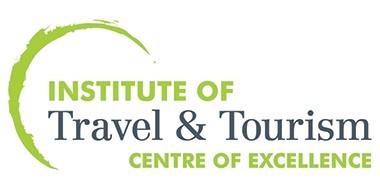
Discover more about the BU Business School and explore our campus
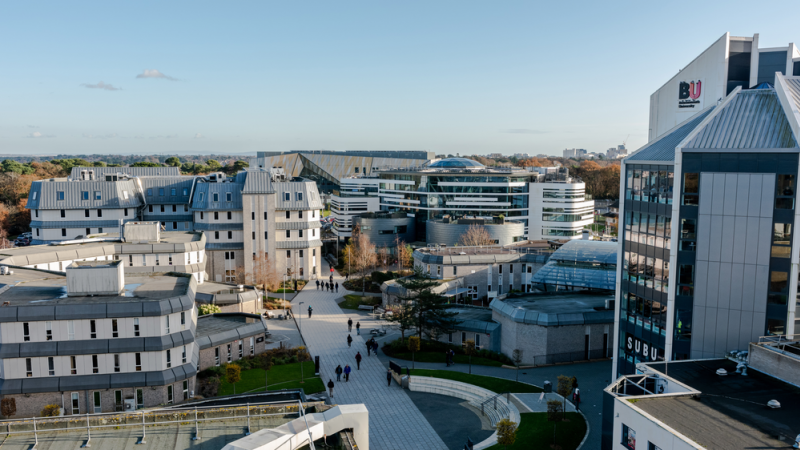
Key information
Next start date:.
September 2024, September 2025
Bournemouth University, Talbot Campus
3 years full-time including a 6-week work placement or 4 years full-time including a minimum 30-week work placement. Foundation Year: 4 years full-time including a 6-week work placement or 5 years full-time including a minimum 30-week work placement.
Accreditations:
Institute of Travel and Tourism (ITT) Centre of Excellence, Tourism Management Institute (TMI), United Nations World Tourism Organisation (UNWTO.TedQual), Institute of Hospitality (IoH), Institute of Data & Marketing (IDM), AACSB
Required subjects:
All subjects considered
Entry requirements:
For September 2024 and September 2025 entry: 104 - 120 UCAS tariff points including a minimum of 2 A-levels or equivalent. BTEC Extended Diploma: DMM. Foundation Year : 48-72 UCAS tariff points. For more information check out our full entry requirements .
International entry requirements:
For September 2024 and September 2025 entry: If English is not your first language you'll need IELTS (Academic) 6.0 with a minimum 5.5 in each component, or equivalent . For more information check out our international entry requirements .
Course details
On this course you will be taught by a range of staff with relevant expertise and knowledge appropriate to the content of the unit. This will include senior academic staff, qualified professional practitioners, demonstrators, technicians and research students. You will also benefit from regular guest lectures from industry.
Contact hours and assessment
Details of the assessment methods and contact hours for each unit of the course can be found in the programme specification.
Download the programme specification (pdf 534kb) Download the foundation year programme specification (pdf 534kb)
Foundation Year option (if you do not meet the entry requirements for the degree course)
Core Units:
- Fundamentals of Business & Management : This unit aims to develop your understanding of the business context across industry and sectors globally. You will cover the key issues and challenges facing businesses going forward and the essential role of people in dynamic, resilient and complex organisations. You will explore key functional business areas including marketing, finance, accounting, economics, people management, and organisational behaviour.
- Academic & Professional Practice : You will build your confidence in both academic and professional skills. This unit will cover the academic skills which will be required at degree level study and you’ll practice them throughout the unit with support from key university services including the library and study skills team. There will also be opportunity for you to reflect on and develop your own professional skills through interactions with employers, careers services and online resources.
- Fusion Business Project : You will undertake a business project based on a real issue or problem. The Fundamentals of Business & Management unit will support you in understanding key issues and challenges which could form the basis for your project. Projects will be undertaken in workplaces, community settings or part of research processes related to your chosen field of study. You will be allocated an academic mentor who will support you in developing and undertaking the project.
Core units:
- The Tourism & Hospitality Industries: Covers the origins, development and organisation of the tourism and hospitality industries, and the opportunities and challenges facing organisations operating in and across the various sectors.
- Understanding the Tourist: Explores the nature of tourists, the roles they play, their needs and wants, and behaviour, drawing on ideas from the psychology, sociology and anthropology of tourism.
- Marketing for Tourism & Hospitality: Develops your knowledge and understanding of marketing as an essential function for tourism and hospitality management, and provides you with an understanding of the concepts, functions and processes of marketing as practiced in the service industries.
- The Visitor Economy: This unit will introduce you to the key principles of the visitor economy. It looks at the influence of economic factors on consumer demand and the how external environment influences tourism businesses and consumers. It also examines the economic impacts of the visitor economy on destinations and communities.
- Sustainable Tourism Destinations: This unit will help you develop a thorough understanding of sustainable tourism in a destination context. You will learn about the meanings of sustainability, the Sustainable Development Goals, and how tourism can contribute to meeting these goals in destinations. You will also look at the range of tourism impacts in destination settings, and how these can be sustainably managed.
- Tourism, Wildlife & the Environment: You will study the interactions between nature, wildlife and tourists in natural and semi-natural sites/ settings, and examine a range of global threats to biodiversity as well as the issues relating to the conservation of individual species and their natural environments.
- Tourist Operations Management: You will develop understanding of the roles and business models of intermediaries and distribution within tourism. There is a particular focus on tour operations and you’ll learn how a package is put together and the key travel regulations and management issues that need to be considered.
- Managing People in Tourism & Hospitality: Helps you to develop awareness and understanding of the complexities associated with managing people in tourism and hospitality contexts, by introducing you to the principles and practices of contemporary human resource management.
- Tourism & Technology: You will look at the role of technology in the tourism system, and explore the rapidly evolving technological landscape within which the Tourism and Hospitality Industries are situated. You will also understand the power and risks inherent in applying new and innovative technologies in tourism contexts.
- Finance for Tourism & Hospitality: Introduces and develops core business skills in accountancy and business analysis, to prepare you for the demands of financial and management accounting functions in performance analysis and decision making.
- The Tourist Experience: This unit looks at some of the commonplace but often overlooked aspects of what it means to be a tourist. You’ll look at issues such as freedom, authenticity, photography, emotions, transformation, misbehaviour and fantasy. The unit also focuses on how broader global social and cultural changes are reshaping the experiences of tourists.
Option units (choose one):
- International Tourism Destinations: Fieldwork Studies: This unit focuses in detail on tourism destination development and management through an intensive period of fieldwork in an overseas destination. You will focus on how the destination has developed, current issues, and how it is responding to future challenges.
- Project Management: This unit will enable you to develop a critical awareness of project management, together with an understanding of the role and responsibilities of different stakeholders. You will evaluate a range of techniques that are available for effective project management in the context of organisational change and complexity.
- Live Event Development & Delivery: Working in groups, you will experience the practical implementation of setting up a live event, whilst exploring concepts and theories relevant to event management. To accomplish this, you will explore issues such as strategic planning, cultural diversity, issues of sustainability for the event industry.
- The Changing Coastal Resort: This unit introduces students to the changing state of the coastal resort in history, culture, politics and society from the eighteenth century to the present.
- A unit from another programme under the open curriculum.
Placement year
Placements are compulsory but the length of the placement is optional with a minimum of 6 weeks (‘short’) taken as part of a 3 year degree or a minimum of 30 weeks (‘long’) taken as part of a 4 year degree.
Whichever option you chose, the placement will be a supervised work placement in the UK or overseas which gives you the opportunity to turn theory into practice in a business environment. You’ll gain practical experience that could help you secure a management-level position immediately after graduating.
There’s a variety of placement opportunities, ranging from high-street catering, hotels and licensed retail outlets to leisure centres, theme parks and large-scale event management.
- Dissertation OR Consultancy Project:
- Dissertation - An opportunity to develop an independent academic research project of interest to you in the tourism or hospitality field, involving the collection, interpretation, critical analysis and presentation of data/ findings, and a test of your investigative and analytical problem-solving abilities.
- Consultancy Project - Working to a brief set by one of our industry partners, both as an individual and in teams, you will develop awareness, understanding and appreciation of the principles and practices of business decision making and the ability to consult within the tourism and hospitality sector, as well as vital project management, analytical and interpersonal skills.
- Strategy for Tourism & Hospitality: You will develop your understanding of the principles and practice of strategy and analyse how tourism and hospitality businesses respond to changes (both big and small) in the external environment. You’ll be able to analyse tourism and hospitality businesses and organisations and understand the rationale and logic behind the strategic and tactical decisions that they take to remain competitive.
- Tourism Issues & Futures : We will examine a range of critical and contemporary issues that you may not have encountered previously, with the aim of broadening your horizons and understanding of tourism. You will be challenged to think critically about issues that you may have previously taken for granted, and be encouraged to reflect critically on your own experiences and practices as a tourist.
Option units (choose two)
- Digital Marketing: This unit will equip you with technical skills and the conceptual understanding of how to engage effectively in digital marketing, which has evolved to the extent that it has become the dominant form of marketing in the majority of organisations.
- Small Business Management: You will learn an understanding of the role of small businesses in the economy, to appreciate how small businesses are different through their problems, advantages, aims, objectives. You will also build knowledge in enterprise awareness and how to foster an entrepreneurial mindset with the practical capability to assess business opportunity.
- Event Engagement: You'll explore audience and consumer engagement theories and practices to better understand engagement and participation.
- Financial Management: This builds on your earlier studies in finance and accounting. You’ll develop an appreciation for how organisations make financial decisions within the context of corporate strategy, and an understanding of the role(s) of financial management in organisations.
- Food, Culture & Travel: You will explore the complex relationships between food, culture and travel within an international context, and from commercial and social perspectives, reflecting on aspects of critical food studies and debating a wide range of relevant topics.
- International Event Management: Evaluate and apply management theories and techniques to the effective organisation of international events. This unit will help prepare you for careers operating in international events and markets.
- International Human Resource Management in Hospitality & Tourism: This unit addresses current human resource management opportunities and challenges such as talent management, mobility and staff retention, which shape the international hospitality and tourism industries and organisations. It provides a forum in which you can critically analyse and reflect on relevant issues and their impact on business and your own management career.
- Managing Crises & Disasters: This unit develops your understanding of concepts and theories of crisis and disaster management and their relevance for the travel and tourism, hospitality and events sectors. You will participate in several disaster simulation exercises, providing insights into the conduct of disaster management.
- Sport Tourism: This unit will develop your systematic understanding of the nature, diversity and features of sport tourism, while developing a detailed knowledge of the changing demands for sport tourism, the supply structures and an examination of its impacts and responses of both sport, event and tourism providers.
- Tourism & Hospitality Design : This unit addresses the role and significance of design in and for the Tourism and Hospitality Industries. You will develop the skills necessary to appraise design in relevant real-world contexts, with an emphasis on creative thinking and practice.
- Visitor Attraction Management: This unit will explore the factors and issues that influence the development and management of visitor attractions in the UK and other countries. It aims to develop your awareness, understanding and appreciation of the principles and practices relating to the development and management of visitor attractions.
- Wildlife & Ecotourism: You will evaluate a diverse range of management approaches and strategies adopted to conserve and protect the natural environment, and appraise the philosophy and practice of wildlife tourism, nature-based tourism and ecotourism, which have emerged and expanded in both developed and developing countries in recent decades.
Please note that option units require minimum numbers in order to run and may only be available on a semester by semester basis. They may also change from year to year.
Programme specification
Programme specifications provide definitive records of BU’s taught degrees in line with Quality Assurance Agency requirements. Every taught course leading to a BU Award has a programme specification which describes its aims, structure, content and learning outcomes, plus the teaching, learning and assessment methods used.
Whilst every effort is made to ensure the accuracy of the programme specification, the information is liable to change to take advantage of exciting new approaches to teaching and learning as well as developments in industry.
If you have been unable to locate the programme specification for the course you are interested in, it will be available as soon as the latest version is ready. Alternatively please contact us for assistance.
At BU, we recognise that placements are extremely valuable and can give you a head start when it comes to your future career. That’s why you’ll spend your third year on a professional work placement, lasting a minimum of 30 weeks, with public or private sector tourism-related organisations.
This includes the option to undertake your placement abroad – giving you the opportunity to develop yourself personally, academically, and professionally while you gain skills to help you stand out in the job market. Our students have completed placements in countries such as Spain, Greece, China, USA, Kenya, Portugal, Italy, Dubai and Australia.
All you need to know about placements
What are the benefits of a placement?
As well as valuable experience of tourism you’ll develop an understanding and appreciation of how individual organisations operate and their inter-relationship within the wider context of tourism.
The knowledge and skills developed on placement and the opportunities for learning from and networking with professionals are known to enhance your performance, results and employment prospects.
What support will you get?
Our Placement Coordinators will help you plan your placement, so you can be sure you’ll gain the right experience.
If that means a placement in another part of the UK, or in another country, we can offer help and support. To find your ideal work environment takes time, research and preparation and our students typically start the process a year before their placements start. Our experienced faculty placement staff offer a range of guidance throughout the process, supplemented by information on our online careers centre.
You’re also free to search for a placement independently. We’ll advise you how to do this and how to ensure the experience you gain is best suited to your course needs – ensuring you develop the right skills to enhance your future employability.
Our placement students have previously worked with
- The Walt Disney World Swan and Dolphin Resort
- Hong Kong Tourist Board
- Norwegian Cruise Line
- The Tower Hotel
- National Express
- Le Meridien She Shan Shanghai.
Our students perform very well on placement and a number of firms return to us year-on-year to source BU placement students. They work in roles such as Management Intern, Operations/Reservations Coordinator, Trainee Manager, Digital Marketing Intern and Visa Specialist Intern.
Your application
This course will suit applicants who have:
- Both intellectual and creative abilities
- Good written and oral communication skills
- Potential for a career that puts the consumer centre stage
- The ability to think logically and organise your work
- A real interest in people and places.
How to apply
What we’re looking for
We are looking for passionate, eager students who are going to make a real difference to the course they are studying. Our students learn from each other, as well as their academic staff, so it is really important to us that you can show us how much you care about the course you are interested in.
Your UCAS personal statement is a great place to do this. Tell us about your personal achievements or any relevant work experience you have done, and show us how they make you the ideal candidate for a place on the course.
Ideal applicants should also be able to demonstrate an interest in hands-on organisation, showing the skills to be innovative, flexible and enthusiastic managers. These skills are needed by an industry that exists to create something special for its customers. Good interpersonal skills are vital, and a wide range of interests is a real advantage.
Selection methods
We select candidates for this course by looking at your application; there are usually no interviews or selection activities needed. For that reason, make sure your application really stands out from the crowd, and leave us in no doubt as to why you should be joining BU. You can find some handy hints about filling in your UCAS form on our how to apply web pages.
How we assess your application
We look at individual applications and make a tailored offer based on your potential to succeed on the course considering a range of factors, including your academic achievements, work and other experience, reference and personal statement, and in some cases, your performance at an interview or a portfolio review. Typically, we make an offer at the bottom of the tariff range.
AccessBU gives you the chance to tell us more about you and your life experiences if you haven’t had the same educational opportunities as other applicants. If you are eligible for AccessBU, your offer could be up to 16 UCAS Tariff Points below the published tariff.
Our offer-making process
Our offer-making will typically be based on your most recent qualifications, including any required subjects where applicable. We'll consider all qualifications when assessing your application, although these may not be part of our offer.
If you do not meet the criteria of your original offer, we may still offer you a place. We will review your whole application and consider all academic qualifications (including those not in the offer) to see if you have the academic potential to succeed on the course. If we feel the answer is yes, we will confirm your place.
Entry requirements
For September 2024 and September 2025 entry: This course requires 104–120 UCAS tariff points including a minimum of 2 A-levels or equivalent. We are happy to consider a combination of qualifications and grades to meet the overall tariff, for example A-levels A*CC, ABC, BBB or BCC, BTECs DDM or DMM. You can use the UCAS calculator to see how your qualifications equate to UCAS tariff points.
If you do not meet these requirements, you may want to consider our Foundation Year , a one-year course that will prepare you for degree-level study.
Calculate your UCAS tariff points
Foundation Year entry requirements
International entry requirements, other useful information.
AccessBU: AccessBU provides you with the opportunity to tell us about your circumstances that are not always evident in your UCAS application. This widening access initiative also considers relevant criteria such as being in care or if you live in an area with a low participation rate in Higher Education - if you are eligible, your offer could be up to 16 UCAS tariff points below the published tariff.
Apprenticeships: We recognise the transferable knowledge and skills gained through apprenticeships and welcome applications from students with a Level 3 Advanced Apprenticeship recognised by the Institute for Apprenticeships. Each application will be considered on a case-by-case basis.
Deferred entry: We are happy to consider eligible applicants for deferred entry. If you have already submitted your application, please submit your deferral request through our website .
Direct entry: We welcome applications from students who have previously studied at degree level at other institutions and wish to transfer onto a BU course. Our Recognition of Prior Learning (RPL) procedure enables credit awarded from one institution to contribute to a BU award, subject to an application process. Please visit our RPL webpage for more information.
Mature applicants: We recognise that mature applicants may have a wealth of experience rather than formal qualifications, so we’ll consider your application on these merits if included in your application. You’ll need to apply to BU in the usual way through UCAS and you may be invited to an interview to discuss your suitability for the course based on the experience you tell us about in your application.
The tourism industry is large and diverse, and there is a wealth of opportunities across a variety of sectors. 90% of our students are in work or further study within fifteen months of completing their course, working towards a variety of positions in or related to sales and marketing, product planning, operations, ICT, distribution, human resources, event organisation and finance.
Among the organisations that our graduates have worked for are Astral Holidays, Costa Cruises, Explore Worldwide, Flight Centre, Hills Balfour, Quay Holidays, Senate Grand Prix, STA Travel, Thomson, TUI Group and Zenith Holidays.
Potential job roles and example employers
The roles our graduates go into include:
- General Manager
- Assistant Manager
- Marketing Manager
- Customer Relations Manager
- Events Co-ordinator
- International Travel Consultant.
Industries worked in
- Hospitality
Further study
Once you have completed an undergraduate Honours degree, you can further develop your education by studying for a postgraduate degree. Please visit our postgraduate section for further details about our range of Master’s degrees.
Research degrees
If you are a BU graduate you are eligible for a 20% ‘loyalty’ discount on the published fees for further programmes with us!
Depending on your qualifications and experiences, you can choose to undertake a MRes or PhD level research degree. Bournemouth University has a strong tourism & hospitality research foundation within our Department of Marketing, Strategy & Innovation through a number of research centres, which explores theory, education and professional practice.
Visit our postgraduate research courses for further details about research degree options with the Bournemouth University Business School and the funding options available.
Costs and fees
All fees are quoted in pounds sterling and are per year. Your tuition fees will be the same for each year of your course. You can find full information about funding your studies and paying your fees in our undergraduate fees and funding section . That’s also where you’ll find information about the scholarships and bursaries on offers.
Fees quoted are for tuition only unless stated otherwise, and we’re committed to ensuring there are no hidden extra costs while you’re at university – that’s why we’re clear about what you can expect us to cover, and what your cost of living will be. You’ll also find you could benefit from a range of discounts as a student.
No hidden extras
What’s included in your tuition fee.
Your tuition fee covers expenses associated with your course including tuition materials, access to facilities, mandatory field trips and the following:
- Materials for laboratory and mandatory field-based teaching activity
- Support for finding placements (UK or abroad) and fieldwork, and non-financial support whilst on placement if this is part of your course of study
- A range of student services – advisors, help desks, counsellors, placement support and careers service
- The Library – access to a wide range of electronic resources (databases, e-journals and e-books), print and multimedia collections, subject librarians and study spaces
- Access to Brightspace, our virtual learning environment, which offers a responsive and personalised learning experience with powerful learning analytics capabilities, integrated social media and advanced video features.
- IT labs (some open 24/7), wireless network, AV equipment to borrow
- Free software download to your personal device of Microsoft Office 365 ProPlus while you are studying, as well as access to applications provided on AppsAnywhere, subject to licensing and compatibility restrictions
- Peer Assisted Learning (PAL) scheme
- Disability and additional learning support , according to individual circumstances
- The BU Language Centre to help you develop/improve foreign or English language skills
- 24 hours a day, 365 days a year security team.
Costs of living and other expenses you need to consider
Additional costs.
We are committed to offering you value for money and ensuring there are no hidden costs while you are studying with us, therefore we have listed below any additional costs you may incur that are not covered by your tuition fee:
For September 2024 entry
- Laptops, tablets and mobile devices and any software used on personal devices. Access to a personal computer is strongly recommended for your study. If you are experiencing financial difficulty, visit our website for information regarding hardship funds
- Accommodation and living costs . Our accommodation price guide can be found on our website
- Travel costs, outdoor wear and footwear for optional field trips (where applicable)
- Textbooks, general stationery and other supplies. Our award-winning library is stocked with a large range of textbooks and online resources, free of charge. The Students’ Union shop stocks a wide range of stationery supplies on both campuses
- Travel costs to and from the University campus. An annual bus pass can be purchased alongside your rent if you are living in halls of residence/Unilet accommodation or may be purchased separately
- Travel costs to and from your placement (both in the UK and overseas) if this is part of your course of study
- SportBU membership .
- You will need to meet the cost of any Enhanced Disclosure and Barring Service (DBS) check if required by your placement setting, including any Post Office verification charges.
While all aspects of the programme, including required field trips, are included in the fee, additional, optional or extra curricula activities may be available for which a student contribution is required.
Repeat units
If you need to repeat one or more units during your studies (with or without attendance) the pricing will be pro-rata of the full-time fee.
On this course you will be taught by staff with relevant expertise and knowledge appropriate to the content of the unit. This could include senior academic staff, qualified professional practitioners and research students, many of whom are actively engaged in research and/or professional practice which is integrated into the teaching of this course. Please note that teaching staff can change.
Dr Duncan Light - Principal Academic & Programme Leader
Duncan joined Bournemouth University in September 2014. He is a human geographer by background, and all his teaching and research highlights the relationships between tourism, places and spaces. Much of Duncan’s research focuses on Romania, a country he has visited regularly since 1995.
Professor Adam Blake - Professor of Economics and Econometrics
Adam is a Professor of Economics in the Department of Tourism and Hospitality, Bournemouth University, and Head of the International Centre for Tourism and Hospitality Research. He is a specialist in computable general equilibrium (CGE) modelling. He has used this modelling technique to examine the economic interrelationships between tourism and other sectors of the economies of the UK, USA, Scotland, the Canary Islands, Malta, Cyprus, Mauritius, and Brazil. His research has provided both theoretical advances and research-based evidence for government organisations.
With articles in journals such as Annals of Tourism Research, Tourism Management, and Tourism Economics, Adam is a well-known researcher in the field of tourism economics. He is also a resource editor for Annals of Tourism Research, a member of the editorial board of Tourism Economics and a former President of the International Association for Tourism Economics.
More recently, this has included modelling and analysis of the economic effects that tourism has on poor households in developing countries and the suitability of tourism promotion as a means of alleviating poverty.
Dr Tim Gale - Principal Academic
Tim joined Bournemouth University in June 2015 as Senior Lecturer in Tourism Management. He completed a PhD at the University of Wales Institute, Cardiff (UWIC), successfully defending his thesis on the decline and restructuring of British seaside resorts in 2002.
His research interests have since expanded to include new tourism spaces, places and experiences (such as urban beaches, virtual worlds and immersive events and performances), and tourism education/ pedagogy. These interests are underpinned by ideas associated with the ‘new mobilities paradigm’ and critical realism as a philosophy of/ for the social sciences. He has written several refereed journal articles, book chapters and other works, from positioning papers and literature reviews to multi-method empirical studies incorporating questionnaire surveys and interviews, document analyses and visual methods, and has co-edited three books to date.
Tim’s involvement with the design, data capture and analysis for surveys of visitors to Bristol Urban Beach and the 2010 Isle of Man TT (Tourist Trophy) Races illustrates the potential in much of his work for industry engagement and impact. Tim teaches/ has taught a range of units at undergraduate and postgraduate levels on tourism geographies, event management, marketing and research methods. He has supervised two PhD students to completion and examined several others.
Dr Anya Chapman – Principal Academic
Dr Anya Chapman joined Bournemouth University in 2013 as a Senior Lecturer in Tourism Management. Anya previously worked at Liverpool Hope University as Programme Leader for undergraduate courses in Tourism and Leisure. Prior to joining academia Anya worked as a manager for a number of tourism organisations in the UK, including Blackpool Pleasure Beach, the Trafford Centre, and Namco Operations. Anya gained her PhD from the Management School at the University of Liverpool in 2012, with a thesis entitled ‘The Arcade Fire and Other Misdemeanours: Organisational Subcultures and Employee Misbehaviour in Amusement Arcades’.
Her current research interests and publications include work on the regeneration of coastal resorts; tourism development in Malta; tourism employment; and traditional attractions at British seaside resorts such as fairgrounds, piers, and amusement arcades. Anya serves on the Executive Committee of the National Piers Society and has visited all 61 seaside piers in the UK!
Steve Richards - Senior Academic
Steve is a senior lecturer in Tourism, and currently delivers units on tourism development and planning, introduction to tourism, visitor attraction management and research methods. He has over ten years consultancy experience which has encompassed development projects, policy reviews and evaluations, market appraisals, environmental impact assessments, and social and economic assessments.
Dr Philip Ryland – Associate Dean
Jeff sadd - lecturer, course changes, changes for september 2023 entry, changes for 2022 entry, changes in 2021, changes in 2020, changes in 2019, changes in 2018, changes in 2017.
Information on this page relates to next entry point (see box containing fees figures), unless indicated otherwise. Statistics shown throughout this page are taken from The Discover Uni dataset (formerly Unistats) and BU institutional data, unless otherwise stated.
Browser does not support script.
International Tourism Management and Marketing MSc
- Full-time: 12 months
- Part-time: Not available
- Start date: September 2024
- UK fees: £14,700
- International fees: £26,250
- Entry requirements: 2:1
Course overview
Tourism is an enduring industry that offers numerous worldwide career opportunities. Our course will give you a complete set of essential business and marketing skills, with the potential to excel in global tourism management positions.
You will gain an in-depth understanding of fundamental principles such as international business strategy, sustainable tourism management and business economics. Through our optional modules, you can then specialise in areas that align with your career goals, including branding, digital marketing, corporate strategy and human resource management.
Through the company-based project or dissertation you'll complete in the summer, you will demonstrate the practical application of your skills and knowledge through independent research relating to international tourism management and marketing.
You have the option to take industry-recognised digital qualifications by Microsoft and SAP alongside your course, which will develop your digital skills .
This advanced degree from Nottingham will help to bring you to the notice of prestigious employers who are looking for the skillset you will have, to make a real impact in their business.
Why choose this course?
in the world and Top 20 in the UK
QS World University Rankings: Masters in Marketing Rankings 2023
Triple accredited
Part of an elite group of business schools worldwide to gain ‘triple crown’ accreditation
EQUIS , AMBA and AACSB accredited
Gain digital skills
We offer the opportunity to take industry-recognised Microsoft and SAP certifications at significant discounts from the open market rate
Watch the video
More than 27,000
Business School alumni connect you to a powerful global network of business contacts
83% of our research
ranked as world-leading or internationally excellent
Research Excellence Framework
Course content
Across the autumn and spring semesters, you will take 120 credits of taught modules. Each module typically consists of 10 two to three hour sessions.
You will complete a 60-credit dissertation over the summer, and will be allocated an appropriate dissertation supervisor who will oversee your progress.
- Course structure
Semester one
Core modules.
This module covers:
- the global tourism industry structure and organisation
- international tourism markets and tourist behaviours
- destination marketing and branding
- international tourism impacts and sustainability challenges
- governance and international relations
- international tourism environment and exogenous factors
The module covers the following:
- Key concepts of business economics
- Firms and market power
- Market structure and government policy
- Government intervention
- International trade
- International capital and other factor flows
- The macroeconomic environment
- Balance of payments and Forex
- Macroeconomic policy
The module covers operational perspective on:
- nature of marketing in the global economy
- managing products, services and brands
- new product development
- integrated marketing communications
- internal marketing
- managing distribution channels
- experience marketing
- sustainable marketing
Semester two
Possible topics include:
- the research process in marketing contexts
- interviews and focus groups
- observation and ethnography
- analysing qualitative data
- evaluating and presenting data
- designing and conducting survey research
- experimental design
- T tests and chi square
- ANOVA and regression analysis
- factor analysis
- writing research proposals
This module is concerned with providing an understanding of the theoretical and practical issues relating to environmental, economic and socio-cultural sustainability in tourism. A day-long compulsory field trip forms an integral part of the teaching of this module.
Topics covered may include:
- tourism management for natural resources
- ecotourism and nature-based tourism
- socio-cultural sustainability
- stakeholder engagement
- community wellbeing
- economics of sustainable tourism
- social impact of tourism
Optional modules
30 credits from:.
The module provides an introduction and overview to branding and marketing communications research. It explores the nature of branding and marketing communications practice and theory.
The content of this module will serve as an introduction to the main theoretical and managerial concepts and issues in the area of business-to-business marketing and will focus on aspects of strategic marketing relationships between companies and other stakeholders. Possible topics may include:
- What is a market? A service ecosystem approach to understanding markets
- Organisational buying behaviour and market structures
- How do markets work? Creating and shaping new markets and maintaining market dynamics
- Market relations and sustainable competitive advantage
- Forming business networks: business network partnership attraction
- Business-to-Business marketing strategies
- Innovation in business networks
- Managing business networks: communication, coordination and learning in business networks
- Strategic market relations in the digital world
- Branding and building loyalty: value co-creation in network partnerships
The module covers:
- Strategic analysis
- Industry analysis
- Positioning
- Creating and sustaining competitive advantage
- Diversification
- Strategic decision making
- Strategy practice and implementation
- Strategy and organisation
- Strategic leadership
Lecture topics may include digital marketing definition and concept, digital marketing media, digital marketing communication strategy, digital advertising, social media marketing, email marketing, mobile marketing, content marketing, e-commerce vs digital vs internet marketing.
The E-Business module is aimed at future managers and business people who want to know how information and communications technologies (ICTs) can help them to be successful in their careers by understanding how companies use these technologies.
Aims of the module:
- To familiarise the strategic management issues and technology developments associated with e-business
- To provide a solid strategic business view of the uses of web technologies and information systems
- To help understand how and why e-businesses are successful or not, i.e. what makes them 'tick'
The intricacies of managing the human resources within the business context are developed in this module. It examines processes, practices, and procedures associated with HRM management and administration that an employer/manager needs to be familiar with, and analyses the current best practice in the HR function.
The module examines theories of firm internationalisation and various strategic choices facing international managers. Detailed case-studies are examined, illustrating more general points by referring to firms and entrepreneurs that have set important benchmarks in business performance and globalisation.
This module aims to give you a theoretical understanding and practical experience of launching a new entrepreneurial venture. In so doing, this capstone module enables you to comprehend the role of, and conflicts and interdependencies between, different business and management disciplines; thus, it provides you with an insight into how decision-making in each area can impact on the overall performance of the firm. The module also aims to foster reflexive practice to facilitate lifelong learning.
Sustainable companies are those that are managed in socially, economically, and ecologically responsible ways. Today's managers are expected to understand the impact of management decisions and practices on the environment and society.
This module considers how sustainability principles are applied in organisations, and how to manage for sustainability. Through use of multiple learning approaches, the module enables you to practically interact with real businesses to address some sustainability challenges faced by the organisation.
The module introduces the you to frameworks and theories use to critically assess sustainability, and to integrate sustainability into the business strategy.
The module enables you to develop an understanding of the practical dilemmas facing businesses as they seek to respond to multiple, and often, conflicting stakeholders expectations. You will be expected to critically reflect upon your practical experiences and capture these using a learning journal.
Independent research on a topic related to international tourism management and marketing wherein students will work on an applied project or company-based project.
Independent research on a topic related to international tourism management and marketing wherein students will have choose of traditional dissertation structure, applied project or company-based project
Learning and assessment
How you will learn.
The course contains different forms of learning activities from formal lecture to interactive workshops. We will also invite the industry leaders to share their experience and knowledge.
Digital professional skills certifications
We offer the opportunity for you to take industry-recognised Microsoft and SAP certifications alongside your degree programme at significant discounts from the open market rate. This will enhance your digital capability, differentiate your CV and help you stand out to future employers. Find out more on our digital professional skills website .
How you will be assessed
- Dissertation
- Examinations
- Research project
- Presentations
Different assessment strategies are adopted, including group projects, individual essays, presentations, exams etc. Modules are assessed at the end of the relevant semester.
Contact time and study hours
For modules that are 10 credits, you will have around 100 hours per modules (including contact time and independent study). The contact hours for a 10 credits module is around 30 hours.
You will take around three modules in the first semester and around five modules in the second semester.
Entry requirements
All candidates are considered on an individual basis and we accept a broad range of qualifications. The entrance requirements below apply to 2024 entry.
- Home / UK students
- EU / International students
Alternative qualifications
Meeting our english language requirements.
If you need support to meet the required level, you may be able to attend a presessional English course. Presessional courses teach you academic skills in addition to English language. Our Centre for English Language Education is accredited by the British Council for the teaching of English in the UK.
If you successfully complete your presessional course to the required level, you can then progress to your degree course. This means that you won't need to retake IELTS or equivalent.
For on-campus presessional English courses, you must take IELTS for UKVI to meet visa regulations. For online presessional courses, see our CELE webpages for guidance
Visa restrictions
International students must have valid UK immigration permissions for any courses or study period where teaching takes place in the UK. Student route visas can be issued for eligible students studying full-time courses. The University of Nottingham does not sponsor a student visa for students studying part-time courses. The Standard Visitor visa route is not appropriate in all cases. Please contact the university’s Visa and Immigration team if you need advice about your visa options.
We recognise that applicants have a variety of experiences and follow different pathways to postgraduate study.
We treat all applicants with alternative qualifications on an individual basis. We may also consider relevant work experience.
If you are unsure whether your qualifications or work experience are relevant, contact us .
You are required to submit a personal statement and a list of modules being studied in the final year (for applicants who have not yet completed their undergraduate degree).
Please note: this is a highly competitive course and there are a limited number of places available. The school reserves the right to close applications when capacity is reached – this may be ahead of the advertised closure date for PGT courses. Early applications are encouraged to avoid disappointment.
Our step-by-step guide covers everything you need to know about applying.
Where you will learn
Jubilee campus.
Jubilee Campus has eco-friendly buildings, alongside green spaces, wildlife and a lake.
This campus is home to our business, education and computer science schools, as well as a sports centre and student accommodation.
You can walk to University Park Campus in around 20 minutes or catch a free hopper bus. Nottingham city centre is 20 minutes away by public bus.
Additional information for international students
If you are a student from the EU, EEA or Switzerland, you may be asked to complete a fee status questionnaire and your answers will be assessed using guidance issued by the UK Council for International Student Affairs (UKCISA) .
These fees are for full-time study. If you are studying part-time, you will be charged a proportion of this fee each year (subject to inflation).
Additional costs
All students will need at least one device to approve security access requests via Multi-Factor Authentication (MFA). We also recommend students have a suitable laptop to work both on and off-campus. For more information, please check the equipment advice .
As a student on this course, you should factor some additional costs into your budget, alongside your tuition fees and living expenses.
You should be able to access most of the books you'll need through our libraries, though you may wish to purchase your own copies or more specific titles.
There are many ways to fund your postgraduate course, from scholarships to government loans.
We also offer a range of international masters scholarships for high-achieving international scholars who can put their Nottingham degree to great use in their careers.
Check our guide to find out more about funding your postgraduate degree.
- Careers advice
- Job prospects
- Accreditation
We offer individual careers support for all postgraduate students .
Expert staff can help you research career options and job vacancies, build your CV or résumé, develop your interview skills and meet employers.
Each year 1,100 employers advertise graduate jobs and internships through our online vacancy service. We host regular careers fairs, including specialist fairs for different sectors.
International students who complete an eligible degree programme in the UK on a student visa can apply to stay and work in the UK after their course under the Graduate immigration route . Eligible courses at the University of Nottingham include bachelors, masters and research degrees, and PGCE courses.
Graduate destinations
Our in-house Postgraduate Careers Team provides expert advice and guidance so that you can make an informed decision about the right career path for you.
Prior to commencing your course you can take part in pre-entry careers discussions and once on programme our MSc Accelerated Career Leader Programme is complemented by one to one career coaching.
Increasingly, graduates are required to be cloud and data-ready for the workplace with 66% of employers wanting to see graduates achieve professional qualifications as well as their main degree (CMI 21st Century leaders report). The school works with some of the world’s leading business software providers including SAP and Microsoft, offering the option to take their globally recognised professional digital qualifications alongside your course. Our Digital Centre of Excellence will support you so that you can develop the digital skills necessary to pursue your chosen career and stand out to future employers.
Our support continues throughout your time at Nottingham and after you graduate. Business School postgraduates also have access to events and resources provided by the Careers and Employability Service .
Career destinations for our postgraduates include:
- accountants
- finance and investment analysts
- higher education teaching professionals
- investment bankers
- IT business analysts
- management consultants
- marketing professionals
- public relations professionals
- university researchers
Some MSc graduates have gone on to doctoral studies, others have become entrepreneurs. Our Ingenuity Lab has supported a number of our MSc graduates in starting their own company.
Career progression
86.2% of all postgraduates from Nottingham University Business School secured graduate level employment or further study within 15 months of graduation. The average annual salary for these graduates was £31,419.*
* HESA Graduate Outcomes 2019/20 data published in 2022. The Graduate Outcomes % is derived using The Guardian University Guide methodology. The average annual salary is based on graduates working full-time within the UK.
AACSB accredited

The Business School is AACSB accredited.
EFMD Quality Improvement System
This course is accredited by the EFMD Quality Improvement System.
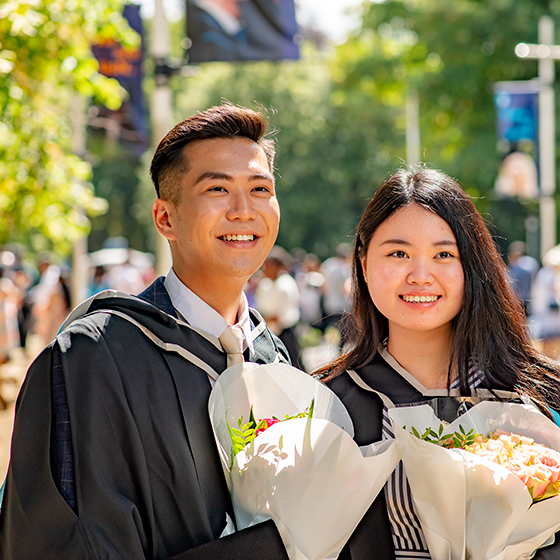
The Teaching Excellence Framework (TEF) is a national grading system, introduced by the government in England. It assesses the quality of undergraduate teaching at universities and how well they ensure excellent outcomes for their students in terms of graduate-level employment or further study.
This content was last updated on Thursday 28 March 2024. Every effort has been made to ensure that this information is accurate, but changes are likely to occur given the interval between the date of publishing and course start date. It is therefore very important to check this website for any updates before you apply.
- Work For Us
- REGISTER YOUR INTEREST
- Book an Open Day
If you’d like to receive the latest updates from Northumbria about our courses, events, finance & funding then enter your details below.
* At Northumbria we are strongly committed to protecting the privacy of personal data. To view the University’s Privacy Notice please click here
Tourism and Events Management BA (Hons)
- Entry Requirements
- Register Your Interest

- Course Overview
- Modules & Learning
- Teaching Staff
- Research-rich Learning
- Your Future
- Fees, Funding & Scholarships

This course is eligible for a scholarship. Find out more .
Start your career by joining one of the UK’s longest established tourism-related degrees.
Our BA (Hons) Tourism and Events programme has an outstanding reputation in the industry and is recognised as a Centre of Excellence by the Institute of Travel and Tourism – the UK’s professional body - and by the Association for Events Management Education (AEME).
Your Learning Experience
On the Tourism and Events programme, we provide an opportunity for you to develop essential practical, people and creative skills in one of the most exciting business sectors. You will be tutored by leading researchers and experienced practitioners in the field who draw on their professional and research relationships with a whole host of regional, national and international operators, attractions and governing bodies to mix real world experience with academic study. Through this, we promote experiential learning via placements, guest speakers from industry, live case studies, consultancy work and event organisation projects.
Why choose Northumbria to study Tourism and Events Management BA (Hons)?
- The course is covered by the prestigious Association to Advance Collegiate Schools of Business (AACSB) accreditation for Newcastle Business School.
- Northumbria University is recognised as a Institute of Travel and Tourism Centre of Excellence.
- Top University - Tourism, Transport, Travel & Heritage Studies is ranked 3rd in the UK by the Complete University Guide for 2024.
- Teaching Quality - Hospitality & Tourism at Northumbria is ranked top 15 in the UK for Teaching Quality & Student Experience (Times Good University Guide, 2024).
Student Rated - Over 90% of students studying Tourism and Events Management at Northumbria thought staff were good at explaining things and believed the library resources supported their learning (NSS, 2023). Also, over 90% of students studying Tourism, Transport and Travel at Northumbria felt information about mental wellbeing support services was well communicated to them, and felt free to express their ideas, opinions, and beliefs (NSS, 2023).
Discover why studying at Northumbria University is the right choice for you.
See other similar courses you may be interested in , such as International Business Management BSc (Hons) or progress onto our Hospitality Management Course .
If you're interested in looking at our Postgraduate courses then check out : International Hospitality and Tourism Management .
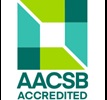
Course Information
UCAS Code N805
Level of Study Undergraduate
Mode of Study 3 years full-time or 4 year sandwich
Department Newcastle Business School
Location City Campus, Northumbria University
City Newcastle
Start September 2024 or September 2025
Fees Fee Information
Modules Module Information
Department / Newcastle Business School
Newcastle Business School has a global reputation for delivering some of the best business management education in the UK.
- View Department Courses
If you want to become a future leader or manager in a corporate environment, then you’ll be interested to find out more about Newcastle Business School.
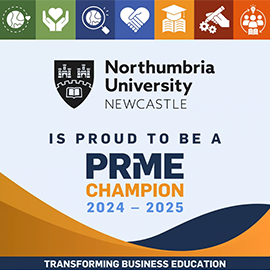
Northumbria named as a Principles for Responsible Management Education Champion.

Northumbria graduate lands dream role at live music venue.
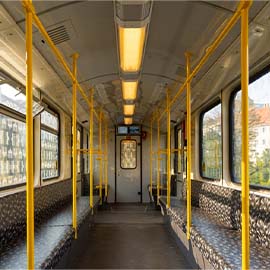
Students launch green awareness campaign for local metro.

Entrepreneurial student launches marine-based skincare products.
Meet the Team / Tourism and Events Management
Dr Sharon Wilson talks to students and graduates about their time on the course.
Delve Deeper / Discover more about life at Northumbria
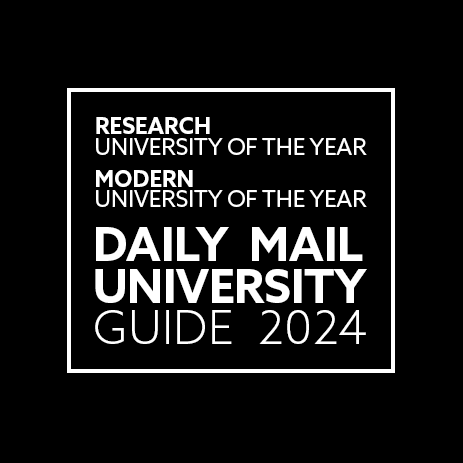
- ACCOMMODATION
- LIFE IN NEWCASTLE
- STUDENT SUPPORT
- FIND US ON SOCIAL
- BOOK AN OPEN DAY
Discover NU World / A virtual journey through everything Northumbria has to offer.
Explore our immersive 360 tours, informative subject videos, inspirational student profiles, ground-breaking research, and a range of life at university videos and articles.

How will I learn during the Tourism and Events Management BA (Hons) degree course?
Beginning with a general introduction to some of the main theories and concepts in tourism and events management, as the course progresses you will also develop an understanding of marketing principles in both a tourism and wider business context, plus undertake study in varied modules including event design, cultural place making and urban planning, and the future of tourism. This is a flexible course where you can shape your own learning and develop practical skills as you progress. You’ll also have plenty of opportunities to attend industry events, guest lectures and engage with leading organisations to discuss future industry developments and jobs. To give you that all-important practical experience, we also offer a year’s professional placement in the tourism and events industry. In recent years, our students have learned through working with international corporations such as Disney, Marriott Hotels and Premier Inn, both in the UK and overseas. Hands-on experience is also available at the Northumbria University Business Clinic. This is where students find solutions to real business issues for clients, dealing with everything from strategic marketing reviews to operations audits. Another option for broadening your horizons is a study year abroad with a partner institution in countries such as France, Spain and the USA. You’ll gain global perspectives on your subject and boost your future career prospects. Throughout your course we use a wide range of assessments including exams, written assignments, reports, individual and group presentations. In your final year, you’ll also be assessed on a piece of research work. This could be an individual dissertation, management enquiry or group consultancy project.
- See all the Modules for this course
The Business Clinic / Real-World Experience
Highly acclaimed by clients as successful, as students get to the root of the problem, and results in a detailed report and presentation of their recommendations.

The Business Clinic
Discover More
The Business Clinic is an education scheme whereby a group of business students participate in a ‘consultancy firm’ to provide advice for our clients.
Who teaches the BA Tourism and Events Management course?
Our staff bring valuable professional experience from the tourism and events industries gained in both the public and private sectors. All have broad business and management knowledge and have been published in prestigious international journals. They’re passionate about their subject and teaching you the essential skills for a successful career. So you can be confident you’ll receive the support, direction and practical knowledge you need to get the most from your time with us.
View all staff profiles.
Our Staff / Meet The Team
Our students learn from the best inspirational academic staff with a genuine passion for their subject.

Kate Harland

Dr Pau Obrador Pons

Dr Sharon Wilson
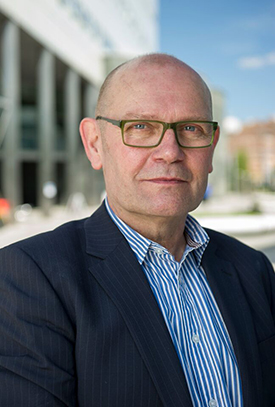
Prof Tom Mordue
Where will I learn throughout my Tourism and Events degree?
Here at Newcastle Business School you’ll experience a first-class education in a world-class environment. From our social spaces and hub areas to lecture theatres and exhibition spaces, our facilities are exceptional. For example, the 24/7 university library achieves some of the highest levels of student satisfaction in the UK and has held the Cabinet Office accreditation for Customer Service Excellence since 2010. We’re also committed to helping you make the most of Technology Enhanced Learning (TEL) by embedding it throughout the course. Tools such as the ‘Blackboard’ eLearning Portal and electronic reading lists are there to help you efficiently and thoroughly prepare for seminars and independent research. Lecture capture software means you can revise previously lectured material online in your time, as well as at your speed. What’s more, there are plenty of opportunities to put your learning into practice through volunteering, internships and placements This includes the Business Clinic that provides student consultancy facilities to work with our clients in response to their business problem. This is where students find solutions to real business issues for clients, dealing with everything from strategic marketing reviews to operations audits. Your clients are drawn from a range of organisations including multinationals, SMEs, not-for-profit charities and social enterprises from across the region and nationally.
Facilities / Learning Environment
Newcastle Business School delivers first class teaching in a world class environment.
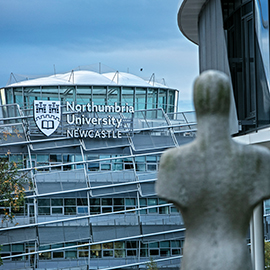
City Campus East
From social spaces, to classrooms, lecture theatres, hub areas and exhibition space, the facilities within Newcastle Business School are exceptional.
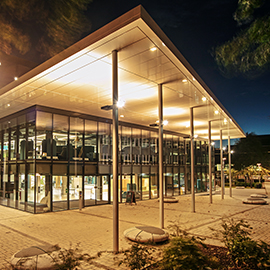
University Library
Business materials are situated on floor 4 of our city campus library which houses over 500,000 books.
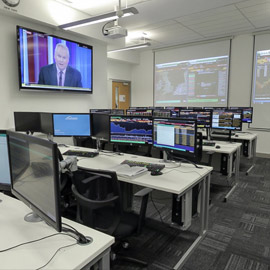
Bloomberg Trading Room
Learn how to use real time and historical financial news and information.

Digital Commons Library
Open 24/7 during term-time to meet demand for space and support.
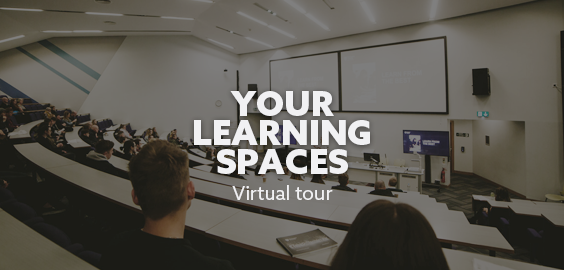
How is research applied to teaching throughout my degree?
This is a research-rich environment where you’ll be taught by staff with a strong academic background. Our staff are engaged in a wide range of professional and research areas in the tourism and events industries, such as: live music events, adventure tourism, heritage and culture industries, festivals, tour operations, gastronomy, city and destination branding and applied digital technologies. All have broad business and management knowledge, and many have published in prestigious world-leading journals. You can be confident you’ll receive the academic support and practical knowledge you need to find your place in this exciting and fast changing industry. You’ll learn important theoretical and practical research methods directly transferable to your future career. These include information literacy, as well as problem-solving skills around project management, self-directed learning and communication. By applying these skills directly to your final-year research project, you’ll be able to demonstrate how you can project manage a significant investigatory task independently and thoroughly.
Research / Newcastle Business School

Research Interest Groups

Impact Case Studies

Responsible Business
How will my BA (Hons) Tourism and Events Management degree provide me with the skills needed for my future?
Whether you opt for a professional placement or study year abroad, our BA Tourism and Events Management course will enhance your wider employability, as well as boost your long-term prospects. We place real emphasis on developing the transferable skills that open doors to a range of tourism and events management careers, and advanced study opportunities. These include communication, analysis, problem solving and analytical research plus the ability to work both independently and as part of a team.
You will work directly with industry professionals and potential employers as well as your course tutors. You can also benefit from the Santander Internship Programme that offers paid short-term internship opportunities. Students are encouraged to participate in placements at a variety of organisations, such as: Beaconhouse Events, the Premier Inn, Marriott Hotels (both in the UK and in the USA), Disney and Butler Search Group (who specialise in placing students at premium-level resorts, hotels and private clubs along the east coast of the US). In addition, students can access excellent study abroad opportunities at international universities in Spain, France, and the US.
Many of your tutors are heavily invested in the Place, Culture and Consumption research group, and as such you will experience teaching informed by current perspectives and debates critical for tourism and events, such as sociological and spatial concerns, ideas of how we learn and make sense of places and destinations, and how experiences are created and consumed.
After graduation, our students go on to a wide variety of professional roles in the tourism and events industries around the world. Recent examples include: Business Development Manager at the Institute of Travel and Tourism; Senior Events Manager for Marriot Hotels; Director of Global Sales at an aviation company and Assistant Director of Sales at a Ritz Carlton hotel.
Whatever you do next, you’ll enjoy the advantage of having studied for a course covered by the prestigious AACSB accreditation for Newcastle Business School.
Alumni Profiles / Tourism and Events Management BA (Hons)
Our graduates are really making an impact, transforming their lives and others. Here are a selection of some of our Alumni.
We were very lucky to have such good lecturers, especially Sharon who was a life saver! The staff would always go above and beyond, whether that was for academic help or pastoral care.
Chloe Spicer
One of the biggest skills I gained through my studies was confidence, especially the confidence to present ideas in front of an audience. I also developed fantastic research skills, as well as the ability to listen to others and work as a team to create the best outcome through group projects.
Erin Wilkinson
Career Edge / Added Experiences
You can boost your CV and develop your experience whilst studying at Northumbria.

Study and Travel Abroad

Student Life

Earn While you Learn
Career and Employment / Develop
From first year through to final year and beyond graduation, we are here to help.
We have a fantastic service for students' to use to gain advice and tips on furthering careers and enhancing their employability.

Careers and Employment Services
Book an Open Day / Experience Tourism and Events Management BA (Hons)
Visit an Open Day to get an insight into what it's like to study Tourism and Events Management. Speak to staff and students from the course and get a tour of the facilities.

Entry Requirements 2024/25
Standard entry.
112 UCAS Tariff points
From a combination of acceptable Level 3 qualifications which may include: A-level, T Level, BTEC Diplomas/Extended Diplomas, Scottish and Irish Highers, Access to HE Diplomas, or the International Baccalaureate.
Find out how many points your qualifications are worth by using the UCAS Tariff calculator: www.ucas.com/ucas/tariff-calculator
Northumbria University is committed to supporting all individuals to achieve their ambitions. We have a range of schemes and alternative offers to make sure as many individuals as possible are given an opportunity to study at our University regardless of personal circumstances or background. To find out more, review our Northumbria Entry Requirement Essential Information page for further details www.northumbria.ac.uk/entryrequirementsinfo
Subject Requirements:
There are no specific subject requirements for this course.
GCSE Requirements:
Applicants will need Maths and English Language at minimum grade 4/C, or equivalents.
Additional Requirements:
There are no additional requirements for this course.
International Qualifications:
We welcome applicants with a range of qualifications which may not match those shown above.
If you have qualifications from outside the UK, find out what you need by visiting www.northumbria.ac.uk/yourcountry
English Language Requirements:
International applicants should have a minimum overall IELTS (Academic) score of 6.0 with 5.5 in each component (or an approved equivalent*).
*The university accepts a large number of UK and International Qualifications in place of IELTS. You can find details of acceptable tests and the required grades in our English Language section: www.northumbria.ac.uk/englishqualifications
Entry Requirements 2025/26
Northumbria University is committed to supporting all individuals to achieve their ambitions. We have a range of schemes and alternative offers to make sure as many individuals as possible are given an opportunity to study at our University regardless of personal circumstances or background. To find out more, review our Northumbria Entry Requirement Essential Information page for further details www.northumbria.ac.uk/entryrequirementsinfo
Fees and Funding 2024/25 Entry
UK Fee in Year 1: £9,250
* The maximum tuition fee that we are permitted to charge for UK students is set by government. Tuition fees may increase in each subsequent academic year of your course, these are subject to government regulations and in line with inflation.
EU Fee in Year 1: £19,750
International Fee in Year 1: £19,750
ADDITIONAL COSTS
There are no Additional Costs
Fees and Funding 2025/26 Entry
UK Fee in Year 1*: TBC
EU Fee in Year 1: **TBC
International Fee in Year 1: TBC
If you’d like to receive the latest updates from Northumbria about our courses, events, finance & funding then enter your details below.
Modules overview 2024/25.
Module information is indicative and is reviewed annually therefore may be subject to change. Applicants will be informed if there are any changes.
Financial Decision Making (Core,20 Credits)
You will learn how financial information can be used to assist managers and external user groups in their decision-making processes. You will initially look at the informational needs of outside user groups, the nature of the information they are provided with, and how this information can be analysed and interpreted in order to enhance the effectiveness of their decision making. Topic areas will include: • The reporting frameworks and ethical principles that underpin financial reporting • The nature of international financial reporting standards • Format and content of the statement of profit or loss and statement of financial position • The statement of cash flows • Analysis and interpretation of financial statements using ratio analysis You will then examine how financial information can facilitate managers in making operational decisions in relation to planning and control. Topic areas will include: • Costing (full and variable costing) • Cost, volume, profit analysis • Relevant costs for decision making • Budgeting and variance analysis • Balance scorecards • Working capital management Finally, you will explore the motivations for entrepreneurial activity and techniques that can be used to appraise investment decisions. Topic areas will include: • Investment appraisal techniques (payback, accounting rate of return, net present value and internal rate of return) • Practical aspects of investment appraisal (inflation and capital rationing) • Risk and uncertainty
Business Analysis for Decision Making (Core,20 Credits)
In this module, you will develop the knowledge and skills in applying a variety of quantitative data analysis techniques to support business decision making. You will be introduced to business modelling using appropriate analytical tools, and your learning will cover a range of techniques to help business forecasting and data presentation. In this module you will be exposed to a range of data analysis tools and skills, including: • Business Analysis and Modelling: management of complex and varied data sets; building spreadsheet models. • Data Trends and Associations e.g. identifying relationships between business variables. • Business Forecasting and Predictive Modelling – analysing factors and trends for business planning. • Business and Dashboard reporting – consolidation, interpretation and presentation of data for professional output. • Data distribution, data presentation and using summary statistics – handling a range of data for statistical analysis. • Gaining an understanding of the overlap between business and research data and the selection of appropriate tools for management of both types of data. Working with these analysis tools, you will learn to develop confidence in dealing with a wide range of data sets. You will become familiar with the role of modelling as an aid to problem solving and will build skills which enable you to interpret data and present your findings to a range of audiences. Very importantly, you will gain a good understanding of the crucial role that analysis of data and interpretation of results plays in the decision-making arena.
Academic Language Skills for Newcastle Business School (Core – for International and EU students only,0 Credits)
Academic skills when studying away from your home country can differ due to cultural and language differences in teaching and assessment practices. This module is designed to support your transition in the use and practice of technical language and subject specific skills around assessments and teaching provision in your chosen subject. The overall aim of this module is to develop your abilities to read and study effectively for academic purposes; to develop your skills in analysing and using source material in seminars and academic writing and to develop your use and application of language and communications skills to a higher level. The topics you will cover on the module include: • Understanding assignment briefs and exam questions. • Developing academic writing skills, including citation, paraphrasing, and summarising. • Practising ‘critical reading’ and ‘critical writing’ • Planning and structuring academic assignments (e.g. essays, reports and presentations). • Avoiding academic misconduct and gaining credit by using academic sources and referencing effectively. • Listening skills for lectures. • Speaking in seminar presentations. • Presenting your ideas • Giving discipline-related academic presentations, experiencing peer observation, and receiving formative feedback. • Speed reading techniques. • Developing self-reflection skills.
Preparing for Professional Practice (Core,20 Credits)
Your programme aims to ensure that you are learners for business, not just of business, upon graduation. This module starts you on this journey by supporting your professional development. It aims to increase your awareness of and sensitivity to personal and employability/entrepreneurship/enterprise skills. It does this by focusing on programme-specific graduate career opportunities that require you to work on projects similar to those that graduates within your field will undertake once in employment. You are taking an experiential, team-focussed, project/problem-based approach. The module will support you in identifying and developing the essential skills, behaviours, and understanding required to sustainably and responsibly manage organisations and their people. These might include generic areas such as leadership, project management, management, resilience, empathy and professional judgment, and discipline-specific capabilities. You will use this understanding to evaluate, practise, develop and re-evaluate your capabilities in these skills, behaviours and acumen areas, enabling you to build your own graduate identity. This approach underpins your successful future employability, entrepreneurship or enterprise activity. In addition, the activities provide you with authentic insights into the importance and challenges of team-working within organisations as you work to address real organisations’ issues. Learner/team-led, tutor-guided sessions aim to support you in enhancing your employability and upon building your graduate identity. During the practical development of the key attributes and behaviours central to your future success within your chosen profession within a project-based environment, you will receive support from the programme team. In addition, by documenting and reflecting upon your progress towards achieving your own team defined KPIs, you will enhance your skills, behaviours, capabilities, and understanding. In short, at the end of this module, you will: • Have an understanding and increased awareness of, and sensitivity to, those personal skills and attributes which are central to your future employability in your chosen profession or future entrepreneurial or enterprise activity • Be better prepared to understand the skills and qualities required by graduates in your field to secure future employment or engage in enterprise activity Have practical experience of working on a real-life business project appropriate to your programme area, improving your project management, research, employability and collaboration skills
Business, Economy and Society (Core,20 Credits)
Governments and society are increasingly expecting business organisations to step up and assist in building cohesive societies through the application of more sustainable forms of capitalism. This module introduces you to the global economic, societal, technological and environmental challenges of the 21st century, and identifies how, through greater alignment of business interest with that of society and the economy, business can be a “force for good” as well as best prepared to ‘Take on Tomorrow’. You will focus on how contemporary businesses, broadly defined to include public, voluntary, not-for-profit and social enterprise, interact the economy and society though examination of topical news stories and events. In doing so, you will develop a deep understanding of the relationships between business, the economy and society and the global challenges we all face. You will explore a range of cultural, governmental and ethical issues that arise from current and developing global and national contexts through the lens of the Sustainable Development Goals (SDGs). Key issues include business ethics, the role of business in society, green issues, stakeholder theory, capitalist variants, the nature of globalisation at firm, economic and societal level and the interrelationship between business and government. By the end of the module you will be able to evidence critical thinking and analysis skills while bringing your own experiences as a citizen into your discussion and inquiry.
Introduction to Marketing (Core,20 Credits)
This module will introduce you to the business philosophy and practice of marketing. It will examine how organisations can analyse and segment markets to improve performance and profitability by building long-term relationships with their customers. A wide range of marketing decisions is studied together with the influence of the changing marketing environment on these decisions. Main lectures will introduce the basic theories of marketing: • The Marketing Environment • Consumer & Organisational Behaviour • Target Marketing & Segmentation. • Marketing Information Systems & Research. • Dimensions of a Product, Branding and Product Life Cycle. • Pricing Theory; strategies and tactics. • The Promotional Mix: Advertising, PR, Direct & e-Marketing. • Marketing channels Whilst seminars and topical lectures will apply marketing theory to different case scenarios: • Service Marketing • Not for profit Marketing • Food marketing • Digital Marketing • Environmental Marketing • Sustainable Marketing
Introduction to Tourism and Events (Core,20 Credits)
This module provides you with a concise and lively introduction to the increasingly complex and ever exciting world of tourism and events. The module is conceived as a travel guide through the discipline. Like any guidebook, it seeks to stimulate your imagination, point out noteworthy areas and minimise the stress of the experience. You will develop a general understanding of tourism and events as both an economic and cultural practice, and will gain a basic familiarity with some of the main theories and concepts in tourism and events management. You will also become aware of the state of tourism and events in the 21st century as well as the different components that constitute the tourism and events complex including tourist, destinations and business. You will cover the following 10 topics: Understanding tourism, tourism and events in the twenty-first century, tourism demand and supply, tourist behaviours, attractions and destinations, tourism impacts, understanding festivals and events, introduction to event planning and management, the inter-relationship between tourism and events sectors, and tourism and events futures. With this module you will develop critical, practical, academic study and information literacy skills to enable the full achievement of learning outcomes at the module and programme levels. In particular, you will learn to develop a sustained reasoned argument where you research and assess paradigms, theories, principles, concepts and factual information, and apply such skills in explaining and solving questions.
Newcastle Business School Study Abroad Semester (Optional,60 Credits)
The Study Abroad Semester module is a semester long 60 credit module which is available on degree courses which include the option to study abroad in Semester 2 of Year 2. You will undertake a semester abroad at a partner university equivalent to 60 UK credits. The study abroad placement is an important element of your course structure and gives you access to modules from your discipline taught in a different learning culture and so broadens your overall experience of learning. When taken and passed the study abroad semester will be recognised in your transcript as a 60 credit Study Abroad Module. The learning and teaching on your study abroad placement will be dependent on the partner and will be recorded in the learning agreement signed by you, the host University, and the University.
Creativity and Innovation (Core,20 Credits)
In this module you will gain a comprehensive understanding of the nature and practice of creativity and innovation and how it can be applied, whether within the context of a new venture or an existing organisation. The module will cover theories relating to innovation and its management within a strategic management context. This will be combined with an introduction to processes of stimulating creativity in a variety of business contexts. The module will seek to facilitate the development of practical skills to promote creative thinking through practice-based elements in which real world problems are introduced for the testing of creative teamworking techniques. Specific topics will include: Innovation in a strategic context: What is innovation, innovation and industrial dynamics, innovation strategy, disruptive innovation The process of innovation and creativity: Models of innovation process, sources of innovation, open innovation, innovation management, creativity, design thinking. The creative environment: The creative organisation, creative industries, creative class, creative places Innovation and creativity policy: Innovation systems and clusters, promoting creative places
Tourism, Events and Society (Core,20 Credits)
Tourism and events are important social phenomena in contemporary times with significant impacts on societies around the globe. This module breaks the mould of approaching tourism and events as self-contained activities to develop a critical awareness of the relationships of tourism and events with culture, place and society. It takes fun, play and celebration seriously, placing tourism and events at the heart of modern life rather than as a peripheral feature added on after. It also reveals the ritual, performative and embodied dimensions of tourism and events experiences The module provides an up-to-date overview of social sciences approaches to tourism and events drawing on ideas from sociology, geography anthropology and history. Some of the topics you will cover include the invention of tourism, events in modernity, authenticity and performativity, host and guest relationships, tourism art, the tourist gaze, embodiment, gender and sexuality, ritualization and tradition, transgressive and transformational events, tourism and its discontents, over tourism, youth cultures and night life economies In this module you will develop a critical awareness of the main challenges and inequalities in tourism and events, supported by international case study examples and opportunities for critical debate. Special attention will be given to the social and environment tensions and frictions that tourism and events create as well as the various attempts to develop a more responsible approach to tourism and events. You will learn to develop a sustained reasoned argument where you research and assess paradigms, theories, principles, concepts and factual information, and apply such skills in explaining and solving questions.
Marketing for Tourism and Events (Core,20 Credits)
The marketing of intangible offerings such as tourism and events products are critical to their success. This dynamic module focuses on the application of key marketing strategies applicable to the industry. Building on the foundations of marketing theory, learners will utilise cutting edge concepts to create promotional tactics for real or hypothetical marketing campaigns. The module adopts an experiential learning approach that encourages entrepreneurial thinking; and it utilises the extended marketing mix to provide a framework for the creation of effective campaigns. Skills attainment on the module includes: basic aptitude in social media marketing that lends itself to applying innovation practices, using digital platforms such as Facebook, Instagram, Twitter and design applications such as Canva. The module examines the leisure based service sector and how it can be marketed in innovative ways. At the end of the module learners -having worked on small scale projects that relate directly to industry – will demonstrate a good understanding of how tourism and events can be used as a promotional tool for destinations and leisure services. The module also encourages reflection on the consumer experience in both ‘bricks and clicks’ organisations where learners will understand the key requirements of relationship management through effective public relations, honing their skills to critically evaluate marketing practices. The two hour weekly lectures provide a theoretical underpinning of the module content, relating theory to practice through the use of case studies supported by guest lectures and local visits to cultural venues. The one-hour weekly seminar / workshop offers the opportunity to apply knowledge to tourism and event production processes, providing opportunities for teams to work together to plan and produce campaigns by using the theoretical knowledge gained in the lectures. Students are expected to keep up-to-date with the reading and the workshop activities. As mooted, keynote lectures will introduce the topics and seminars will be used to discuss and apply the theories to case studies. Materials for the module are housed on the e-learning portal, and include lecture materials, seminar activities and preparation and assessment details. The e-learning portal will also provide recordings of guest lectures and links to contemporary articles - both research-based and industry practice based articles will be used. Learners are expected to participate in activities as individuals and as part of a team, both of are part of your self-directed learning. Students can access a wide range of supporting materials, including an electronic reading list which will provide links to academic reports, book sections and articles. In the group work component, marketing theories will be used to underpin practical activities such as marketing an event, setting up a promotional stall or developing an existing campaign with a local organisation. Through this experiential learning learners will be able to describe and explain the key terms and concepts of marketing planning, whilst also being critically engaged marketers who are aware of sustainable and ethical practices and issues.
Events Design, Planning and Production (Core,20 Credits)
This module provides an overview of the principles and practices of planning, managing and staging events, equipping you with the necessary skills and abilities to organise professional events. You will develop familiarity with the theory and practice needed to activate each stage of the event cycle from design and planning to production and evaluation. You will also learn how events contribute to enriching the lives of communities and improve communications in business, politics and professional life. This module has two distinctive parts. The first part explores the role of design in events, you will gain an understanding of design principles and concepts as well as creativity as a managing tool. You will also gain a good grounding of the holistic process of designing effective and engaging events that meet both business and leisure demand as well as the requirements of suppliers. The focus here is on developing creative thought, procedures and practices. The second part explores the activities undertaken by an event manager as an event is prepared for staging. You will gain an understanding of key aspects of planning and management and operations in events management including venue inspection, budgeting, health & safety issues, event production logistics, volunteer management, crisis management and evaluation. The focus here is on understanding the practical considerations of running an event. In this module, you will learn from experience by designing, planning and staging your own events. Working in groups, you will apply the skills and knowledge acquired to real life situations.
Managing the Travel and Tourism Industry (Core,20 Credits)
This module will provide you with the knowledge and a critical understanding of the management of travel and tourism offerings both packaged and unpackaged. The module analyses the pivotal role of principals (accommodation, airlines and attractions), intermediaries, such as tour operators and destination management companies, in the creation and distribution of tourism commodities. You will develop an appreciation of the complex management and operational challenges faced by managers when planning, marketing and operating responsibly in host destinations. The module commences with sector overview providing an understanding of the external environment, researching strategic opportunities for new products and developments. It addresses the key operational, consumer and host destination supplier management challenges, within the political and legal constraints of tourism management in a global context. The creation of products offerings is examined, with attention being paid to special interest tourism and the complex supply chain necessary in creating such products. The intricacies and relationships between these actors are analysed and you will develop a working insight into the business of suppliers and management organisations including contracting, digital enterprises and crisis management. Your studies will highlight the importance of cost-effective dissemination though e-mechanisms and traditional distribution agents. You will examine the key issues in management operations such as customer service, product innovation and the sharing economy within the associated legal and regulatory frameworks.
Researching Tourism and Events (Core,20 Credits)
This is an experiential learning module that is based on a residential fieldtrip, where you will conduct qualitative and quantitative research on tourism and events. The module introduces you to the process of fieldwork equipping you with basic research skills. In preparation for the trip, you will be introduced to the main methodologies and methods of data collection to include surveys, ethnographic observational work, interview techniques, experimental, mobile and visual methods. Once in the field, you will conduct primary research on a topic concerning tourism and events planning, experience, motivation and/or host-guest relationships. Having direct involvement in data collection and analysis in the social environment of tourism and events, will be essential experience to develop critical awareness and intellectual agility to deal with the ethical, social, environmental issues that influence the planning design and delivery of the tourism and events product. You will learn about research and inquiry skills and techniques both in class and in the field by studying a range of research methods, with an emphasis will be on research processes and application. The module adopts a student-centred approach to learning, where you will develop an understanding of research through your active involvement in studying, designing and conducting research. This module will prepare you for some of the advanced research-based work at level 6 in the dissertation and consultancy projects, adding value to the learning and teaching of research methods for final dissertation work. Assignments will include a group fieldwork research project, and an individual essay that will critically review relevant literature as well opportunity for critical analyse the empirical work undertaken in the field.
Newcastle Business School Work Placement Year (Optional,120 Credits)
The Work Placement Year module is a full year 120 credit module available on degree courses which include a work placement year which is taken as an additional year of study between levels 5 and 6. The placement consists of 48 weeks of full time work experience in a host organisation which is relevant to your studies. The placement is an important element of your course structure and it will provide you with the opportunity to: • Experience the environment of a real workplace which will help you decide the type of career you would like to follow after graduation • Develop your organisational and interpersonal skills required to enable you to work efficiently as a member of a team • Acquire and develop relevant technical skills associated with the nature of your work • Identify, analyse and discuss with experienced practitioners how theoretical concepts are adapted and applied to suit practical requirements • Apply knowledge that will help you to plan and evaluate future study and career development. This is a Pass/Fail module and so does not contribute to your degree classification. When taken and passed, however, the Placement Year is recognised in your transcript as a 120 credit Work Placement Module and on your degree certificate in the format “Degree title (with Work Placement Year)”. The learning and teaching on your placement will be recorded in the training agreement signed by you, the placement provider, and the University.
Newcastle Business School Study Abroad Year (Optional,120 Credits)
The Study Abroad Year module is a full year 120 credit module which is available on degree courses which include a study abroad year which is taken as an additional year of study between levels 5 and 6. You will undertake a year abroad at a partner university equivalent to 120 UK credits. The study abroad placement is an important element of your course structure and gives you access to modules from your discipline taught in a different learning culture and so broadens your overall experience of learning. At the end of the module you will have adapted to and appreciated a different cultural and learning environment and developed ability. You will have developed your interpersonal and intercultural communication skills as a result of your learning in an international environment. This is a Pass/Fail module and so does not contribute to your degree classification. When taken and passed, however, the Study Abroad Year is recognised in your transcript as a 120 credit Study Abroad Module and on your degree certificate in the format “Degree title (with Study Abroad Year)”. The learning and teaching on your study abroad placement will be dependent on the partner and will be recorded in the learning agreement signed by you, the host University, and the University.
Newcastle Business School Blended Placement Year: Work Placement Semester (Optional,60 Credits)
The Work Placement Semester module is a semester long 60 credit module which is available on degree courses which include the option to take a blended placement year of Work and Study Abroad which is taken as an additional year of study between levels 5 and 6. On this module you will undertake a semester long work placement. The placement consists of a period of full time work experience in a host organisation equivalent to a full semester of study which is relevant to your studies. The placement is an important element of your course structure and it will provide you with the opportunity to: • Experience the environment of a real workplace which will help you decide the type of career you would like to follow after graduation • Develop your organisational and interpersonal skills required to enable you to work efficiently as a member of a team • Acquire and develop relevant technical skills associated with the nature of your work • Identify, analyse and discuss with experienced practitioners how theoretical concepts are adapted and applied to suit practical requirements • Apply knowledge that will help you to plan and evaluate future study and career development. This is a Pass/Fail module and so does not contribute to your degree classification. When taken and passed, however, the Placement Year is recognised in your transcript as a 60 credit Work Placement Module. The learning and teaching on your placement will be recorded in the training agreement signed by you, the placement provider, and the University. Combining this with the study abroad semester as part of the third year out of the University, this will be recognised on your degree certificate in the format “Degree title (with Study Abroad and Work Placement Year)”.
Newcastle Business School Blended Placement Year: Study Abroad Semester (Optional,60 Credits)
The Study Abroad Semester module is a semester long 60 credit module which is available on degree courses which include the option to take a blended placement year of Work and Study Abroad which is taken as an additional year of study between levels 5 and 6. You will undertake a semester abroad at a partner university equivalent to 60 UK credits. The study abroad placement is an important element of your course structure and gives you access to modules from your discipline taught in a different learning culture and so broadens your overall experience of learning. When taken and passed the study abroad semester will be recognised in your transcript as a 60 credit Study Abroad Module. The learning and teaching on your study abroad placement will be dependent on the partner and will be recorded in the learning agreement signed by you, the host University, and the University. Combining this with the work placement semester as part of the third year out of the University, this will be recognised on your degree certificate in the format “Degree title (with Study Abroad and Work Placement Year)”.
Management Enquiry (Optional,40 Credits)
The Management Enquiry module is a student-led individual project that enables you to undertake a significant piece of assessed work commensurate with a capstone module. The module aims to provide you with an opportunity to demonstrate an authentic engagement with managers and/or professionals in your discipline, and to integrate the knowledge you have developed during your programme to explore the theory in practice. The learning on this module is experiential and problem based, where the focus is upon you discovering, probing and questioning key practice-based issues. Through the module you will be offered the opportunity to develop and enhance key transferable employability skills including; time management, project management, communication (written, aural and verbal), negotiation, persuasion and influence, discovery, initiative, problem-solving and analysis. The module has five thematic areas; explore, review, engage, reflect and connect. These form the key elements of the assessed submission. Part A (35%, 3,500 Words) • Explore: Interviewing a manager and/or professional in your discipline. In this interview you will either explore a key issue which you feel the discipline is facing or, alternatively, explore with the manager or professional the key issues that they feel they are facing in practice. It is expected that you will apply appropriate interview methods and provide evidence of the interview within the submitted enquiry report (e.g. within the appendices). • Review: Critically examining the appropriate literature to support the exploration, displaying an ability to critically assess and appraise the knowledge of your discipline related to a specific key issue arising from your exploration. Part B (65%, 6,500 Words) • Engage: Displaying an authentic engagement with the discipline problem/issue identified in Part A, by collecting/generating and analysing further live data (beyond the initial interview) regarding the discipline problem/issue. This live data may be primary data (e.g. further interviews with, or questionnaire to, managers and/or professionals in practice) or secondary data (e.g. industry data). Application of appropriate, ethically-considered, research methods and appropriate qualitative or quantitative data analysis. • Reflect and Connect: Demonstrating an ability to critically evaluate and reflect on the issues arising from the Management Enquiry. Demonstrating how you have connected and fed-back to the participants of the Enquiry (usually the manager and/or participants) your key findings to provide clear prioritised, well-justified, practical and actionable recommendations for change/enhancement/improvement to existing practice to show how the recommendations would potentially affect workplace professional decision making.
Dissertation (Optional,40 Credits)
The dissertation module aims to equip you with the necessary intellectual and practical skills for undertaking an individual student-led, ethical investigation into an applied business (or the named degree) problem or issue. In addition, the dissertation aims to equip you with key transferable, employability skills, including: time management, project management, communication (written and verbal), negotiation, persuasion and influence, discovery, initiative, creativity and innovation in problem-solving, analysis. The module is student-led but you are supported by, initially, weekly lectures and seminar-workshops which provide an introduction to undertaking Business-Management research followed by one-to-one or small-group supervision meetings. The lectures and seminar-workshops will cover the following topics: 1. Developing a research aim/question (focusing and scoping the research) 2. Developing a literature review 3. Writing a research proposal 4. Researching ethically 5. Quantitative research techniques 6. Qualitative research techniques 7. Quantitative analysis techniques 8. Qualitative analysis techniques Upon completion of the module you will be able to: 1. Conduct independent and ethical academic research involving the application and critical evaluation of appropriate theories and models, 2. Engage critically with relevant literature to establish a framework in which to analyse and synthesise the results of your primary or secondary research 3. Generate / collect relevant primary or secondary data using an appropriate and justified method 4. Analyse your data using an appropriate and justified method of analysis 5. Recognise the ethical implications of your work 6. Critically evaluate the source of your data and the method you adopted
Undergraduate Consultancy Project (Optional,40 Credits)
The module aims to provide you with an opportunity to integrate the knowledge acquired during the programme and apply this to a consultancy project for a real organisation. This consultancy project provides a vehicle for participants to develop and demonstrate key employability skills, to relate theory to practice, and to undertake a significant piece of assessed work commensurate with a capstone module. You will work on behalf of an external organisation, which has identified a business problem or question, requiring a solution, working in small group of typically 4 individuals (you will select their own team members), participating in group and individual activities. The host organisation will provide a project briefing, and review; students will be supported by appropriate academic input and guidance from Newcastle Business School in the form of a mentor and via the Business Clinic.
Culture, Tourism and Eventful Cities (Core,20 Credits)
In an increasingly globalised world our cultural practices are changing and our ability to travel and visit cities, internationally, is increasing too. This also means that cities at a global level are competing for tourists as well as other visitors, ranging from producers and consumers of culture in myriad form. In this module you will examine the concept of culture and its relationship with tourism, exploring the complexity of cultural tourism and its increasing globalisation in existing and emergent world destinations. Emphasis will be placed upon cultural tourism, events and festivalisation in urban contexts. Topics include, understanding cultural tourism and events, globalisation and trends in cultural tourism and events; cultural tourism in urban contexts; tourism and urban renaissance, cultural events and festivalisation, managing cultural cities, citizenship in cultural cities, heritage tourism; and tourism the media and popular culture. Drawing on a wide range of theoretical and conceptual perspectives, you will develop an understanding of the way cities and urban spaces are becoming places of consumption and spectacularised through tourism, festivalisation and the staging of events. You will also have the opportunity to understand what it means to live in, and be a citizen of, the eventful city. With this module you will develop interpersonal communication skills both in written and in oral form. You will learn to develop a sustained reasoned argument where you research and assess paradigms, theories, concepts and factual information, and apply such skills in the production of a written course-work assignment. We will take the opportunity to consider Newcastle upon Tyne and other North East cities to illustrate the issues the module raises first-hand.
Strategic Management and Entrepreneurship in Tourism and Events (Core,20 Credits)
In this module you will gain a comprehensive understanding of the nature and practice of entrepreneurship and innovation within tourism, hospitality and events. The module will introduce students to the fundamental strategic management principles in tourism, hospitality and events management through a range of industry-based case examples. The module will also reflect on practice and developments in small and medium enterprises, making comparison with operations and practice in larger organisations from a strategic perspective and exploring the entrepreneurial aspects of both. Key themes which you will explore: The theories and models that guide the development of business strategy for tourism, hospitality and events sector, The role and nature of individual and collective entrepreneurship and intrapreneurship, The creative use of entrepreneurship and social innovation, The role of tourism in responding to developmental opportunities created by societal change and economic necessity, Sectoral strategies and policy issues within public sector entrepreneurship and place/ regional development. You will explore the development and operation of the following tourism, hospitality & event products; rural tourism, nature-based tourism, volunteer tourism, event sustainability, creative and heritage attractions, innovation in restaurants and hospitality, and place/regional development. You will evaluate these from a strategic, management, sustainable practice perspective and will draw on the concepts of entrepreneurial activity. This will give you skills and knowledge necessary to develop a career in tourism, events and hospitality and also skills which are transferable to other industries. Your learning will be supported by a wide range of learning material drawn from academic literature, policy and practice sources and regional, national and international case studies.
Business Tourism and Events (Core,20 Credits)
Business tourism and events is a key segment of an ever-evolving industry, and through strategic planning, organisation and management, the segment continues to be an important focus in destination planning. In this module you will develop both a critical and practical understanding of this growing sector of tourism and events management. The module is based on three key areas of business tourism and events: structure, management and environment. First, you will learn about the range and reach of business tourism, focussing primarily on the structure of the MICE industry (meetings, incentive travel, conferences/conventions and exhibitions). You will examine the nature and scope of the MICE industry from a national and international perspective. You will also learn how to develop management strategies for the effective planning and management of MICE events. Second, you will develop specialist knowledge of the latest management strategies, including planning, implementation, operation and control of business tourism and events. Thirdly, you will explore the dynamic environment of business tourism and events by understanding the latest issues and future impacts within the business tourism segment. The learning in this module seeks to equip you with the skills of intellectual autonomy and collaborative working through critical and strategic inquiry. By examining real life situations through debate, discussion and active engagement, you will identify and explain key operational quality issues as well present and potential impacts.
Global Challenges and Tourism Futures (Core,20 Credits)
This module explores the uncertain futures of tourism by encouraging in-depth discussion and critique of key tourist questions and challenges facing communities, industry and governments. Tourism can only exist in the long term if it is managed responsibly. And yet the industry faces short demands for profits in a dynamic and challenging environment, which creates negative impacts that compromises its very own future. The module seeks to develop both theoretical and practical knowledge on how best to develop tourism potential without endangering the surrounding infrastructure and environment. The module will cover four distinctive areas of study. Firstly, sustainable tourism as the objective of both tourism industry and destinations. You will gain a critical appreciation of theoretical approaches to sustainability and will critically discuss the implementation of sustainable tourism policies and practices. Secondly, the impacts of climate change and other risk factors in tourism. Climate change is arguably the single most important global environmental issue facing the tourism sector. Tourism both contributes to, and will be notably affected by, climate change. Thirdly, transport, human mobility and globalisation. These issues are considered in terms of social, physical, virtual, cultural and historical aspects of the movement of people, artefacts, goods and ideas. Increased restrictions to global mobility will be also considered. Finally, the challenges of an ageing population for tourism. Some of the many emerging consequences of economically successful societies and its changing demographics will be unpacked as new strategies are needed for dealing with the modern propensity to travel.
Modules Overview 2025/26
To start your application, simply select the month you would like to start your course.
Home or EU applicants please apply through UCAS
- Read our Undergraduate Application Guides
- Listen to our current students advice on applying to university
- Get some advice on planning and writing your personal statement
International applicants please apply using the links below
START MONTH
Any questions.
Our Applicant Services team will be happy to help. They can be contacted on 0191 406 0901 or by using our Contact Form .
Accessibility and Student Inclusion
Northumbria University is committed to developing an inclusive, diverse and accessible campus and wider University community and are determined to ensure that opportunities we provide are open to all.
We are proud to work in partnership with AccessAble to provide Detailed Access Guides to our buildings and facilities across our City, Coach Lane and London Campuses. A Detailed Access Guide lets you know what access will be like when you visit somewhere. It looks at the route you will use getting in and what is available inside. All guides have Accessibility Symbols that give you a quick overview of what is available, and photographs to show you what to expect. The guides are produced by trained surveyors who visit our campuses annually to ensure you have trusted and accurate information.
You can use Northumbria’s AccessAble Guides anytime to check the accessibility of a building or facility and to plan your routes and journeys. Search by location, building or accessibility feature to find the information you need.
We are dedicated to helping students who may require additional support during their student journey and offer 1-1 advice and guidance appropriate to individual requirements. If you feel you may need additional support you can find out more about what we offer here where you can also contact us with any questions you may have:
Accessibility support
Student Inclusion support
All information is accurate at the time of sharing.
Full time Courses are primarily delivered via on-campus face to face learning but could include elements of online learning. Most courses run as planned and as promoted on our website and via our marketing materials, but if there are any substantial changes (as determined by the Competition and Markets Authority) to a course or there is the potential that course may be withdrawn, we will notify all affected applicants as soon as possible with advice and guidance regarding their options. It is also important to be aware that optional modules listed on course pages may be subject to change depending on uptake numbers each year.
Contact time is subject to increase or decrease in line with possible restrictions imposed by the government or the University in the interest of maintaining the health and safety and wellbeing of students, staff, and visitors if this is deemed necessary in future.
Your Learning Experience Find out about our distinctive approach at www.northumbria.ac.uk/exp
Admissions Terms and Conditions northumbria.ac.uk/terms Fees and Funding northumbria.ac.uk/fees Admissions Policy northumbria.ac.uk/adpolicy Admissions Complaints Policy northumbria.ac.uk/complaints

Northumbria Open Days
Open Days are a great way for you to get a feel of the University, the city of Newcastle upon Tyne and the course(s) you are interested in.

Fees, Funding and Scholarships
Information about all of our tuition fees, funding and scholarships.

Virtual Tour
Get an insight into life at Northumbria at the click of a button! Come and explore our videos and 360 panoramas to immerse yourself in our campuses and get a feel for what it is like studying here using our interactive virtual tour.
Back to top


- Request Info
- About UNI About open dropdown
- History & Traditions
- Office of the President
- Administrative Departments
- Academics Academics open dropdown
- Majors, Minors & Degrees
- Pre-Professional Preparation
- Online & Distance Education
- Colleges & Departments
- Honors Program
- Student Research
- Study Abroad
- Office of the Registrar
- Academic Advising
- Admissions & Aid Admissions & Aid open dropdown
- Transfer Students
- International
- Tuition & Fees
- Financial Aid
- Student Life Life on Campus open dropdown
- Health & Safety
- Housing & Dining
- Student Health & Wellbeing
- Career Services
- Cedar Falls & Waterloo
- Support UNI Support UNI open dropdown
- UNI Alumni Association
- UNI Foundation
- Give to UNI
- Rod Library
- Recreation, Tourism and Nonprofit Leadership
Master of Arts
Ready to enhance your leadership skills in managing youth, community, and outdoor programs as well as tourism agencies within public or nonprofit sectors? Enroll in our MA program to gain the latest knowledge and best practices for managing recreation, tourism and nonprofit leadership (RTNL) programs and organizations. Grow intellectually and professionally while preparing to meet the needs of today's communities.
- Join a cohort of students and attend in-person classes in UNI’s Wellness and Recreation Center, a lively facility dedicated to athletics, fitness, rock climbing, and aquatics.
- Learn to design programs and manage facilities for recreation, tourism, and nonprofit agencies.
- Explore on-campus job opportunities in recreation and athletics or apply for a graduate assistant position in outdoor education and leadership.
- COAPRT Accreditation
- Recreation, Tourism & Nonprofit Leadership Major
- Recreation, Tourism & Nonprofit Leadership Minor
- Nonprofit Leadership Certificate
- Outdoor Recreation Certificate
- Tourism Certificate
- Youth Work in Religious Settings Certificate
- Philanthropy/Nonprofit Development
- Doctor of Education (EdD)
- RTNL Outdoor Adventures
- Graduate Assistantships
- Faculty & Staff Directory
- Alumni & Friends
Renewed Focus on RTNL
We're excited to share that our master's degree program at UNI is transitioning to a recreation, tourism, and nonprofit leadership (RNTL) focus (formerly community health and recreation). This shift reflects our commitment to providing a specialized education tailored to these industries' evolving needs. Watch for updates in the University Catalog .

Empower healthy choices and foster resiliency by directing youth camps, outdoor programs, or senior centers.
Communities
Facilitate community building by creating recreational centers, playgrounds, visitor centers, parks, and natural areas that promote connectivity.
Embark on a dynamic career in the growing recreation industries while shaping the future of nonprofit or government agencies.
Interested? Request information
Tell us more and we'll send information on how you can succeed with a recreation, tourism and nonprofit leadership MA degree from the University of Northern Iowa College of Education.
Visit Harvard
Whether you have a few hours or a few days, many discoveries await.
Harvard Yard is currently closed to the public. During this time no tour groups are permitted in the Yard.
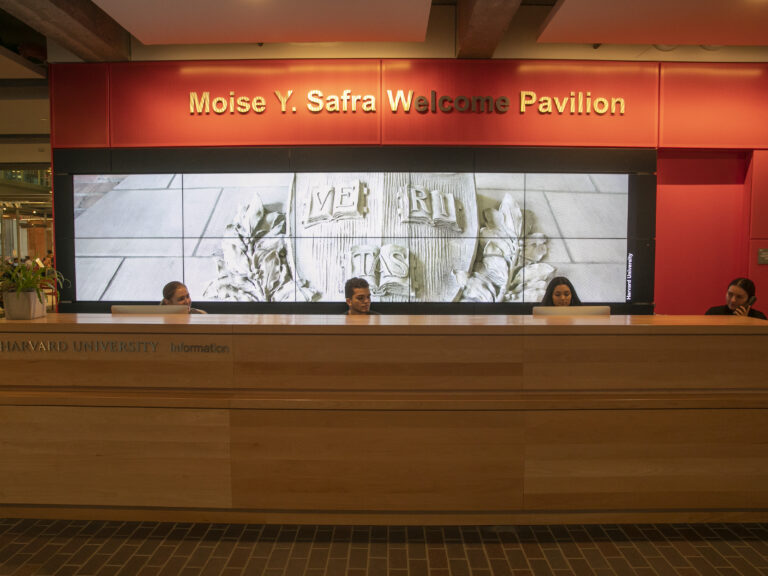
The Harvard University Center is open Monday through Friday from 9 a.m. to 5 p.m.
Harvard University Visitor Center
Harvard University established the Visitor Center in 1962 as the front door to the University, where students greet visitors from all over the world, answer questions about campus, and provide official tours of Harvard.
Email [email protected]
Mysterious facts, hidden gems, iconic figures, famous traditions, world-changing ideas, and everyday quirks—explore these and more on the official Harvard tours. Our tours are led by students and are offered both in-person, on campus and virtually. In addition, self-guided tours are offered on the Visit Harvard mobile app, available to download on iOS and Android devices.
Explore all of our tours
Historical Tour of Harvard
The free, student-led public walking tour through Harvard Yard provides a history of the University, general information, and a unique view on the student experience.
Visit Harvard mobile app
This free mobile app features a self-guided walking tour through Harvard Yard that highlights the history behind iconic buildings, traditions, alumni and more.
Explore on your own
Turn virtually any corner at Harvard and you’ll find something that leaves you feeling inspired. Explore the places, ideas, artifacts, and moments that make us who we are.
Find more at our museums
Harvard Libraries virtual exhibits
Virtual tour of the harvard museum of natural history, harvard and the legacy of slavery walking tour, places we love.
Harvard community members share their favorite places on campus.

William “Ned” Friedman, Director of the Arboretum
Arnold Arboretum
“There is a magnificent horticultural “sport” (genetic mutant) of the standard European beech tree ( Fagus sylvatica ) that came to the Arboretum in 1888 from the Royal Botanic Gardens, Kew (and was probably collected in the wild in France). Instead of growing straight up to the sky, the shoots twist and turn into gyres, and the net effect is a tree that is essentially a small hemisphere.”

Rhea Bennett, Class of ’20
Radcliffe’s sunken garden
“One of my favorite places on campus when the weather is warm is the sunken garden in Radcliffe Yard. It is a beautiful, little green spot on campus where the gurgle of the fountain creates a quiet, calm atmosphere. Doing work there on a sunny day makes me feel like I’m in an oasis in the middle of the city.”
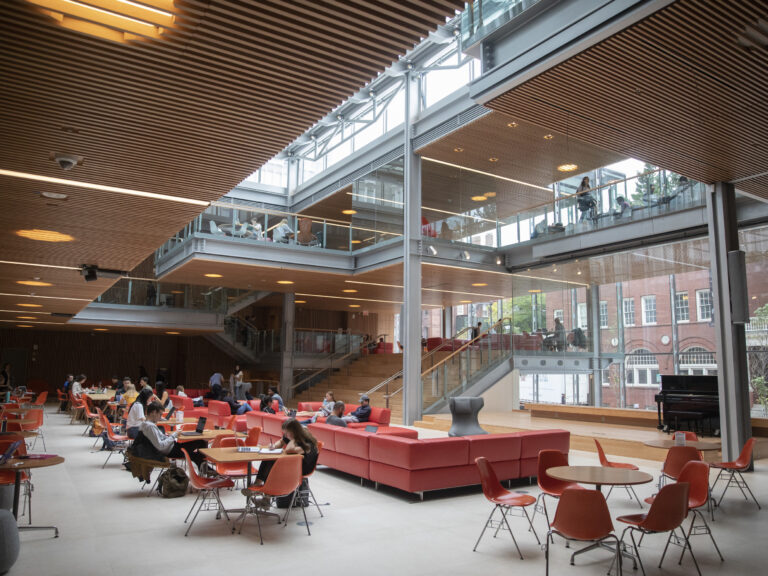
CURTIS KEITH, Chief scientific officer, Blavatnik Biomedical Accelerator
Smith Campus Center
“I especially like having coffee in the second-floor seating area at the front of the Smith Campus Center, looking out onto the plaza in front of the center, the whole diversity of Harvard Square passing in front. For me, it also brings back memories of arriving at Harvard for the first time in 1993 as a student and seeing the chess players there.”
Find an event
Harvard offers many virtual and on-campus events open to visitors and neighbors.
Browse our upcoming events
Big Books, Tiny Tomes
13th Annual Meeting of AL CAPONE America Latina Crime and Policy Network
Arthropods: Creatures that Rule
Maps and Directions
There are a number of ways to get to Harvard. Find your best option.
Explore our campus

- Request Info
- About UNI About open dropdown
- History & Traditions
- Office of the President
- Administrative Departments
- Academics Academics open dropdown
- Majors, Minors & Degrees
- Pre-Professional Preparation
- Online & Distance Education
- Colleges & Departments
- Honors Program
- Student Research
- Study Abroad
- Office of the Registrar
- Academic Advising
- Admissions & Aid Admissions & Aid open dropdown
- Transfer Students
- International
- Tuition & Fees
- Financial Aid
- Student Life Life on Campus open dropdown
- Health & Safety
- Housing & Dining
- Student Health & Wellbeing
- Career Services
- Cedar Falls & Waterloo
- Support UNI Support UNI open dropdown
- UNI Alumni Association
- UNI Foundation
- Give to UNI
- Rod Library
Recreation, Tourism & Nonprofit Leadership (M.A.)
For international students.
Ready to enhance your leadership skills in managing youth, community, and outdoor programs as well as tourism agencies within public or nonprofit sectors? Enroll in our MA program to gain the latest knowledge and best practices for managing recreation, tourism and nonprofit leadership (RTNL) programs and organizations. Grow intellectually and professionally while preparing to meet the needs of today's communities.
- Join a cohort of students and attend in-person classes in UNI’s Wellness and Recreation Center, a lively facility dedicated to athletics, fitness, rock climbing, and aquatics.
- Learn to design programs and manage facilities for recreation, tourism, and nonprofit agencies.
- Explore on-campus job opportunities in recreation and athletics or apply for a graduate assistant position in outdoor education and leadership.
- Admission Policies
- Country Specific Requirements
- Scholarships
- Undergraduate Majors
- Graduate Majors
- Graduate Funding
- Visa and I-20/DS-2019 information
- Overseas Visits
- Tuition & Fees
- STEM at UNI
- Frequently Asked Questions
- Student Statements
- International Admissions Team
- International Student Promoters
Admission Requirements:
- International Application for Admission
- University of Northern Iowa
- International Graduate Admissions
- 002 Gilchrist Hall
- Cedar Falls, IA 50614-0018
- Minimum undergraduate grade point average of a 2.75 on a 4.0 point scale
- Official TOEFL score of (79), IELTS score of (6.5), or Duolingo score of (105) to be considered for full admission
- Two letters of recommendation
- Applicant statement addressing the motivations for seeking degree at UNI, research interests, professional goals and describing the reasons for seeking this degree, your research interests or expertise and professional goals.
Application Deadlines:
- Rolling Admissions
Program Duration:
Graduate funding requirements:.
- Students must complete and submit the Graduate College Assistantship Application and the Graduate College Scholarship Application form by February 1st.
Contacts and More Information:
- Program of Study
- Department Website
- Email: [email protected] or [email protected]

Student Experience
Programs of study, college degree options.
- Undergraduate Admissions
- Minors and Certificates
- Admitted Students
Undergraduate Affairs
- Student Resources
- Cost of Attendance
Interdisciplinary Health Sciences
Kinesiology, community health.
- Recreation, Sport & Tourism
- Speech & Hearing Science
- I-Health Home
- Undergraduate Degree
- Minor in Aging
- Undergraduate Certificate in Interdisciplinary Health Sciences
- Faculty & Staff
- Awards and Scholarships
- KCH Internships
- Kinesiology Home
- HK Transition
- Undergraduate Degree in Kinesiology
- Graduate Degrees
- Minor in Kinesiology
- Minor in Disability Studies
- Physical Education Teacher Licensure
Awards & Scholarships
- Master of Science in Kinesiology
Kinesiology PhD
- Lifetime Fitness Support
- Undergraduate Advising
- Graduate Advising
- Human Performance Testing
- 2024 KCH Awards
- Community Health Home
- Undergraduate Degree in Community Health
- Undergraduate Certificate in Health Technology
Minors in Community Health
Graduate research degrees, graduate professional degrees.
- Minor in Health Administration
- Minor in Public Health
Master of Science in Community Health
- Community Health PhD
- Health Disparities
- Health Promotion
- Health Rehab
- Health Technology
- Health analytics
- Master of Public Health
- Master of Health Administration
- Master of Science in Health Technology
Recreation, Sport & Tourism Home
- Minor in Recreation, Sport & Tourism
- Undergraduate Certificate
- Graduate Students
- Office of Recreation and Park Resources (ORPR)
- Master of Science in Recreation, Sport & Tourism
- Online Master of Science in Recreation, Sport, and Tourism
- Professional Certificate
- Recreation, Sport & Tourism PhD
5-Year BS/MS Option
- Graduate Admissions
- 2024 RST Awards
- Speech & Hearing Science Home
- SHS 50th Anniversary
- Minor in Speech & Hearing Science
- Audiology and Speech-Language Pathology Clinic
- Student Outcome Data/CAA Accreditation
- Master of Arts in Speech & Hearing Science - Clinical
- Master of Arts in Speech & Hearing Science - Nonclinical
- Doctor of Audiology
Speech & Hearing Science PhD
- Apply to SHS
- Mentoring and Advising
- PhD Programs of Study
- Program Structure for PhD in Speech and Hearing Science
- Requirements for PhD in Speech and Hearing Science
- Core Research Themes
- Application to the PhD Program in Speech and Hearing Science
- SHS Virtual Tours
- Reservation Request for Room at SHS Building
- 2024 SHS Awards
- Undergraduate Degrees
- Announcements/News
- Mission/Overview
- Meet Our Team
- Academic Advising
- New Student Registration
- AHS Programs and Organizations
- Policies and Procedures
- Scholarships
- Convocation (Graduation Ceremony)
- Kinesiology and Community Health
- Audiology & Speech-Language Pathology Clinics
- Chez Veterans Center
- Disability Resources & Educational Services
- Intercollegiate Transfer (ICT) Applicants
- Research News
- Engagement Initiatives
- Student Research Opportunities
- Speech & Hearing Clinic
Center on Health, Aging & Disability
- Office of Recreation and Park Resources
- Kinesiology and Community Health Research Labs
- Recreation, Sport and Tourism Research Labs
- Speech and Hearing Science Research Labs
- Research Services
- Campus Research Services
- Pilot and Travel Funding
- Notify About a Grant Proposal
- Other Services
- Research Themes
- Age-Friendly
- Poster Printer
- AHS Internships
- Global Experiences
- Student Organizations
- Community Engagement
- Research Opportunities
- James Scholar
- Awards, Honors & Scholarships
- Chez Center for Veterans
- Self-Help Guides

Recreation, Sport & Tourism
Promote environmental stewardship. Lead social and economic development. Study management and marketing.
Foster healthy lifestyles with a career in the world’s largest industries. As a student in the Department of Recreation, Sport and Tourism, you will learn from award winning faculty, work alongside world-class researchers, and gain hands-on, practical skills in your courses, study tours, site visits, and internships with related professional organizations. We offer undergraduate and graduate programs on campus, as well as two exciting online programs: our Online Master of Science in Recreation, Sport and Tourism and our Professional Certificate .
The core courses provide a strong foundation in theory and managerial principles. Select an area of concentration to complement your interests.
Greetings from RST | Department of Recreation, Sport and Tourism at Illinois
The Experience
As part of the College of Applied Health Sciences, the Department of Recreation, Sport and Tourism offers programs of study at the undergraduate and graduate levels leading to Bachelor's, Master's, and Doctor of Philosophy degrees. Our graduates are found in our nation's park districts, forest preserves, amateur and professional sports industries, resorts, bureaus of tourism, educational institutions, and universities.
Our faculty scholars study the changing leisure needs of our society. The Department of Recreation, Sport and Tourism is dedicated to improving the quality of life for individuals, families, and communities through research that has an impact, educational programs that address both theory and practice, and outreach activities that make a difference in the lives of individuals and communities.
Significance of the Industry
Faculty and staff of the Department of Recreation, Sport and Tourism (RST) at the University of Illinois work to advance knowledge about the choices that people make for their discretionary time throughout the lifespan, including outcomes of those choices at personal, family, community, and institutional levels. RST faculty and staff apply their expertise to enhance the delivery of leisure services, recognizing that recreation, sport and tourism are synergistic elements of a unique and multifaceted industry. RST appreciates the significance of play, the contribution of arts, and the value of diversity. The research and engagement of RST foster healthy lifestyles, environmental stewardship, effective management and marketing of organizations, and social and economic development of communities.
What Will I do?
A degree in Recreation, Sport and Tourism will transform you into a leader in the unique and multifaceted leisure services industry. Our graduates are regularly placed in highly selective and desirable internships and careers across the field and throughout the globe, and enjoy one of the industry’s most extensive and impressive alumni networks for the remainder of their professional lives.
Department of Recreation, Sport and Tourism Graduate Program
The Department of Recreation, Sport and Tourism (RST) offers an integrated and accelerated program for outstanding students that combines a bachelor’s and master’s degree, referred to as the 5-year BS/MS option. This option can be completed in less time than is required for the two degrees separately. The 5-year BS/MS option is designed to provide students with the academic and professional skills needed to succeed in the recreation, sport and tourism industry.
RST majors with a GPA of 3.5 are eligible to apply at the beginning of their junior year. Accepted students will then work on both degrees simultaneously and will receive both degrees at the same time, once all requirements for each have been completed. Although their degrees will not officially be awarded, students may participate in the bachelor’s graduation ceremonies once they have completed the 120 credit-hour requirement for that degree.
For more information, contact Dr. Toni Liechty .
Take a look at where our alumni are working:
American Airlines
Arista Records
Boise Park System
Boys & Girls Clubs of America
Charlotte Hornets
Chicago Blackhawks
Darden Restaurants
Denver Sports Commission
Environmental Protection Agency
Hilton Hotels Corporation
Illinois Department of Human Services
John Elway Corporation
Lake County Forest Preserve District
Lake Tahoe Visitors Authority
Los Angeles Zoo
McCormick Place
Meadows Country Club
National Park Service
New England Patriots
Norwegian Cruise Lines
National Collegiate Athletic Association
NFL Network
Pac 12 Sports Network
Proctor & Gamble
SmithBucklin
St. Louis Cardinals
Ticketmaster
United States Olympic Committee
Vail Recreation District
Youth for Understanding
In 2024, the Sapora Symposium will highlight the important role of recreation, sport, and tourism agencies contributed to the revival of the economic, social, and environmental dimensions of Chicagoland in the post-pandemic era. Urban renewal via leisure related industries has emerged as a critical aspect of the contemporary metropolitan landscape with sports events, conventions, hospitality, public recreation, and facility development serving as a focus of wide-ranging regeneration programs and initiatives.
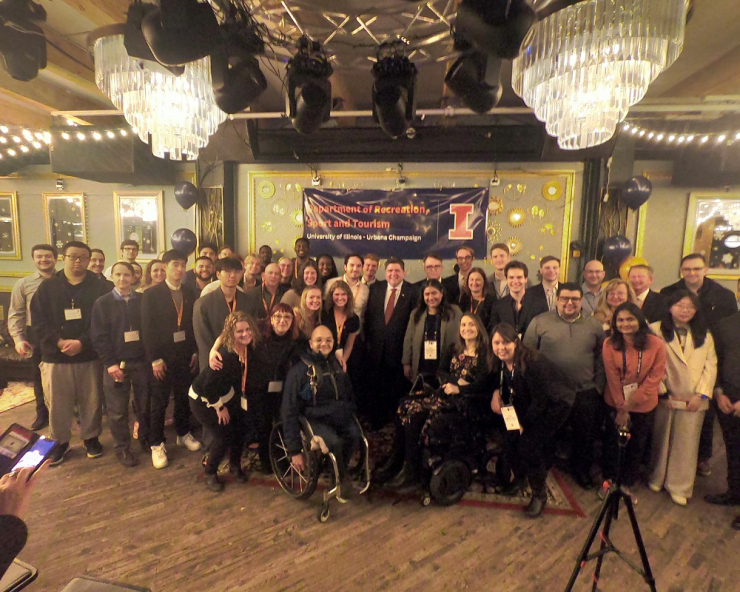
On Jan. 25, 2024, Gov. J. B. Pritzker delivered opening remarks at the RST Alumni Social and Sapora Symposium kickoff event at Hubbard Inn in Chicago.
Follow this link to see the schedule of events for this year's Sapora Symposium.
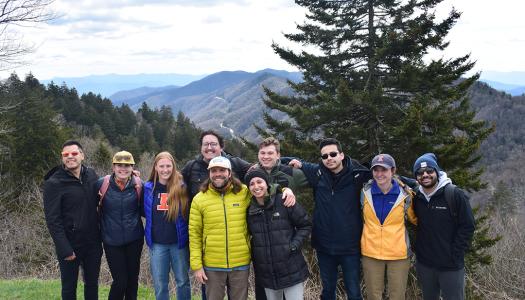
Outdoor Recreation Consortium: An RST trip to the Smokies—for class credit
Read More about Outdoor Recreation Consortium: An RST trip to the Smokies—for class credit

AHS Get to Know: Miki Sato, Ph.D.
Read More about AHS Get to Know: Miki Sato, Ph.D.
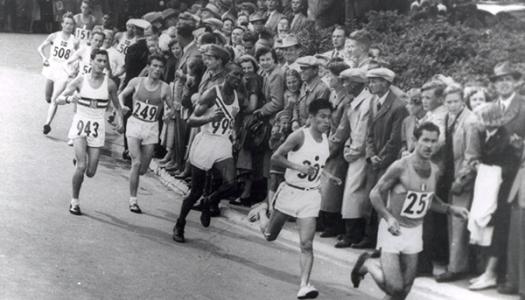
Fredericks: How Black American distance runners shaped the sport from the shadows
Read More about Fredericks: How Black American distance runners shaped the sport from the shadows
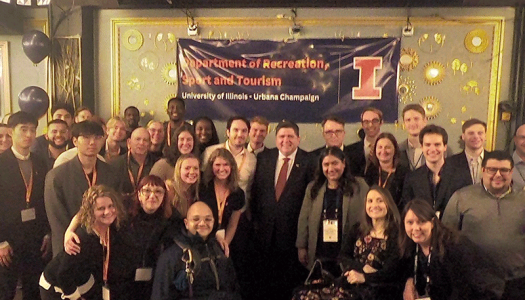
Pritzker to RST students: Stay in Illinois
Read More about Pritzker to RST students: Stay in Illinois
Get Started with AHS
It’s a great time to join AHS. Build your career making a difference.
Download the CCC Transfer Model Curriculum
If you transferred into CSUMB as an AS-T-certified student in Business, you must complete the following courses for your bachelor’s degree in Sustainable Hospitality & Tourism Management at CSUMB. If you are unsure about your transfer status, please talk to an advisor.
Required Courses
SHTM majors also complete a minimum of 600 hours of paid or unpaid professional work experience, in addition to an internship requirement prior to their graduation. Learn more at the Career Gateway
Complete all of the following courses:
- HOSP 200 - Introduction to Sustainable Hospitality & Tourism Units: 3
- BUS 203 - Financial Accounting Units: 3
- BUS 205 - Managerial Accounting Units: 3
- BUS 300S - Business Ethics in Action Units: 3
- BUS 301 - Principles of Business Analytics Units: 3
- BUS 304 - Business Communication, Pro-seminar & Critical Thinking Units: 4
- BUS 305 - Principles of Management Units: 4
- BUS 306 - Principles of Marketing Units: 4
- HOSP 312 - Sustainable Hospitality Operations Management Units: 4
- HOSP 323 - Introduction to Event Planning and Management Units: 3
- HOSP 498 - Hospitality and Tourism Internship Units: 2
- HOSP 499 - Strategic Management in Sustainable Hospitality and Tourism (Senior Capstone) Units: 4
Concentrations
To satisfy the requirements of the Sustainable Hospitality & Tourism Management major, select and complete one of the following concentrations:
Please note: Twelve (12) of the units taken to complete a concentration (all of which are upper division) may not be used in fulfillment of other minors or concentrations .
Destination & Tourism Management Concentration
Hospitality & Event Management Concentration
General Education & University Requirements
To satisfy the requirements of the degree, students must successfully complete all Undergraduate Requirements . Several of these (UD-D, Upper division Service Learning, and GWAR) are embedded in the major coursework.
Select and complete coursework to meet the following requirements:
- Upper division GE B area course
- JAPN 350 - World Culture and Language: Japanese
- SPAN 350 - World Culture and Language: Spanish
- American Institutions
Students may select additional coursework if necessary to complete 60 units.

Meet Dr. Kiwon Lee, Assistant Professor and Program Coordinator for the 100% Online Master’s in Hospitality and Tourism Management

Meet Dr. Lee. She is an assistant professor in the School of Foundations, Leadership and Administration within the College of Education, Health and Human Services at Kent State University. She’s also the program coordinator for the online Master of Science degree in Hospitality and Tourism Management .

Dr. Kiwon Lee received a doctoral degree in Hospitality Management from Pennsylvania State University. The Bachelor and Master of Science degrees were completed in Nutrition. She joined the Kent State University faculty in 2017 and is currently an Assistant Professor and HEM/HTM Program Coordinator. Her primary research interest is healthy eating environments in commercial and noncommercial food service areas. She has conducted research on consumers’ perception of nutrition information and healthful items at restaurants and published in leading peer-review journals. She teaches foodservice related courses, including Food Production and Service Management.
Current ongoing projects include corporate social responsibility of the restaurant industry and restaurant environments of food deserts.
Read on for a short interview with Dr. Lee.
What sets Kent State’s program apart from others?
The Hospitality and Tourism Management (HTM) program’s unique strength is a short completion period, which is one year-long (Three semesters: Fall-Spring-Summer). Also, as a 100% online program, it gives students an opportunity to go self-paced, which might be especially beneficial to professionals who work full time during the daytime and weekdays and can concentrate on coursework during their off-work time. HTM instructors are active researchers in the disciplines and have extensive industrial experiences, thus able to teach how academic resources can be applied to real fields.
What career opportunities exist for me if I receive a Master of Science in Hospitality and Tourism Management?
Management levels in various hospitality and tourism careers, such as
- Destination management and marketing
- Restaurants industry
- Event planning
- Domestic and international tourism
- Museums and cultural institutions
- Director of sales, operations in the hotel industry
- Hospitality management corporations
Are there any licensure or certification requirements with the programs?
There are not any licensure or certification requirements.
What can I expect to learn within this program?
Students will learn to:
- Critically analyze and discuss managerial problems and issues related to tourism and hospitality.
- Discuss and evaluate the social/economic, global/multicultural, operational, and environmental issues facing hospitality and tourism management.
- Formulate professional attitudes and opinions related to the hospitality and tourism industry.
- Use, interpret, and report industry data.
- Disseminate professional vision in a hospitality and tourism setting.
Are there research requirements for this program?
There are no research requirements for this program.
How can this program foster growth and knowledge for years to come?
This program can introduce students to how to use and incorporate science-based information into their fields. It also offers the ability to apply conceptual and theoretical content to management decisions. Additionally, research methods that students learn from courses can be utilized at workplaces, for example, consumer trends forecasts and stakeholder perspectives on business decisions.
How does the partnership between Hospitality and Event Management and Recreation, Park, and Tourism Management elevate this program?
HTM faculty members have course assignments in the two undergraduate programs (Hospitality and Event Management and Recreation, Park, and Tourism Management); the HTM is one unit with its own faculty, curriculum, and coordination. On the other hand, the HTM curriculum includes courses offered by the Ambassador Crawford College of Business and Entrepreneurship. It is meant to infer that HTM and Business Administration has a “partnership” to elevate the HTM program because Business Administration increases the value of HTM by bringing its faculty, curriculum, and administration resources.
Kent State University’s Online Master of Hospitality and Tourism Management
The online Master of Science degree in Hospitality and Tourism Management provides an integrated hospitality and tourism education with an emphasis on regional, national, and global implications of the field. The curriculum combines specialty classes in hospitality and business management, preparing graduates for well-compensated positions as managers in restaurants, hotels, conference centers, country clubs, and other hospitality venues.
Students will develop critical analysis skills and research abilities and understand advanced hospitality and tourism issues. Graduates will be prepared to successfully secure management positions of leadership in the tourism and hospitality industry.
Topics Covered:
- Hotel Management
- Club Management
- Tourism Management
- Tourism Development
- Park Management
- Event Management
- Food and Beverage Management
For more information on Kent State’s Online Master of Hospitality and Tourism Management, visit https://onlinedegrees.kent.edu/degrees/master-of-science-hospitality-tourism-management

Summer 2024 Tourism Outlook ‘Pretty Robust’
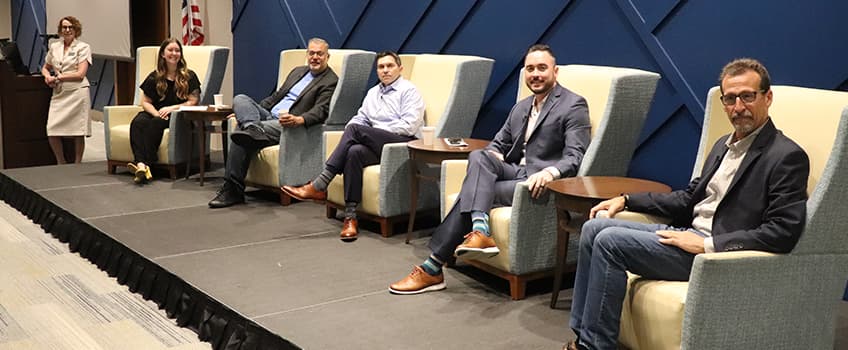
From left, LIGHT Faculty Director Jane Bokunewicz, Shorecast moderator Bre Young, Mark Callazzo, managing partner, RMS Capital; Oliver Cooke, associate professor of Economics at Stockton University; Daniel Gallagher, director of sports sales for the Atlantic City Sports Commission; and Gary Musich, vice president of sales and destination services for Visit Atlantic City.
Atlantic City, N.J. — The general outlook for businesses at the Jersey Shore heading into the summer of 2024 is “pretty robust,” but there are some concerns, especially with no beach concerts in Atlantic City this year and New York casinos looming on the horizon.
That was the overall sentiment from a panel of local experts who spoke at the 16th annual Jersey Shorecast on May 8, sponsored by the Lloyd D. Levenson Institute of Gaming, Hospitality and Tourism (LIGHT) at the Stockton University School of Business. The discussion was held at the Stockton University Atlantic City John F. Scarpa Academic Center and streamed online.
LIGHT Faculty Director Jane Bokunewicz opened the discussion, which was moderated by Bre Young ’20, the event coordinator and project manager for Good Time Tricycle Productions. Good Time Tricycle has put together several events in the Atlantic City area, including the Atlantic City Beer and Music Festival.
This year’s panelists had an Atlantic City focus and included:
- Mark Callazzo, managing partner, RMS Capital. Callazzo is the man behind the revitalization of the Orange Loop in Atlantic City and is co-owner of the Tennessee Avenue Beer Hall, Cuzzie’s Pizzeria, Rhythm & Spirits and Bar 32 Chocolate.
- Oliver Cooke, associate professor of Economics at Stockton and editor of the South Jersey Economic Review.
- Daniel Gallagher, director of sports sales for the Atlantic City Sports Commission.
- Gary Musich, vice president of sales and destination services for Visit Atlantic City.
“I’m cautiously optimistic for the summer,” Cooke said. “Job growth right now has kind of picked up over the first quarter for Atlantic City proper, relative to where we were in late 2023. Unemployment remains very, very low. My sense is that we’re in a pretty decent place with all the headline metrics.”
Before the discussion, Bokunewicz presented statistics that highlighted some of the successes of 2023, especially at Atlantic City casinos. Total gross gaming revenue ($1.4 billion) was up 11% from 2022, in-person gross gaming revenue ($811 million) was up 1% from 2022 and nongaming net revenue was 45% of the total net revenue compared to 39% in previous years.
But not all of the numbers were positive as overnight stays were up 8% but were shorter than in previous years. Casino employment was up in general, but labor shortages were still a factor. Also, several panelists from the fall Jersey Shoreview reported that weather was a negative factor in the summer of 2023, Bokunewicz said.
Callazzo said 2023 wasn’t great for his businesses, and he attributed some of that to a belief that many people finally felt comfortable taking big trips — three years after the COVID-19 pandemic.
“Yeah (last year) was not, not good,” he said. “Our customer count was down. Our average check was down. … I think that a lot of the tourism was lost to people taking the trips that they had put off for three years.”
Following is a recap of the questions and some of the answers from the panel:
How did the local tourism industry perform in 2023?
Gary Musich: I’m very bullish with what I see in trends in the meeting and event business. What we booked in 2023 was the best we’ve ever done. It’s the rebound of the event business. … We see the volume coming and growing, and we see the interest in Atlantic City growing in the short term.
Daniel Gallagher: Sports is one of the largest growing markets, except maybe behind cannabis. We came off a banner year. We did about 75,000 room nights in sports alone, which was 250,000 people and $1 million in economic impact. And there's no question that's here to stay. The question is, how do we diversify our portfolio to get these sports athletes, these spectators, this affluent demographic, to raise that check price, you know, at one of Mark's properties.
Oliver Cooke: My general take on last summer was that it was pretty, pretty decent, certainly, in Cape May from what I know off the top of my head in terms of tax and hotel motel tax revenue. Hiring in terms of leisure and hospitality employment last summer was up. So, perhaps not as robust, in some areas, as 2022 was. My general sense is that we're still in a pretty, pretty robust economic environment right now.
How would you describe the region’s current economic circumstances?
Mark Callazzo: I mean, I hate to be all doom and gloom. But first quarter wasn't great. I think we had a lot of weather problems. I do have concerns about the overall economy. So, I'm optimistic for a good summer, but first quarter wasn't a great start.
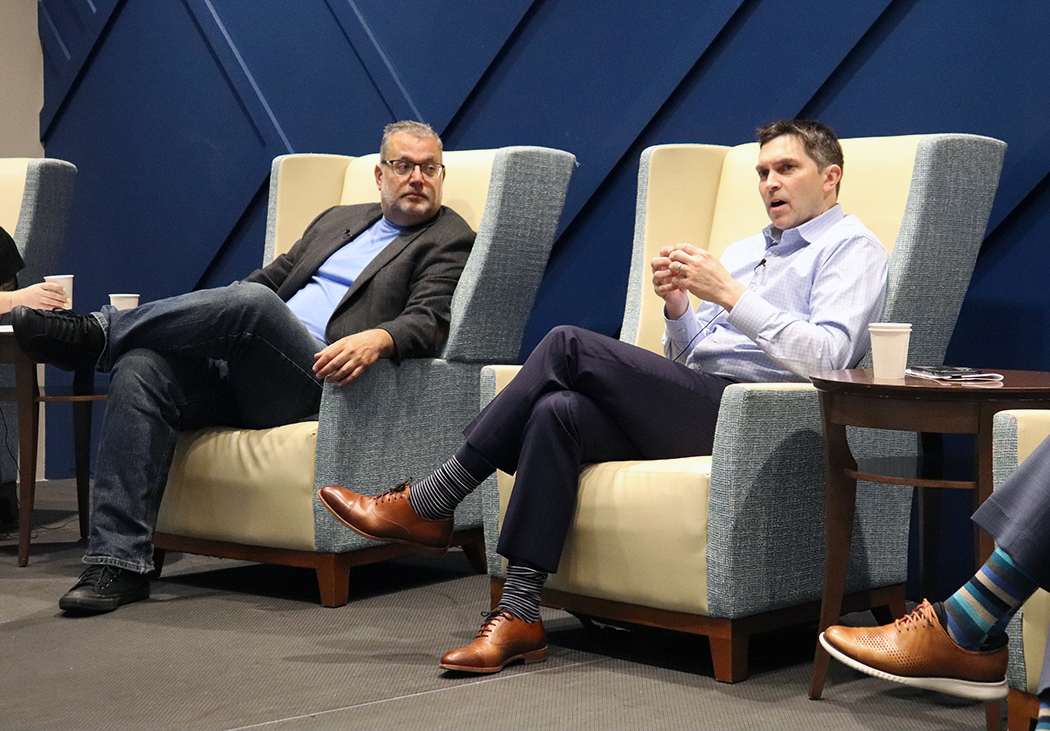
Musich: I think part of the discussion has to be how do we market this city? I think that's a big part of what we're all talking about, and consolidation and message and branding. We're changing some gears in how we deploy and focus and talk about how we sell this city. We've stopped talking about what makes our community unique. What kind of charities are we involved with? We bring up Mud Girls and other things. What's the community like? Is it just Atlantic City? Or are there other attributes in this county that can make our brand look and feel better? And I believe it is. And so, as we've changed that conversation we've connected with potential customers on a different level.
Labor shortages were still a concern in 2023. Do you feel that will have an impact on 2024 summer tourism?
Callazzo: I mean, I'm not seeing it near as much as it was. I think there are plenty of people looking for jobs, but I think the wage inflation is not going away. Pre-pandemic, I think pizza makers made $15 to $20 an hour, and now they make $25 to $30 an hour. And it's not going to go back because wage inflation is sticky. So, we're just stuck with those higher wages. But I think there's plenty of people that are looking and willing to work now.
Cooke: Atlantic County actually had five consecutive years of population declines. That was pre-pandemic. The pandemic cost another year of out migration, for I think, obvious reasons, and in some sense it was one of the most hardest hit metropolitan areas in the country. And we've seen pretty anemic population growth over the last couple of years. But to Mark’s point, the J1-Visa program is finally kind of getting back on track. So, I suspect there’ll probably be less of the constraint as it relates to finding people.
Gallagher: I look at the sports metrics and what I'm seeing across our different landscapes is that due to the rise and the value of sports right now that we are ramping up to be able to support these events. In February, when (the U.S. Futsal Northeast Regional Championship) is in and if there's 6,000 athletes roaming around the streets of Atlantic City. You're watching these eateries ramp up to a more year-round level. Not that skeleton staff that it used to be, because hopefully, the demand is providing that. As Atlantic City continues to grow its convention and visitors market as well as the sports market, how will these eateries, these retail stores, be able to adapt to staffing appropriately so that we're able to fit the needs of the conventions and trade shows that come into town?
Do you anticipate anything else impacting performance this summer? What will the impact be?
Callazzo: I mean, weather's the big wild card. I think if we have good weather we're going to have a good season.
Cooke: Yeah, weather's always the obvious wild card. It’s also always a question to what extent does inflation differentially impact certain segments and demographic groups? Because you can make a case that continuing high inflation, especially like eat out of home inflation, which I think everyone who goes to dinner these days is like, ‘Wow, yeah, that bill is a lot bigger than it used to be.’ That also feeds into maybe staying as opposed to flying somewhere else. Now you get like, OK, we're going to tighten up and we're going to be closer to home.
Gallagher: I always talk about where we're geographically located. You look at airfare prices nowadays. Your trip to Las Vegas is probably well over $700. A couple of years ago, that same flight was $350. So, where we're located geographically, I think, actually supports that we're going to see a great summer. People are going are willing to get in the car and drive. Are they willing to get on an airplane and fly? And you know, pay all those ridiculous fees that come along with that? But I will say that I'm extremely optimistic about this summer.
The absence of beach concerts and the presence of new events like the North to Shore Festival, how do you see that affecting us?
Musich: I think if there are going to be beach concerts again, it has to be subsidized. So, what else do we do to create these? I don't have the answer. But Bader Field’s an option or subsidizing things back into Boardwalk Hall is an option. We’ll see how it impacts the summer. 70,000 people on the beach on a weekend in the summer, I'm not convinced overall that creates an impact. It creates, I think, product for the city and people talking about the city.
Callazzo: I'll say honestly, the beach concerts, with the exception of Phish, were bad for our business. We were typically down. I think people came, went to the beach concert, got in their car and left, went to the hotel and slept, but didn't venture out into the city.
Musich: That's the behavior in a lot of cases, right? They're going to come. But also, I think you displace certain customers. I'm not going in there. I'm not going to be able to get a hotel. It's going to be expensive, or the traffic sucks or all these things.
Looking into the future, are there new challenges/new opportunities to consider in 2024?
Gallagher: From a sports perspective. For us, it’s the wild, wild west in a very, very good way. The growth of women in sports, first of all, is long overdue. These women deserved to be celebrated years ago. When did we think that an Omaha, Nebraska, volleyball game would sell out and break records at 92,000 people? Or Caitlin Clark would sign a million-dollar deal with Nike. How is this applicable to Atlantic City? We had 4,000 female wrestlers in the NJSIAA wrestling tournament at Boardwalk Hall this year. That would have never been a thing before. So, you're seeing direct economic impact in those sports and through the growth of women in sports.
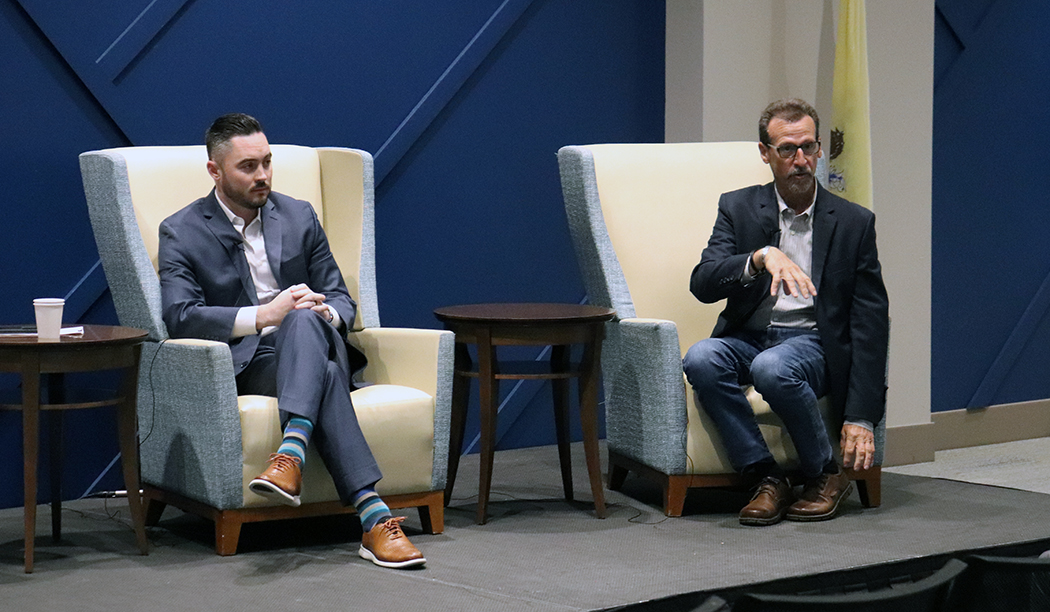
Musich: I think the most important thing we need to do as a business community is consolidate our marketing effort, consolidate the message, get everybody on the same page. When you had the convention authority, you had a branding plan and structure and strategy in place. We have to get back to that. I think it's critical, because I think it helps all businesses. It allows us to talk on a broader scale about investment.
Cooke: I do think that one of the things long term that Atlantic City is going to have to do is transform itself from being a place that produces a commodity, an entertainment commodity, as important as that is going to remain, that ultimately requires visitation, to something that actually you can sell, absent people actually being here because it puts such tremendous pressure on the entire regional economy. You have to get people to come. That was the thing that casinos did. You didn't have to just do just the summer. The casinos provided you 12 months. … Finding a way to diversify beyond just the leisure and hospitality industry is going to be very, very important over the long haul.
Callazzo: I think the overlooked piece here is the city needs to fix itself. Bringing people to the city is really what we need to change. People come here. They work here. They get in their car. They drive offshore to where their house is. The city's not going to change until we have more of a population that lives here. Adding people also helps the clean and safe perception.
Musich: We have to choreograph showing new people the city the right way. We're arguing over how to pave (Atlantic Avenue). Let's sit down and figure out how to pave the street because you can't even drive down it right now.
Callazzo: It’s population. You need people to live here. You need people to get engaged in politics and vote and get involved with the clean and safe meetings and all of that other stuff. We have high taxes. We have the perception of clean and safe. So it's not really an attractive offer to live in the city, and those are the things that need to change.
Do you have any closing statements?
Gallagher: There is an elephant in the room, and that's the New York casinos coming on board and what that looks like for us. Four casinos, four licenses that are going to open up. I think we're more collected than we've been in a very long time. I think more people are talking that should be talking together. You know I'm a big fan of the phrase that a rising tide raises all boats, but I think a better phrase is that we're all on different boats, but in the same storm. So, having that conversation with different people that are stakeholders in this industry that we have to protect our city from what will be inevitable when these casinos open up in New York.
-- Story and photos by Mark Melhorn
Tagged: 2024 Jersey Shorecast Lloyd D Levenson Institute of Gaming Hospitality and Tourism LIGHT
- Office of the President
- Read Stockton Now
- Media Resources
- Do Business With Stockton
- University Alerts
- Health & Safety
- Statements & Policies

Stockton University 101 Vera King Farris Drive Galloway, NJ 08205-9441 (609) 652-1776 Maps, Directions & Parking Accessibility Statement
Additional Locations
- Atlantic City

Stockton University is an Equal Opportunity Institution © 2024 Stockton University
UN Tourism | Bringing the world closer
Share this content.
- Share this article on facebook
- Share this article on twitter
- Share this article on linkedin
UN Tourism: Putting Communities at the Centre of Tourism Development in the Americas
UN Tourism has reaffirmed its commitment to innovation to enhance the evolution of the sector with a seminar on community-based tourism in Cuba.
The Seminar “Enhancing Tourism Development through Innovation in Community-Based Tourism” was held within the framework of the 69th meeting of the UN Tourism Regional Commission for the Americas. The meeting served as a prelude to the institutional event and brought together leading players in the sector to address challenges, strategies and good practices in this tourism segment. The aim of the Seminar was to promote the development of community-based tourism through the empowerment of and investment in local populations, as well as the promotion of innovation in their products.
It is necessary to continue exploring models that promote the autonomy and participation of communities in the tourism management of their territories. Creativity, collaboration and commitment to local traditions are fundamental pillars in this journey towards more inclusive and responsible tourism.
Zurab Pololikashvili, Secretary-General of UN Tourism, said: "Community-based tourism in the region of the Americas shows great diversity and opportunities for the sustainable development and economic inclusion of local communities. It is necessary to continue exploring models that promote the autonomy and participation of communities in the tourism management of their territories. Creativity, collaboration and commitment to local traditions are fundamental pillars in this journey towards more inclusive and responsible tourism.”
After the opening, Natalia Bayona, Executive Director of UN Tourism, highlighted: "Community-based tourism is a great opportunity for social innovation and allows us to be creative with the tourism product itself. In 2022, the global market for this type of tourism amounted to USD 575.9 million. Latin America and the Caribbean, with their natural resources and great nature areas where local communities flourish, announced 80 greenfield projects between 2018-2023 representing USD 3.89 billion."
The challenges of tourism and the role of communities
The topic of “Challenges, Strategies and Good Practices for Sustainable Tourism Development through Empowerment and Investment in Community Tourism”, was discussed by a panel including the Cuban Minister Juan Carlos García Granda and the Vice-Ministers of Tourism of Panama, Magda Durán; of Peru, Madeleine Burns, and of Colombia, Arturo Bravo. Gustavo Santos, Regional Director for the Americas of UN Tourism acted as the moderator of the discussion, as the participants outlined the current situation, shared experiences and expressed their proposals for the future of the sector.
A second panel consisted of a discussion involving both the private sector and representatives of the academic field. On this occasion, with the title “Promoting Social Innovation in Tourism through Impact Investments in Community Tourism, Human Capital and Business and Territorial Strategies”, the debate focused on investments.
A place for entrepreneurs and communities
Two startups belonging to the UN Tourism ecosystem participated in the last of the seminar's debates. On the one hand, the company Quantum Temple, dedicated to the application of new technologies to conserve the cultural and natural resources of communities in Indonesia, and on the other, SmArt for Sustainability, from Panama, which incorporates cutting-edge technology and integration practices to move towards sustainability.
In addition to these meetings, local communities also had their space to publicize their work and showcase success stories, including the Women's Association 'Weaving Dreams and Flavours' of Mampuján, Colombia, which has been an example of transformation for more than two decades. This group of women, including victims of sexual violence and displaced persons, has been able to weave suffering and transform it into a hymn to peace and a historical testimony.
The conference reflected UN Tourism's efforts to promote the evolution of community-based tourism, among others, through its innovation network that includes a wide variety of startups and projects that promote this segment, as well as innovation challenges, which strengthen tourism initiatives in local communities, while helping to develop new strategies and give visibility to these projects at a global level.
Rural development
The Seminar concluded with a final panel in which Antonio López de Ávila, coordinator of the Programme of Tourism for Rural Development, shared the activities carried out by UN Tourism in this field. He was joined by representatives of Raqchi (Perú) y Oyachí (Ecuador), both members of the Best Tourism Villages Network. They have shown how sustainable and inclusive tourism can significantly support development, create jobs, retain rural populations, generate extra income, and add to the general wellbeing of communities.
Related Links
- Download News Release on PDF
- Investments Strategy
- Innovation, Education and Investments
Related Content
Un tourism members promote investment and education as ..., amadeus & un tourism joint report reveals tourism in th..., un tourism international forum – quintana roo “tourism ..., resilience through diversity and investments the focus ....

IMAGES
VIDEO
COMMENTS
Course leader. Peter Smith is the Course Leader for BSc (Hons) International Tourism Management programme at the London Geller College of Hospitality and Tourism. Peter has over 12 years' experience teaching and leading tourism programmes at University level. Peter's research is interdisciplinary, focusing on the sociology of tourism.
Studying a travel & tourism degree will help you gain industry-specific skills like: Industry knowledge. Knowledge of travel and tourism laws and regulations. Knowledge of the impact of travel and tourism on local cultures, societies and economies. More general, transferable skills you'll pick up include: Innovation. Team working. Communication.
A degree in travel and tourism teaches you the key principles and knowledge so you pursue a career in the glamorous world of travel, tourism and hospitality; one which can afford you the opportunity to travel the world, live in exotic locations AND get paid for it. You'll learn about different destinations, attractions and experiences ...
Texas A & M University-College Station offers 7 Travel and Tourism degree programs. It's a very large, public, four-year university in a midsize city. In 2022, 293 Travel and Tourism students graduated with students earning 151 Certificates, 122 Bachelor's degrees, 14 Master's degrees, and 6 Doctoral degrees. Based on 23 Reviews.
We are ranked 1st in the UK and 2nd in the world for hospitality and tourism management in the Shanghai Global Ranking of Academic Subjects 2023. We are 1st in the UK and 15th in the world for hospitality and leisure management in the QS World University Rankings by Subject 2024. We are also 1st for tourism, transport, travel and heritage ...
The MS in Travel and Tourism Management differs from other travel and tourism degrees due to its focus on business, technology, and entrepreneurship. The degree's curriculum is delivered by academic scholars and business professionals. You will be able to immediately apply what you learn in the field of travel and tourism in New York City ...
Our BSc (Hons) International Tourism Management course draws on a wealth of experience, helping you develop an understanding of tourism alongside a detailed study of core management and business principles. Surrey is the UK's top university for tourism, transport, travel and heritage studies, with our School of Hospitality and Tourism ...
Our BA (Hons) International Tourism Management degree offers the chance to spend a year getting a taste of professional life. Opportunities are available worldwide with a wide range of companies, from boutique hotels to five-star deluxe properties, gastro pubs to Michelin star restaurants, and cruise liners to theme parks.
Covers courses in providing food, drink and accommodation in a service context, managing events, and the impact and development of tourism
Travel and Tourism degrees. 66 universities offer 215 courses. To get the best results for Undergraduate Travel and Tourism degrees, enter your predicted grades. YOUR GRADES. Add your grades. To get the best results, simply enter your predicted grades here. Course type Location University.
Bournemouth University is second in the UK for hospitality and tourism management according to the Shanghai Rankings of Academic Subjects 2023. One of the first courses to be offered in the UK and has been refined over three decades to give you the skills and knowledge of the tourism sector. With an international focus, you'll study tourism ...
Tourism is an enduring industry that offers numerous worldwide career opportunities. Our course will give you a complete set of essential business and marketing skills, with the potential to excel in global tourism management positions. ... The University of Nottingham does not sponsor a student visa for students studying part-time courses. The ...
Hospitality is primarily about hotels, bars, and restaurants. Leisure is often about events, sports centres, and multi-purpose venues. Tourism is about domestic and international travel, including sightseeing and attractions. All three will give you commercial and business skills, customer service experience, rapid thinking, working in high ...
Tell us more and we'll send information on how you can succeed with a degree in recreation, tourism and nonprofit leadership from the University of Northern Iowa College of Education. Contact us directly at: Recreation, Tourism & Nonprofit Leadership. 203 WRC. Cedar Falls, IA 50614-0607. Phone: (319)273-2654.
Student Rated - Over 90% of students studying Tourism and Events Management at Northumbria thought staff were good at explaining things and believed the library resources supported their learning (NSS, 2023). Also, over 90% of students studying Tourism, Transport and Travel at Northumbria felt information about mental wellbeing support services ...
Tell us more and we'll send information on how you can succeed with a recreation, tourism and nonprofit leadership MA degree from the University of Northern Iowa College of Education. Chris Kowalski, Ed.D. Recreation, Tourism and Nonprofit Leadership Graduate Program Coordinator. (319) 273-3528. [email protected].
Griffith was one of the first universities in Australia to develop degrees in tourism and hotel management and we continue to lead the field today. In the 2023 ShanghaiRanking Global Ranking of Academic Subjects, our Hospitality and Tourism Management subjects ranked number one in Australia and top 5 globally. In previous years, we ranked first ...
Harvard University Visitor Center. Harvard University established the Visitor Center in 1962 as the front door to the University, where students greet visitors from all over the world, answer questions about campus, and provide official tours of Harvard. Email [email protected].
Mailing Address. University of Northern Iowa. International Graduate Admissions. 002 Gilchrist Hall. Cedar Falls, IA 50614-0018. Minimum undergraduate grade point average of a 2.75 on a 4.0 point scale. Official TOEFL score of (79), IELTS score of (6.5), or Duolingo score of (105) to be considered for full admission. Two letters of recommendation.
The Tourism Bachelor's degree programme at University of Barcelona is a university education approved and fully adapted to the requirements of the new European Higher Education Area (EHEA). University of Barcelona. Barcelona , Spain. Top 1% worldwide. Studyportals University Meta Ranking. 3.8 Read 119 reviews. More interesting programmes for you.
Enterprise - B6034 Enterprise - B6034. Environment and Sustainability (Double Masters with Shanghai Jiao Tong University) - S6009 Environment and Sustainability (Double Masters with Shanghai Jiao Tong University) - S6009.
Universal Orlando Resort
The Experience. As part of the College of Applied Health Sciences, the Department of Recreation, Sport and Tourism offers programs of study at the undergraduate and graduate levels leading to Bachelor's, Master's, and Doctor of Philosophy degrees. Our graduates are found in our nation's park districts, forest preserves, amateur and professional ...
Purpose. The purpose of this qualification is to provide students with knowledge and skills within an inter-disciplinary tourism environment. The student will be prepared to enter both the public and private tourism sectors as entry-level non-professionals, and will be able to utilize and apply critical thinking skills and problem solving techniques within a tourism development and management ...
Course year: 1. AESTHETICS AND ART IN THE PUBLIC SPACE. 8 credits - Optional - A.Y. COMPARATIVE LAW AND CULTURAL DEVELOPMENT. 8 credits - Compulsory -. ENERGY TRANSITION AND CLIMATE CHANGE. 8 credits - Optional -. ENGLISH FOR CULTURAL HERITAGE AND TOURISM. ENTREPRENEURSHIP AND SUSTAINABILITY IN CULTURAL INDUSTRIES AND TOURISM.
California State University, Monterey Bay Call: 831-582-3000 Visit: 5108 Fourth Avenue, Marina, CA 93933 Mail: 100 Campus Center, Seaside, CA 93955 Make a gift. Report website issue | Report concerning ... Destination & Tourism Management Concentration ...
Meet Dr. Lee. She is an assistant professor in the School of Foundations, Leadership and Administration within the College of Education, Health and Human Services at Kent State University. She's also the program coordinator for the online Master of Science degree in Hospitality and Tourism Management.
That was the overall sentiment from a panel of local experts who spoke at the 16th annual Jersey Shorecast on May 8, sponsored by the Lloyd D. Levenson Institute of Gaming, Hospitality and Tourism (LIGHT) at the Stockton University School of Business.
The Seminar "Enhancing Tourism Development through Innovation in Community-Based Tourism" was held within the framework of the 69th meeting of the UN Tourism Regional Commission for the Americas. The meeting served as a prelude to the institutional event and brought together leading players in the sector to address challenges, strategies ...
Callum, 33, was a member of Australia's national lacrosse team and a Stevenson University alumnus. He was based in San Diego, California. In an Instagram post, the Maryland college said ...